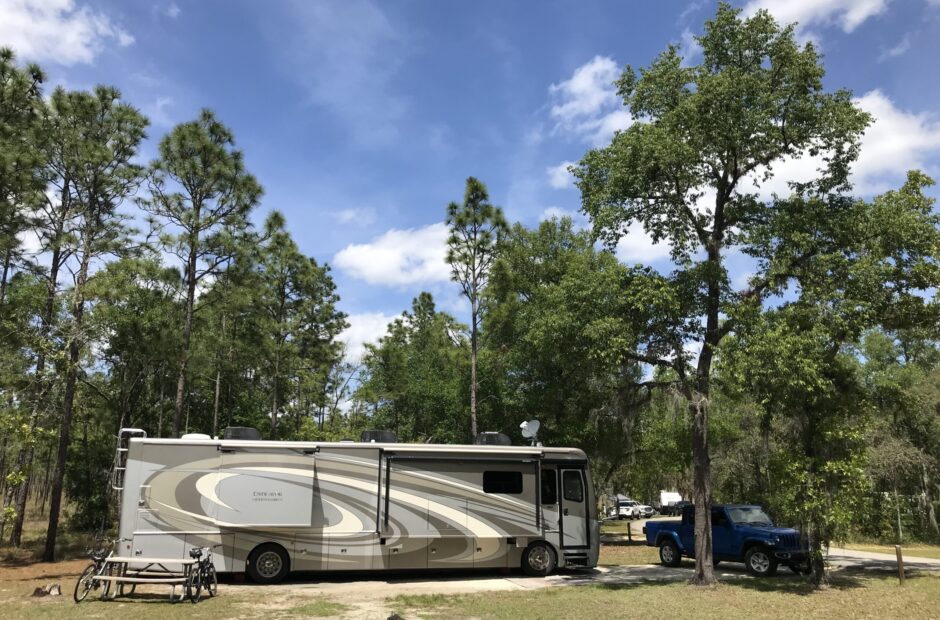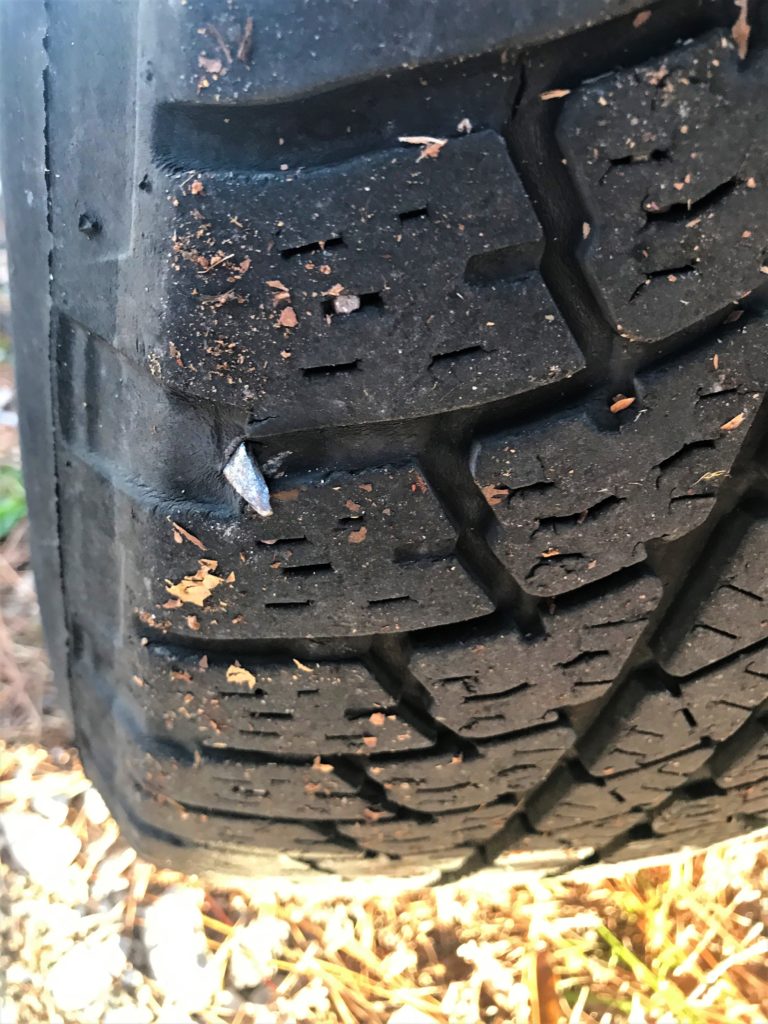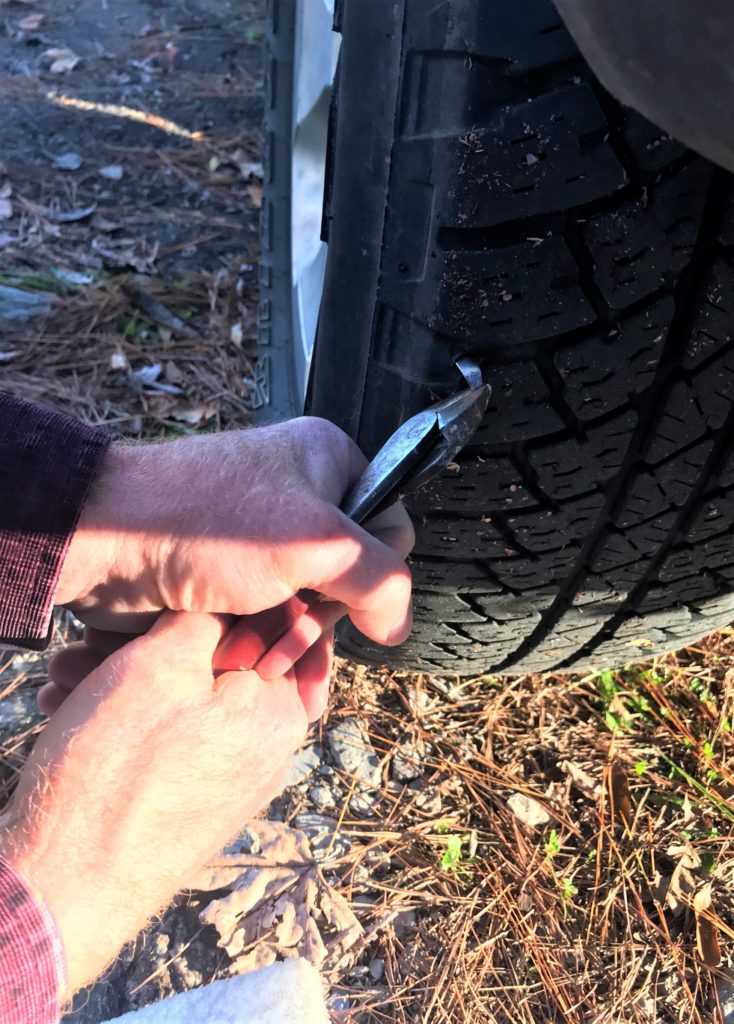Carson Village, Birmingham, Alabama
But when the set time had fully come, God sent His Son, born of a woman, born under the law, to redeem those under the law, that we might receive adoption to sonship. ~ Galatians 4:4-5
Bet you’re wondering what in the world this post is going to be about!
Since my brother, David had to be at work, Blaine and I set out on our own today carrying a list of recommendations from David.
Up first, the Sloss Furnaces National Historical Landmark.
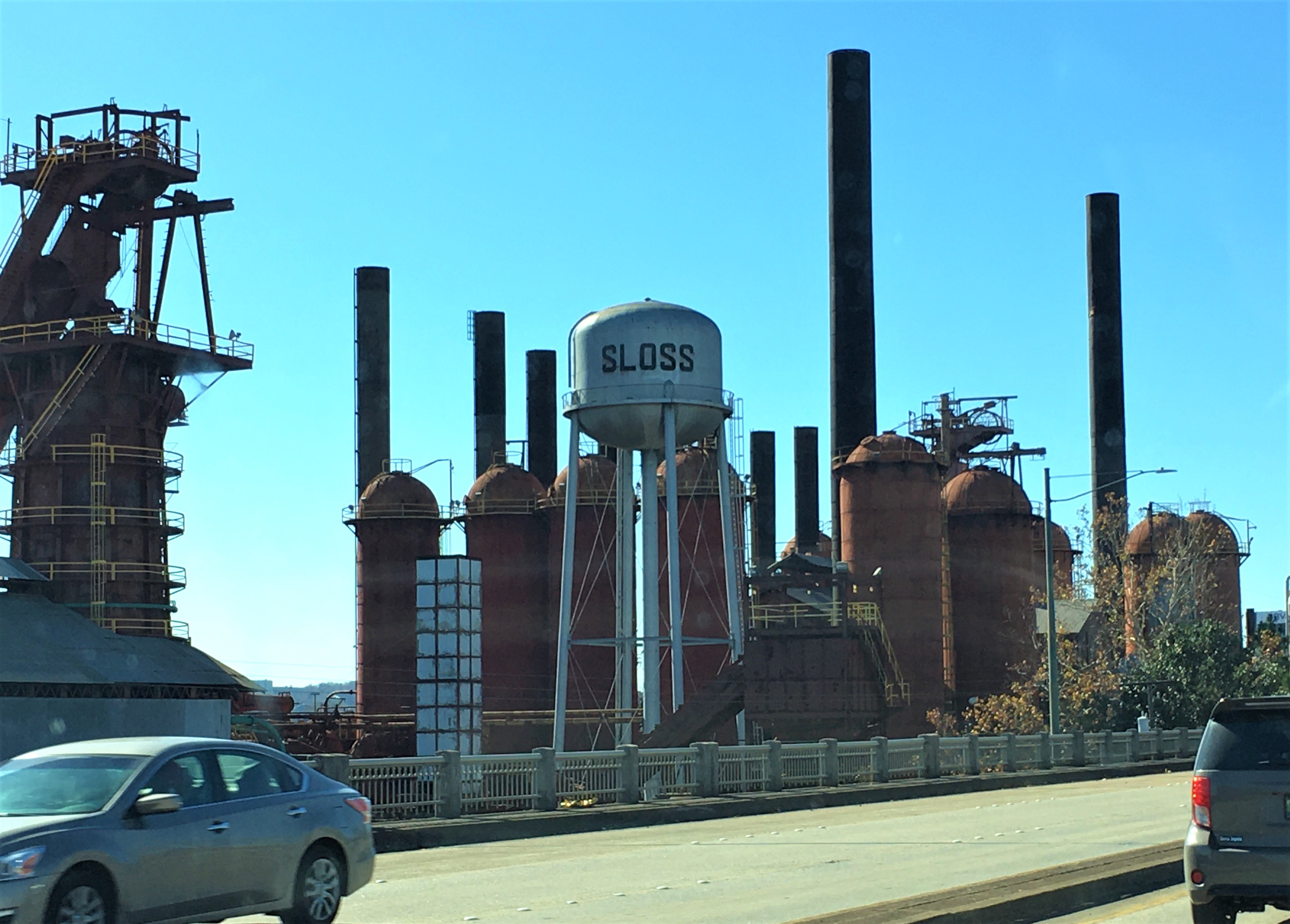
You can’t really tell, but there’s an extra lane along the fence.
When the road was built, they included this extra lane so people could pull over and watch the men at work. Crazy, huh?
We had to have timed reservations to get in and take the self-guided tour around the place. Their website stipulated that they do that in order to allow time to sanitize everything between visitors. Once we saw what we were taking on, we got a really good laugh out of that statement. You will too! Promise!
What a remarkable place! Originally built in 1882, it operated as a pig iron-producing blast furnace until 1971. After it closed, it became one of the first industrial sites in the United States to be preserved and restored for public use. A section of it also serves the metal-working artist community as they teach and display artwork. I’m sorry, we didn’t see anything particularly interesting. Well. That’s not really true. It depends on how you choose to use the word “interesting”. See what you think . . . .
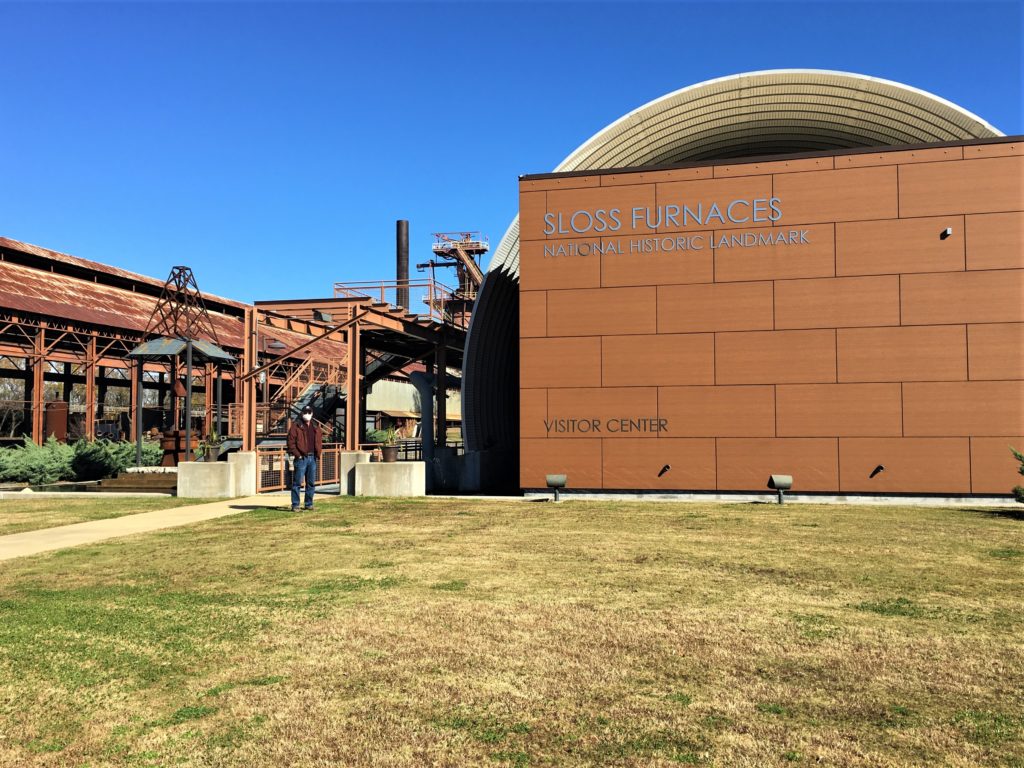
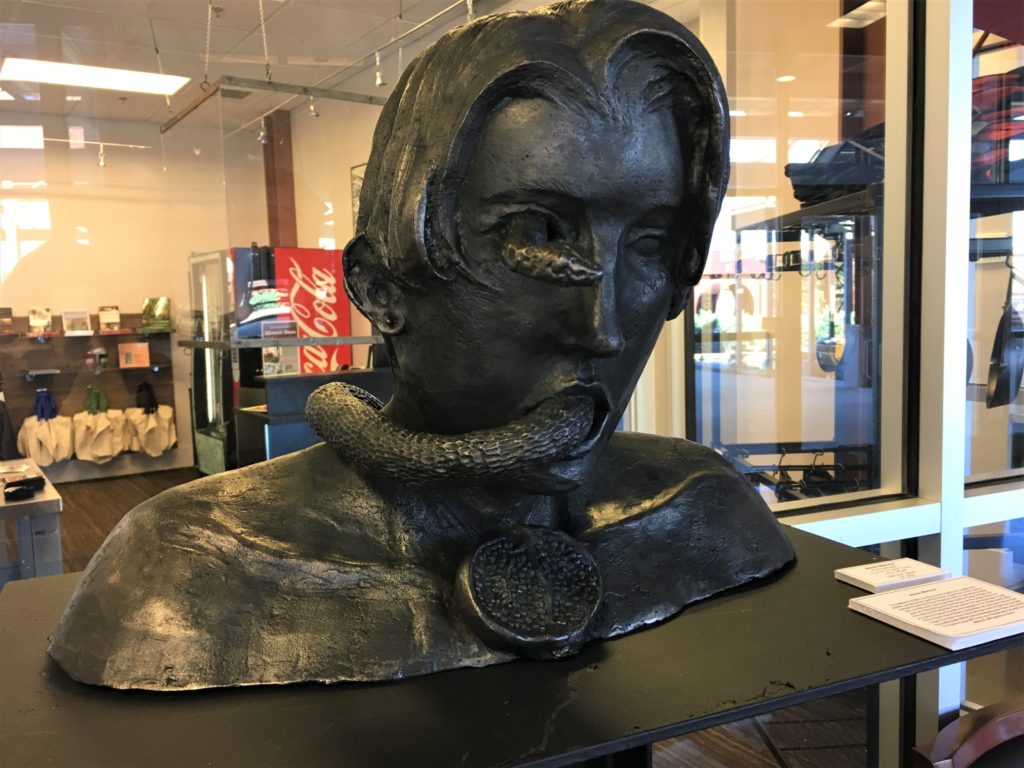
Interesting piece . . . 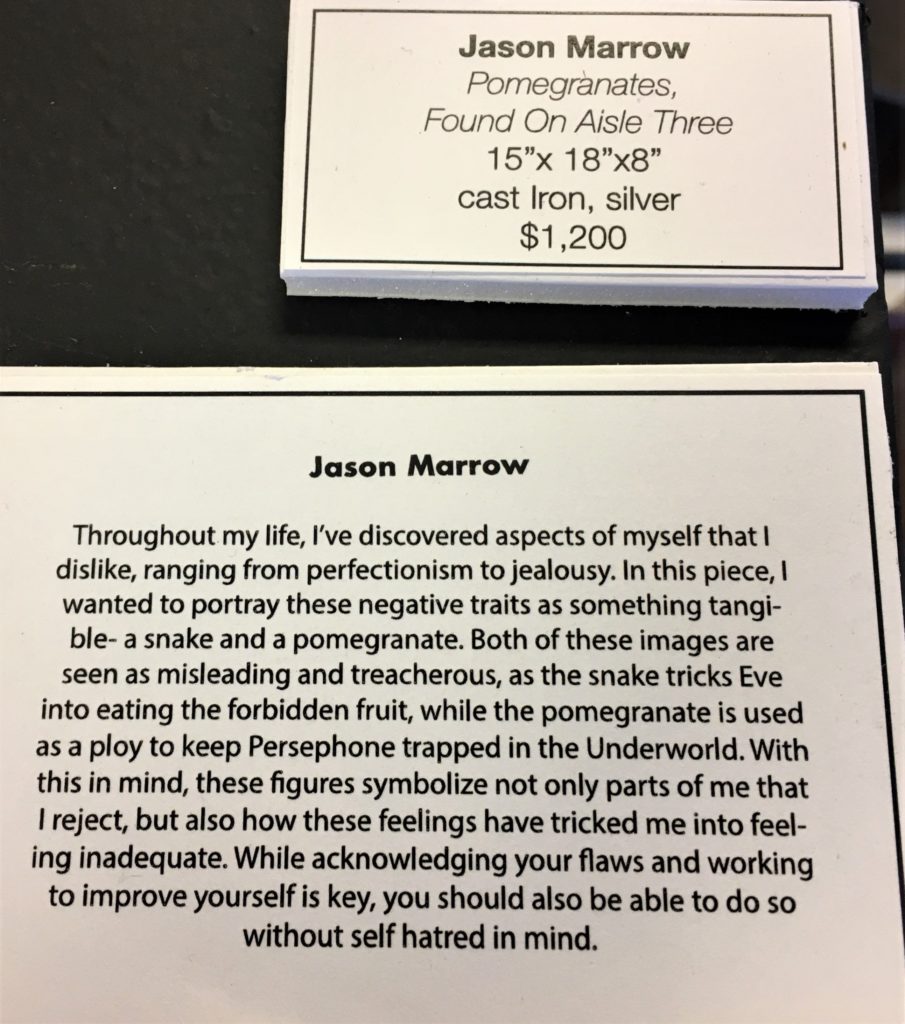
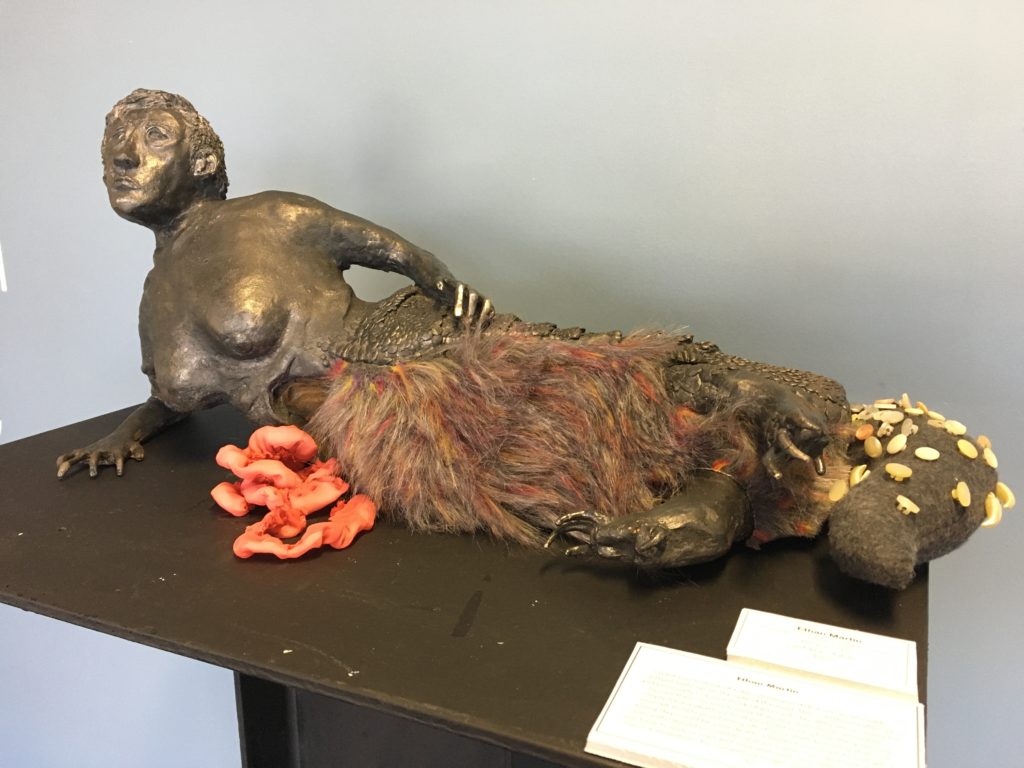
So’s this one . . . . 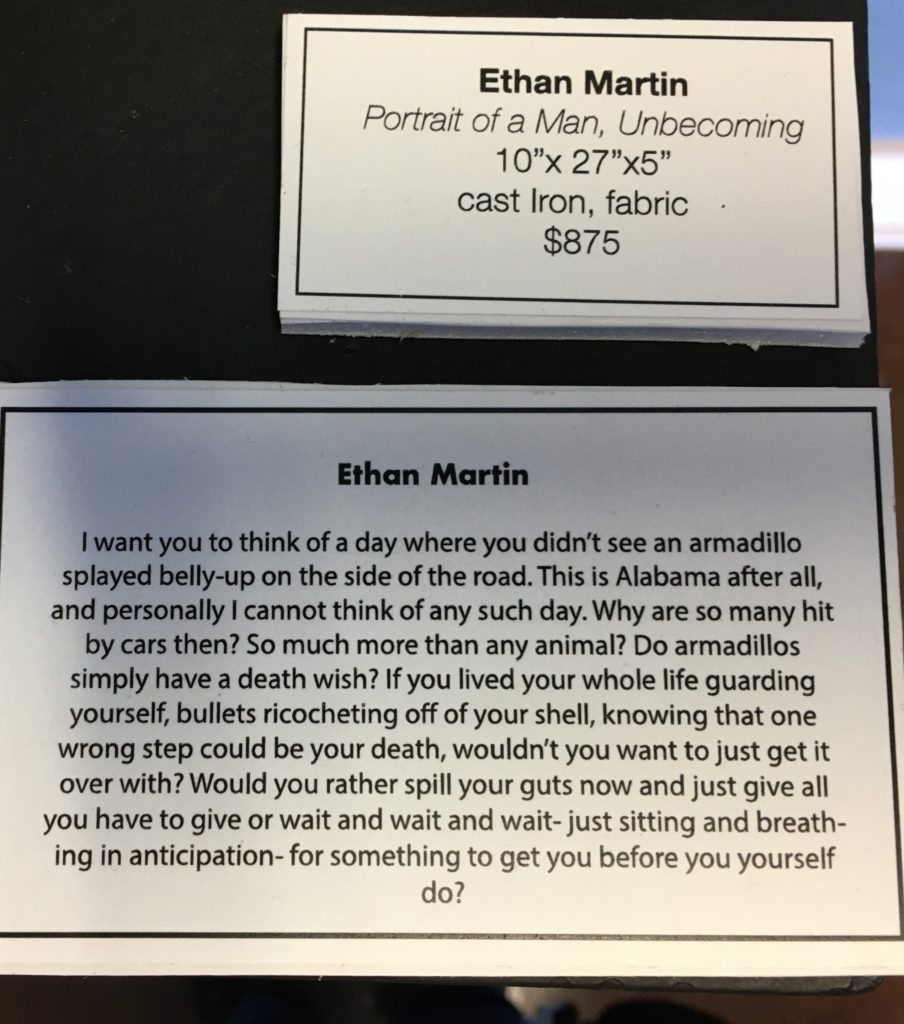
It’s probably a good thing we have none of this type of artist in the family. I suspect we’d struggle mightly with our enthusiasm over their creations. . . .
Besides the multiple art pieces, there were also some large information boards displayed inside the Visitor Center. Read as much or as little history as you’d like. 😊
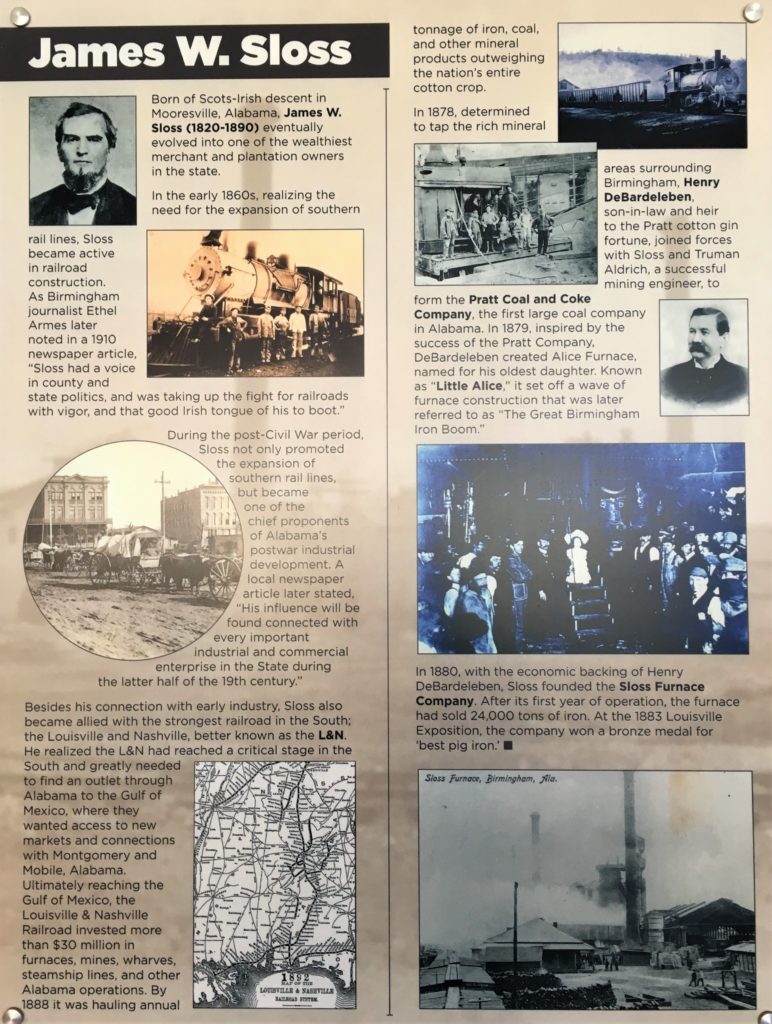
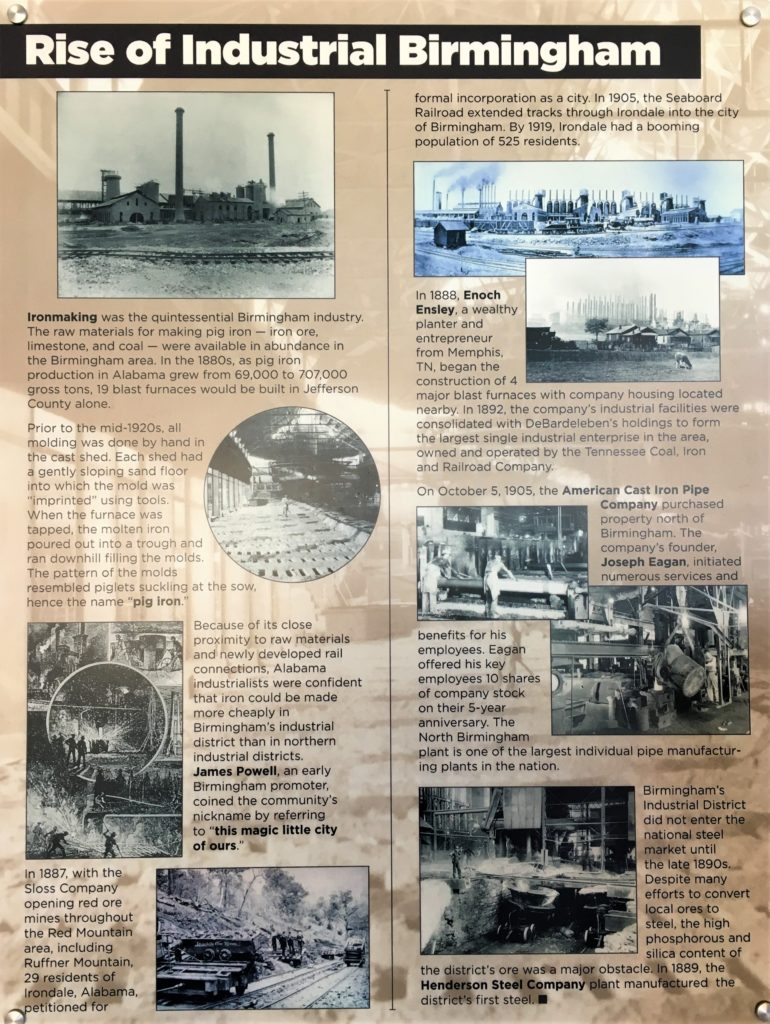
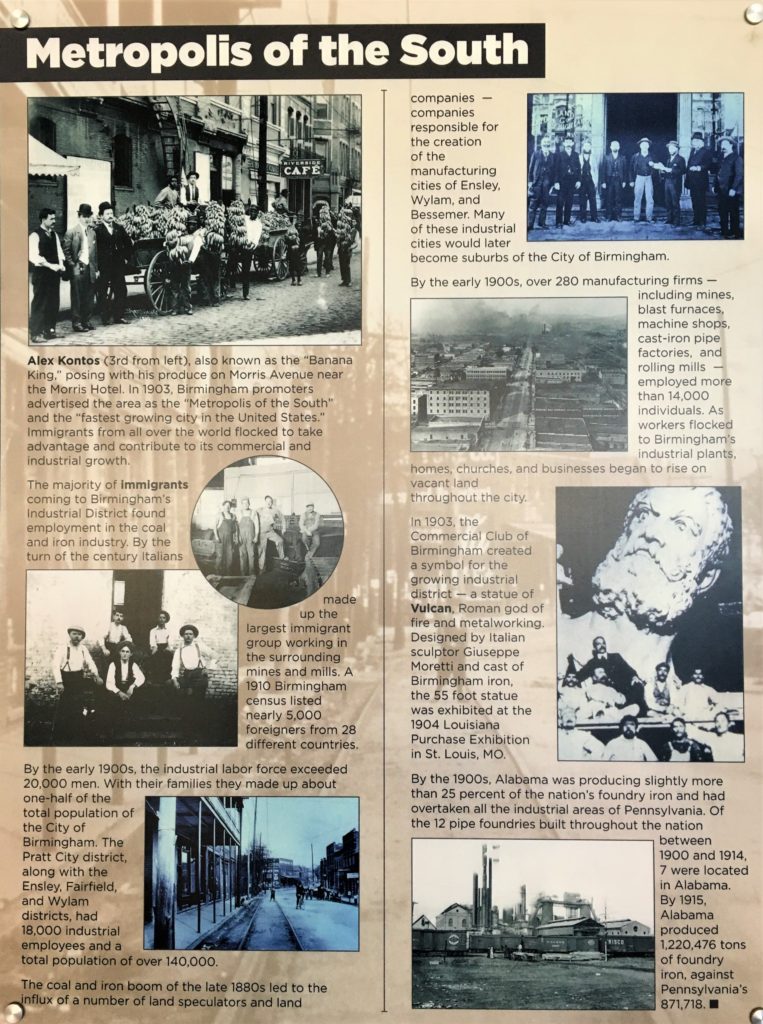
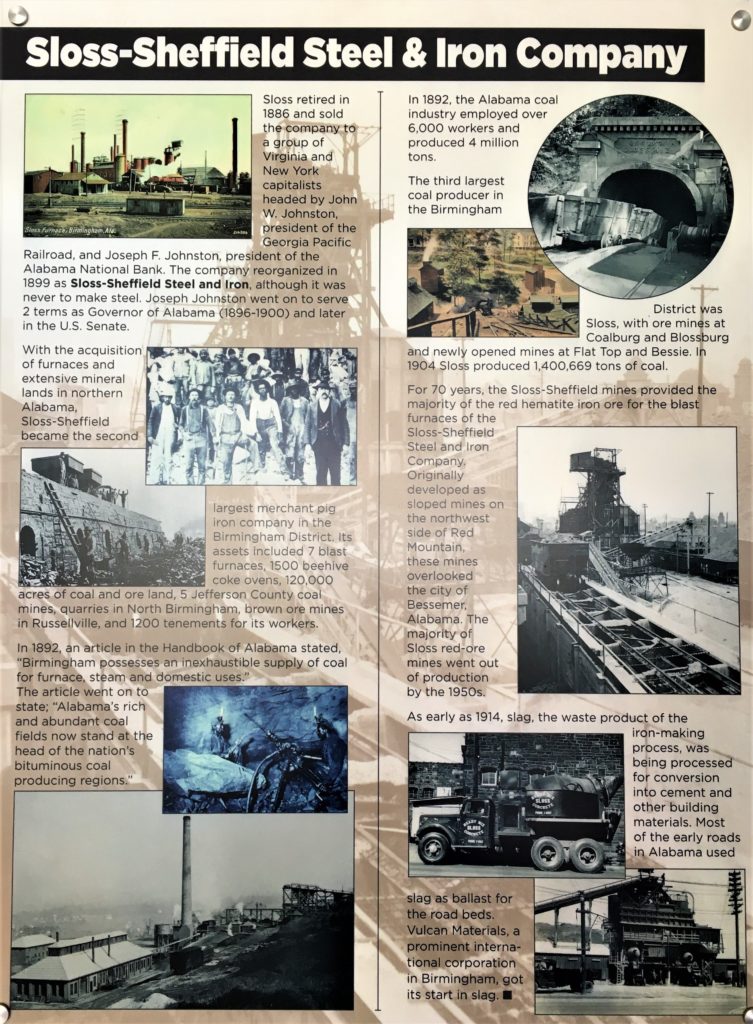
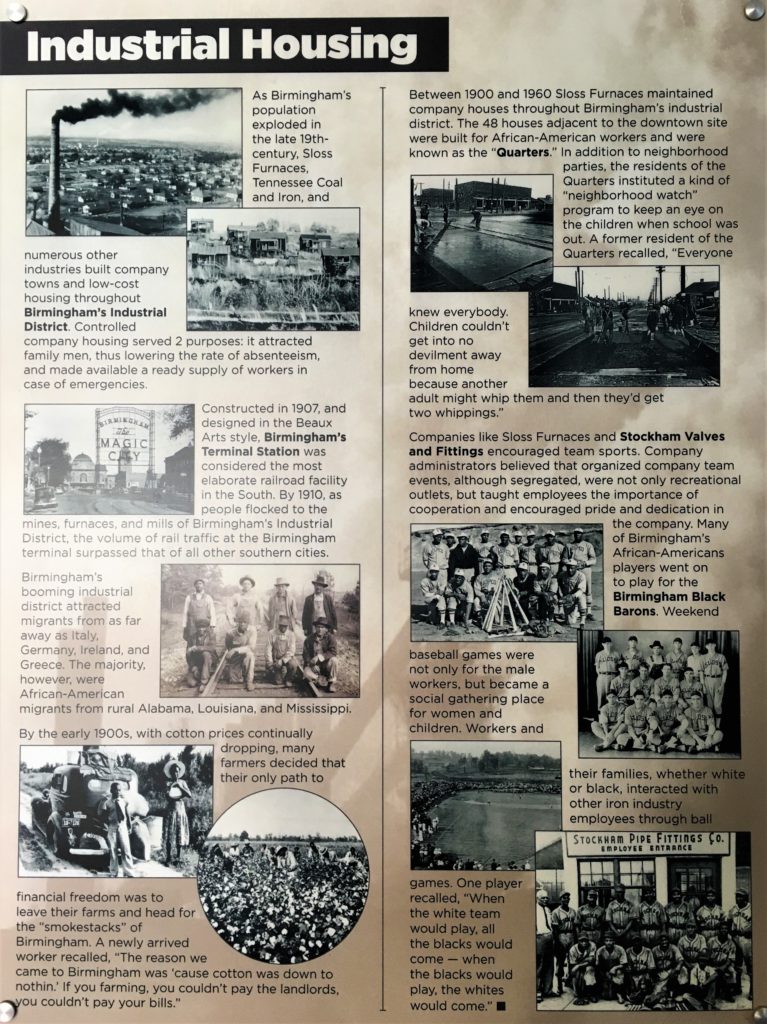
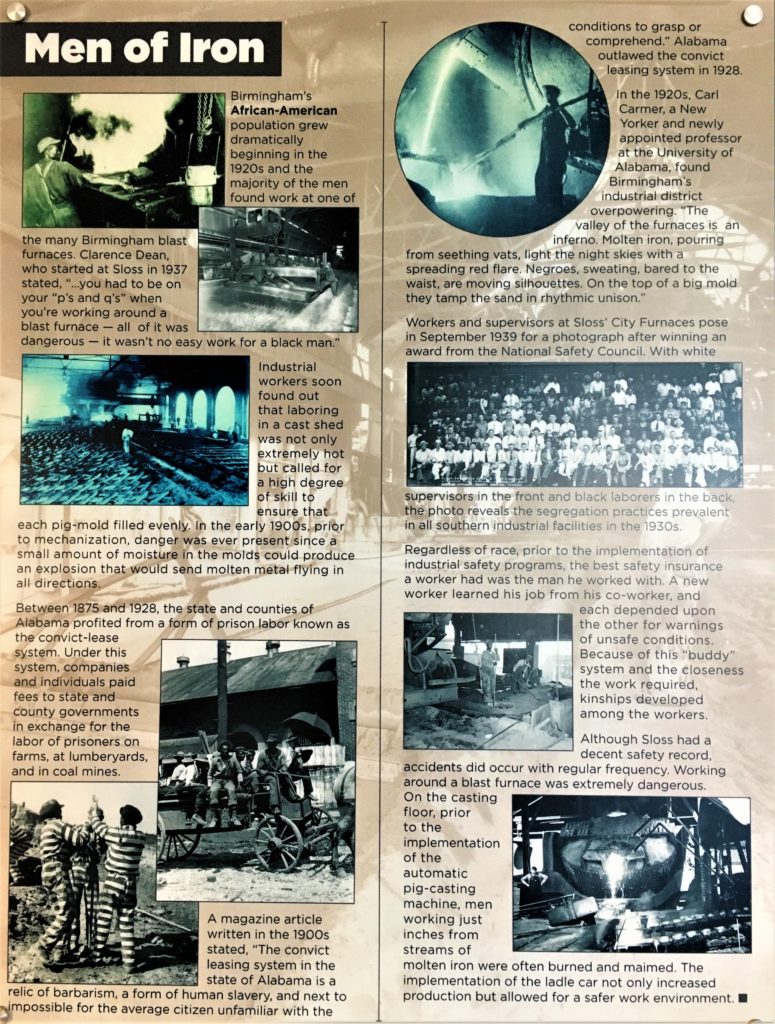
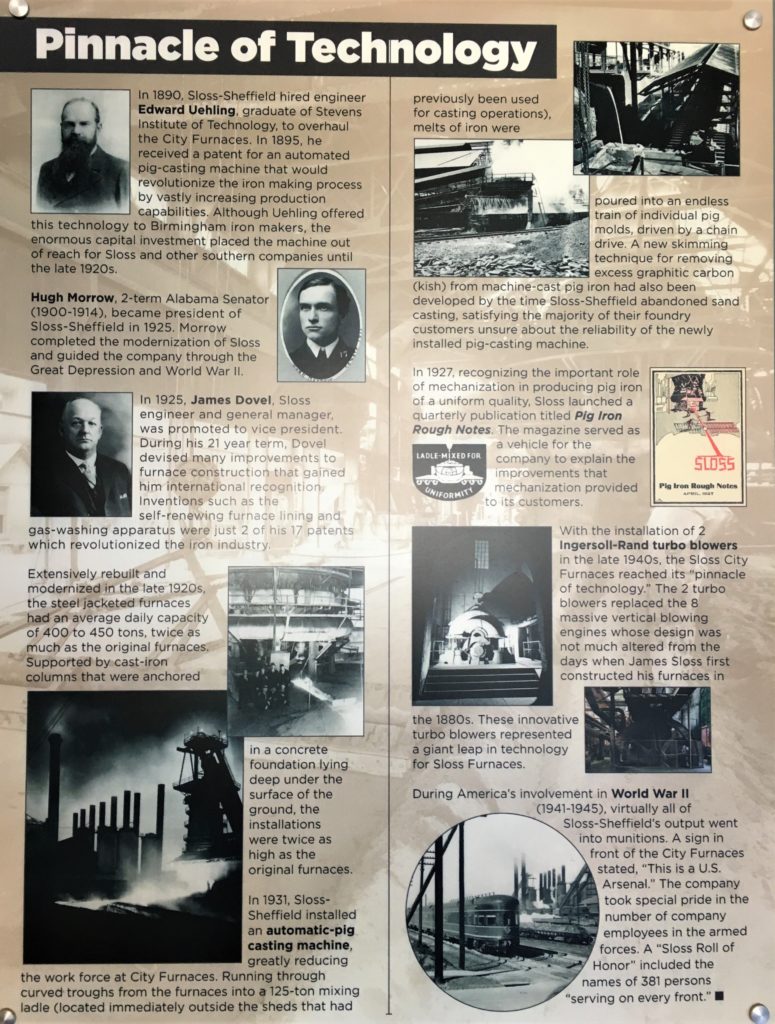
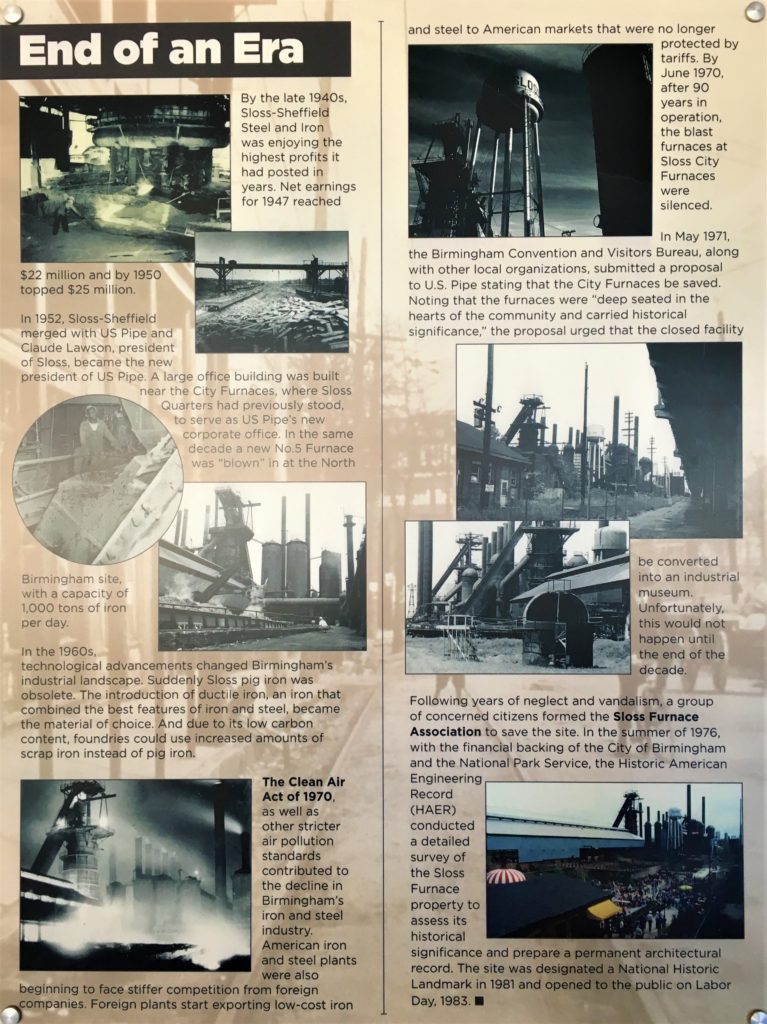
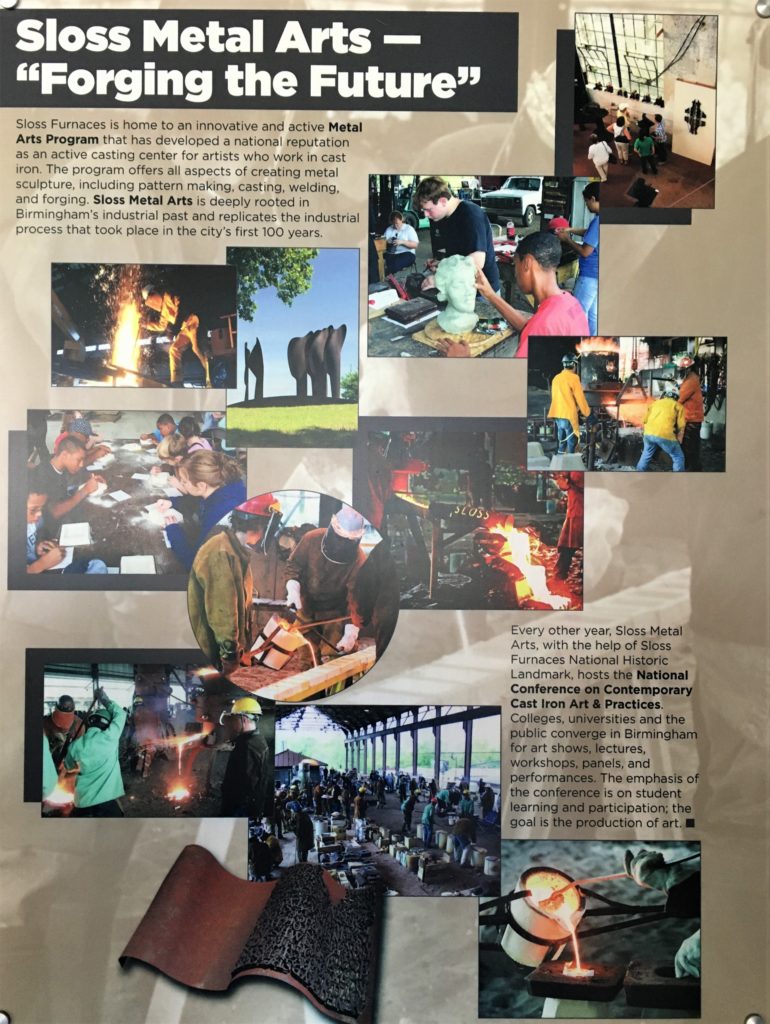
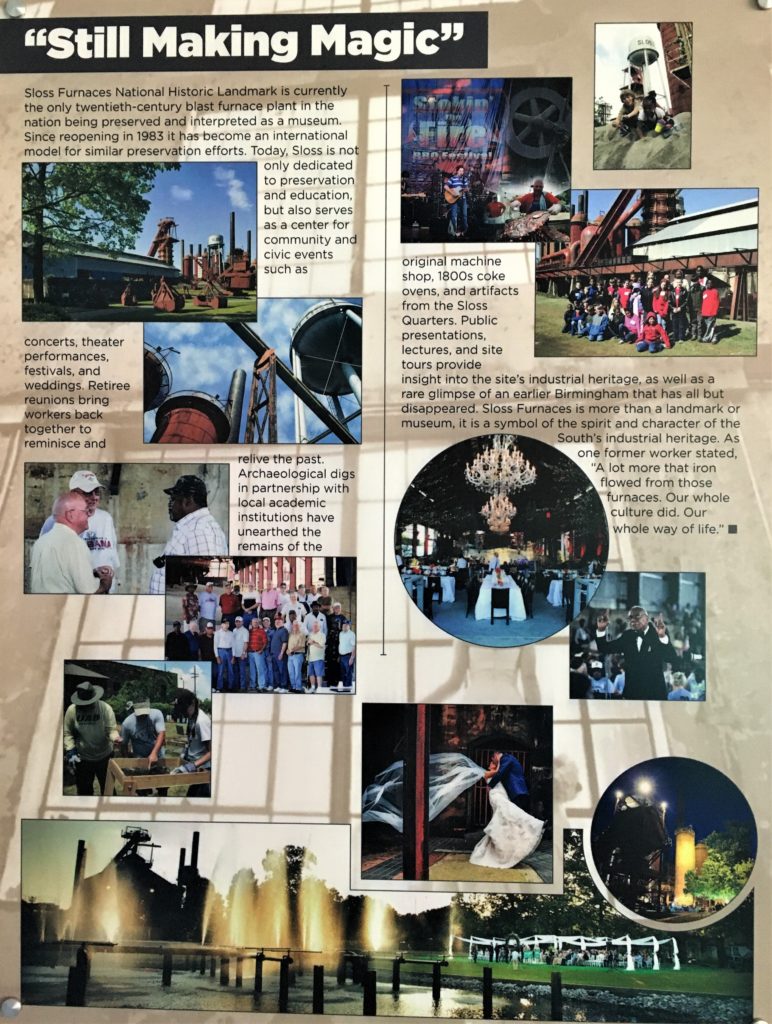
And now the tour! As you travel around with us, try to take in the enormity of this place! Astounding! And once you’ve got that down, close your eyes and imagine the decibel level! Whooshing air, mechanical parts grinding and whirring, men yelling, iron grating, train cars clanging and clacking, melted ore sizzling . . . .
It was probably blanketed in haze as well. Quite the sensory experience!
Oh. And don’t forget the smells . . .
Now imagine having to work hours and hours and day after day in this place. In the heat and the smoke and the noise. . . . and the smell . . .
And then, be grateful for the job you have/had.
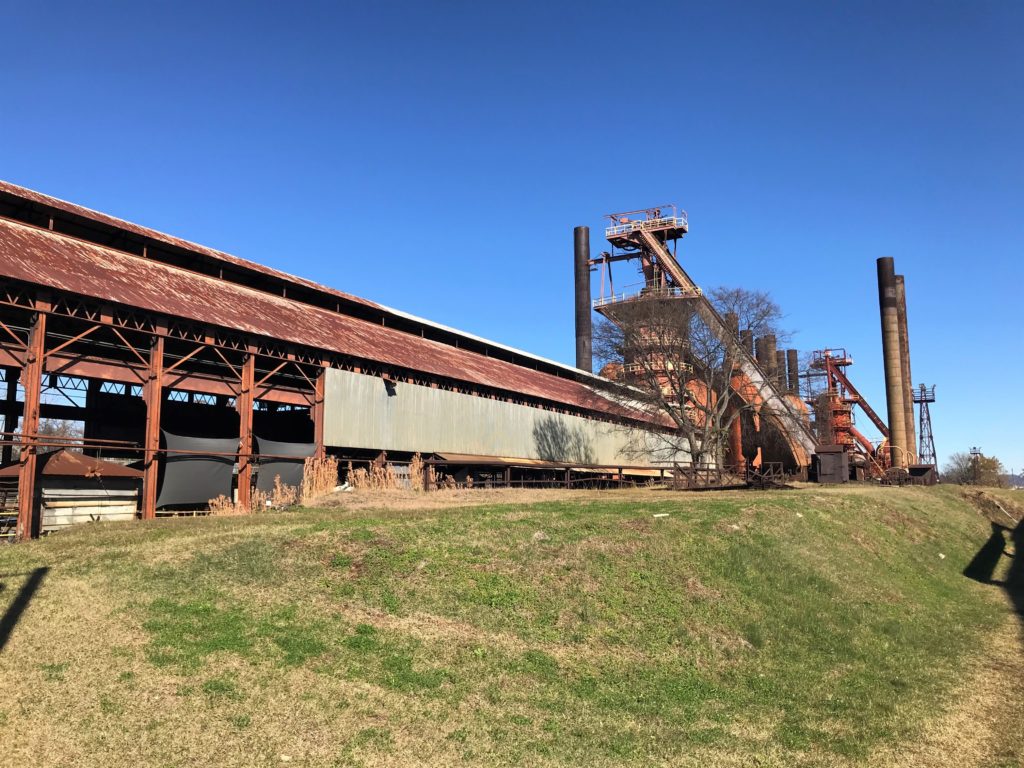
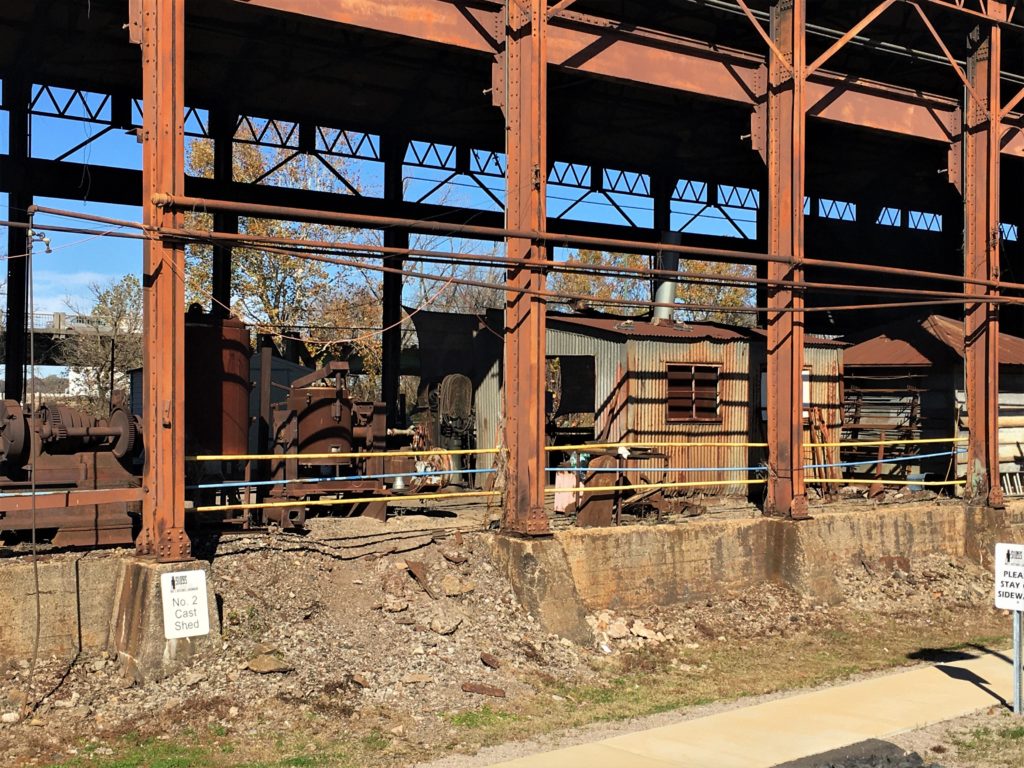
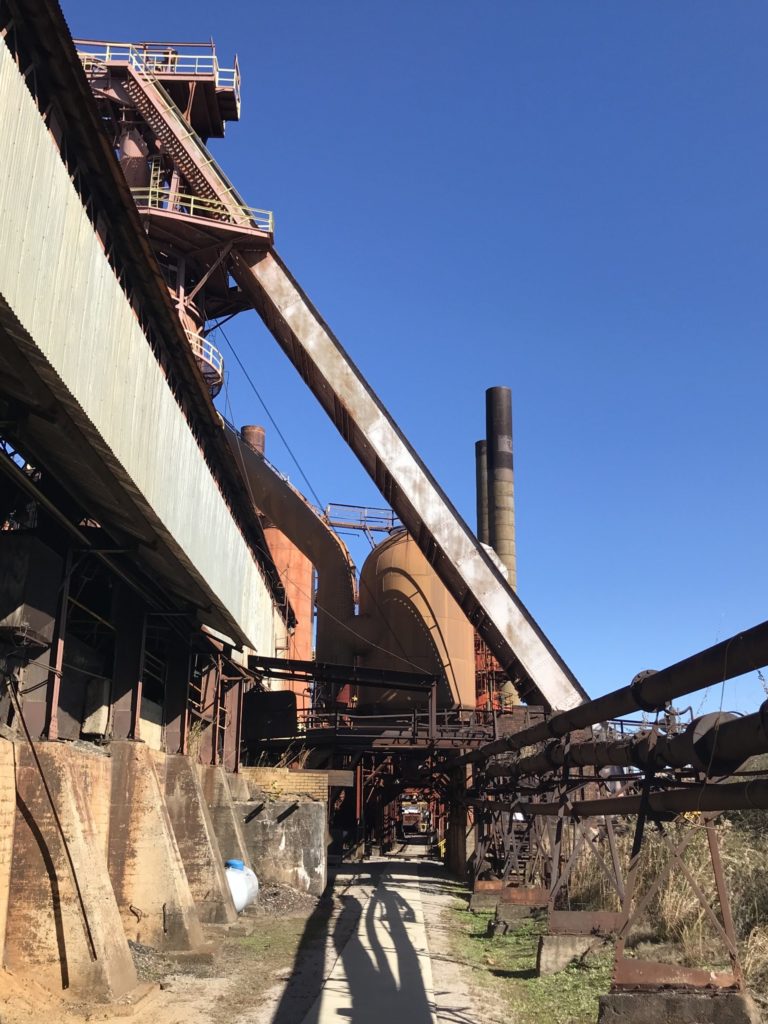
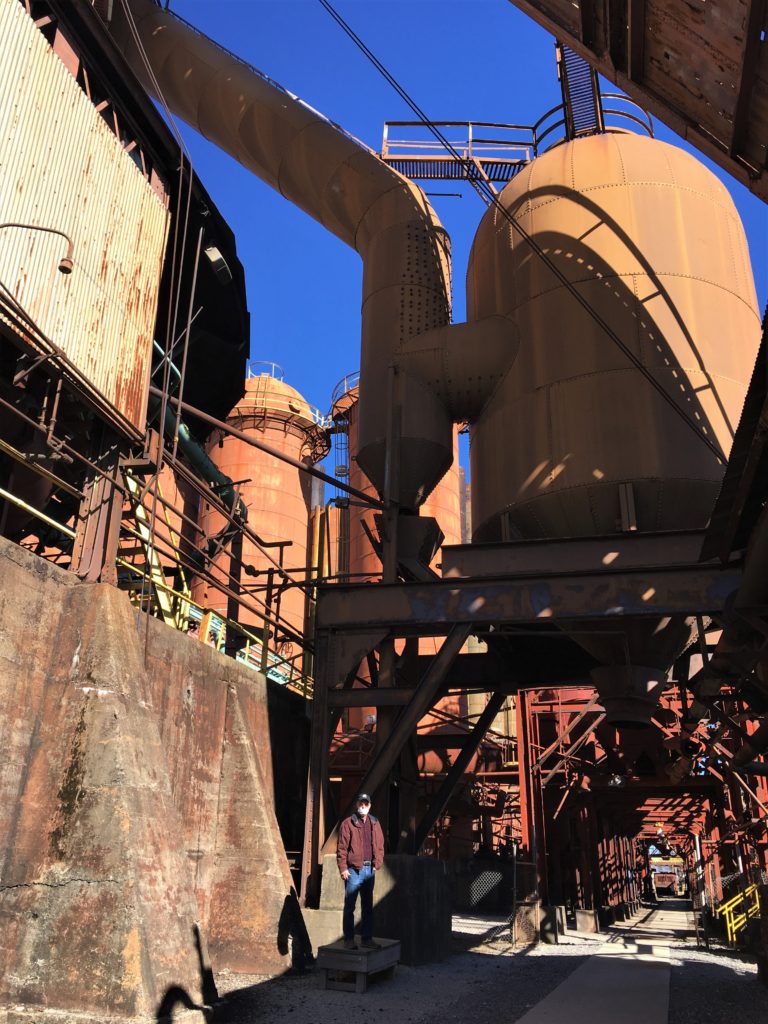

God’s creation re-claiming man’s creation.
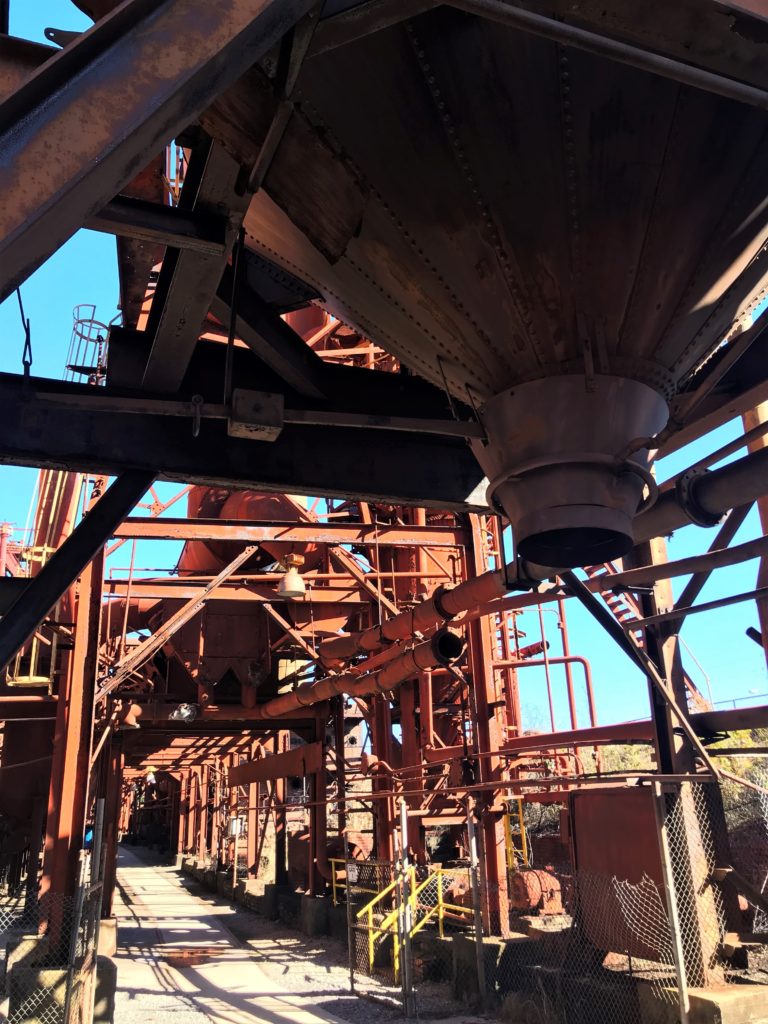
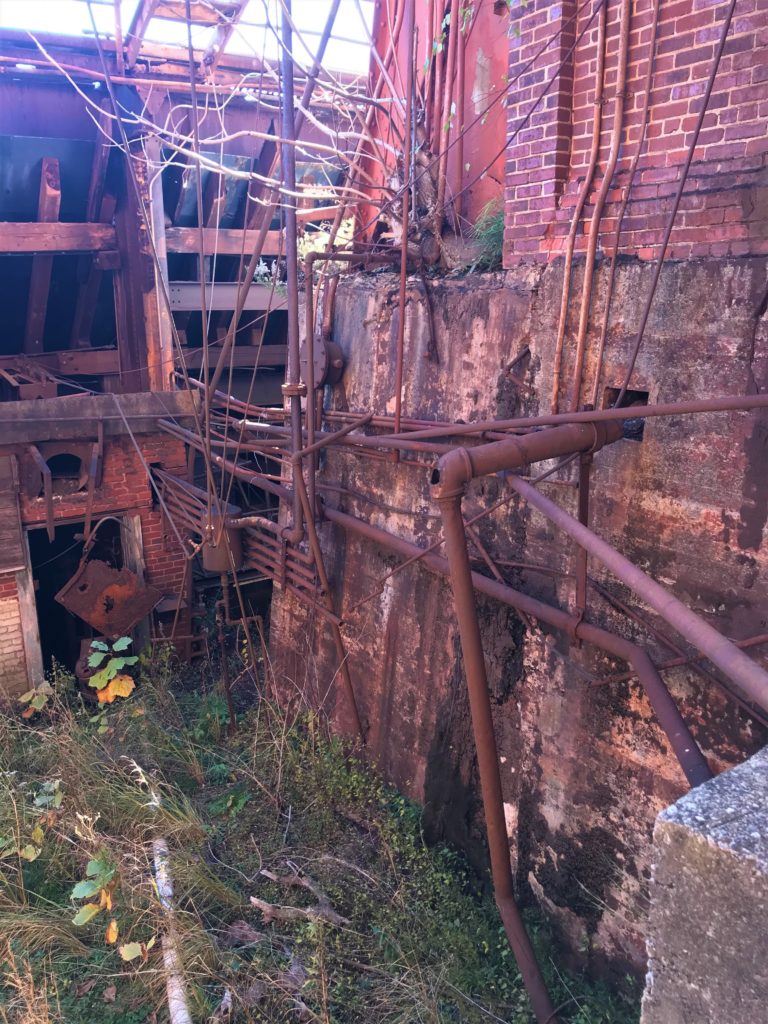
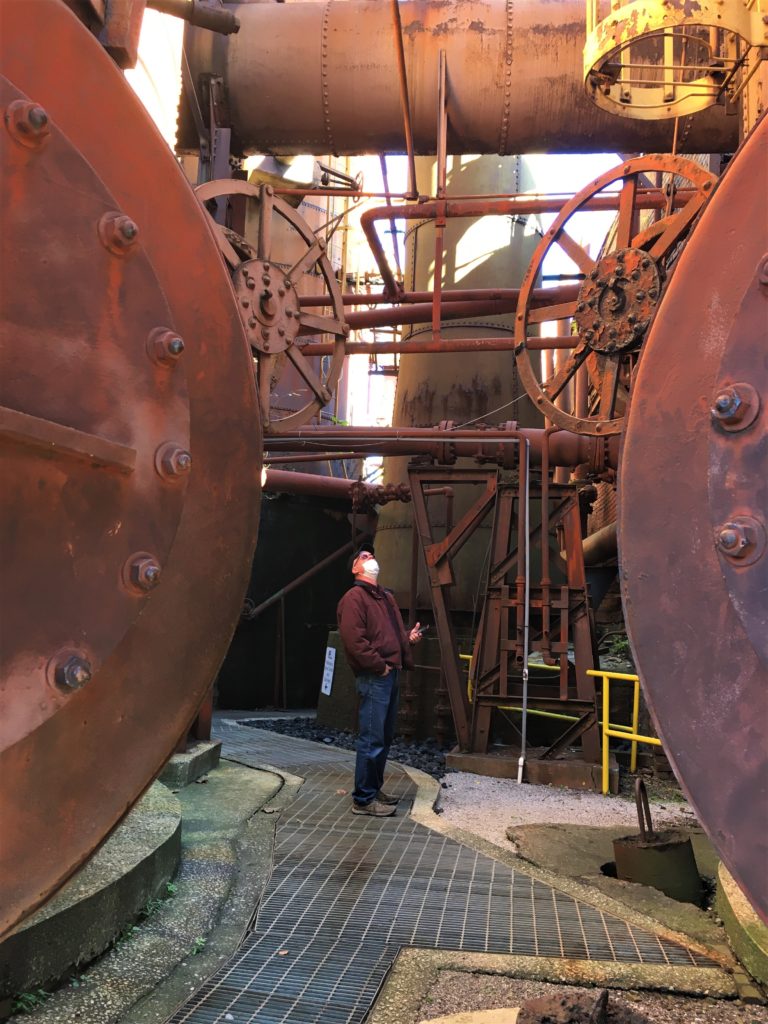
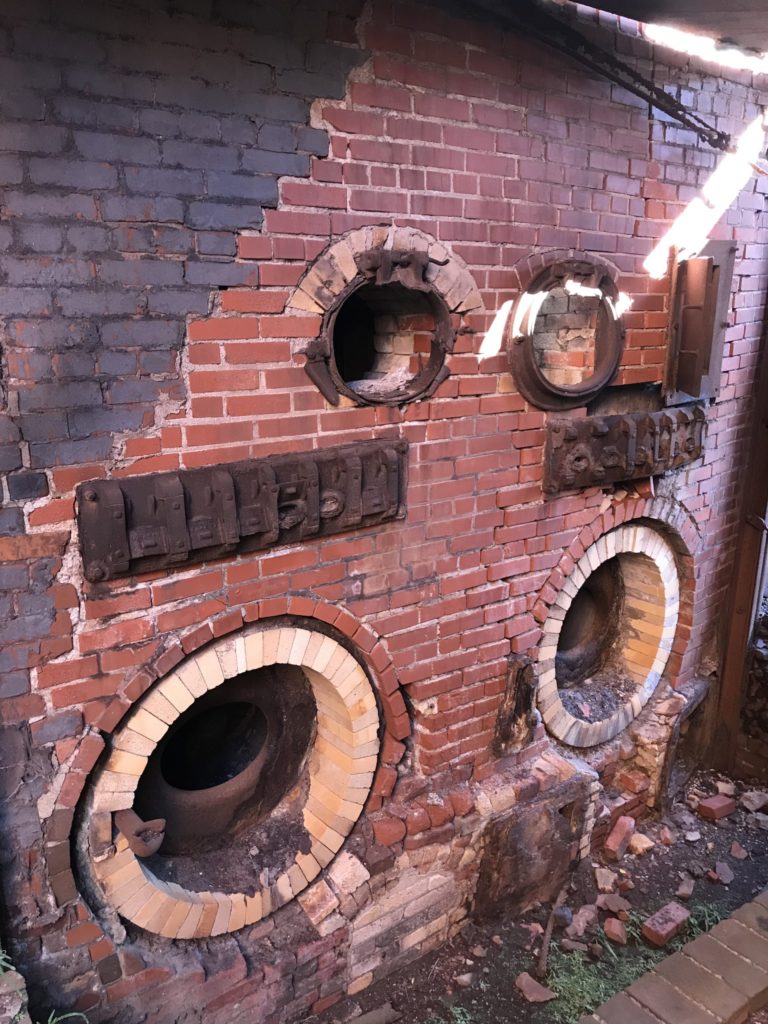
This on was built around 1920.
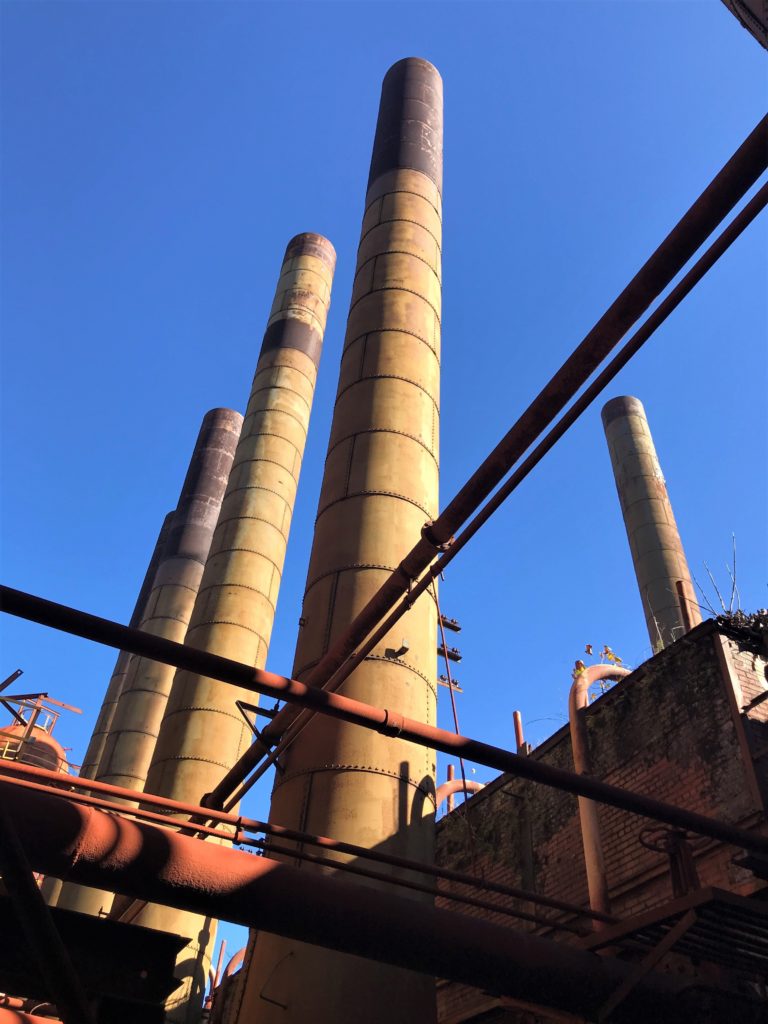
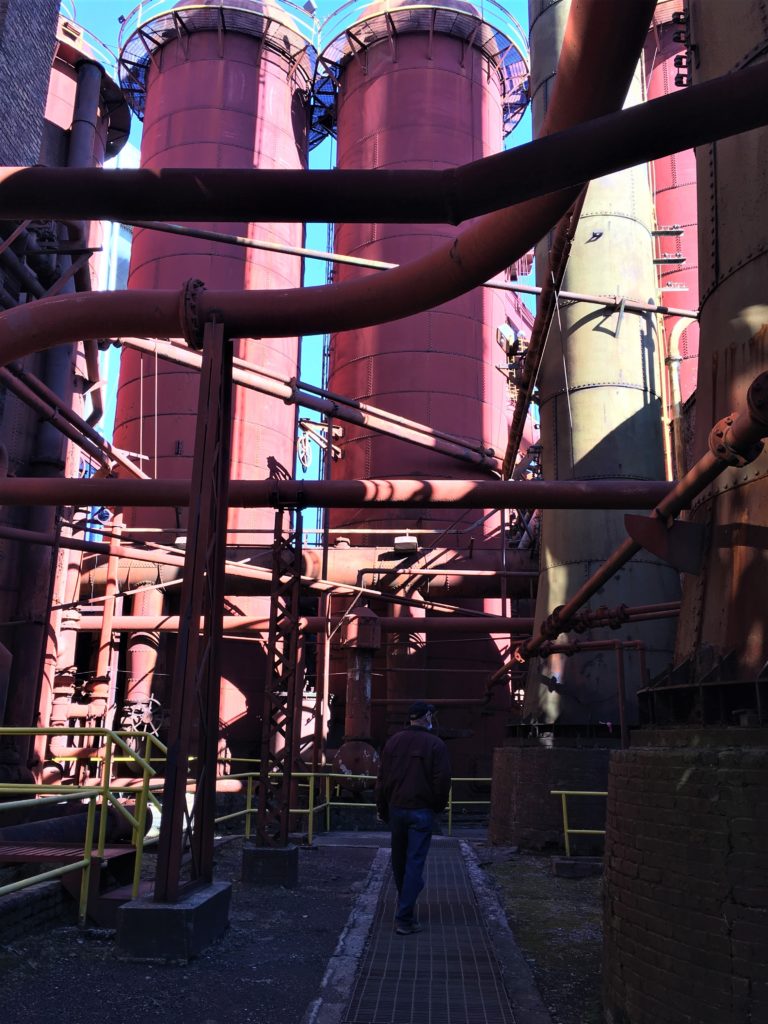
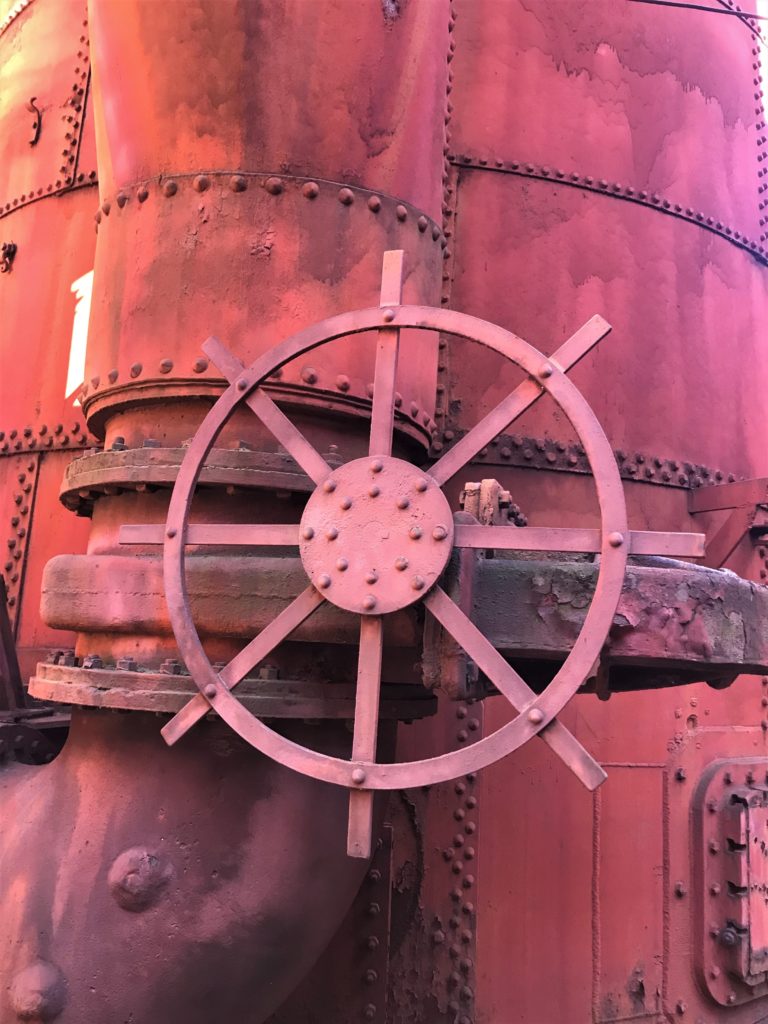
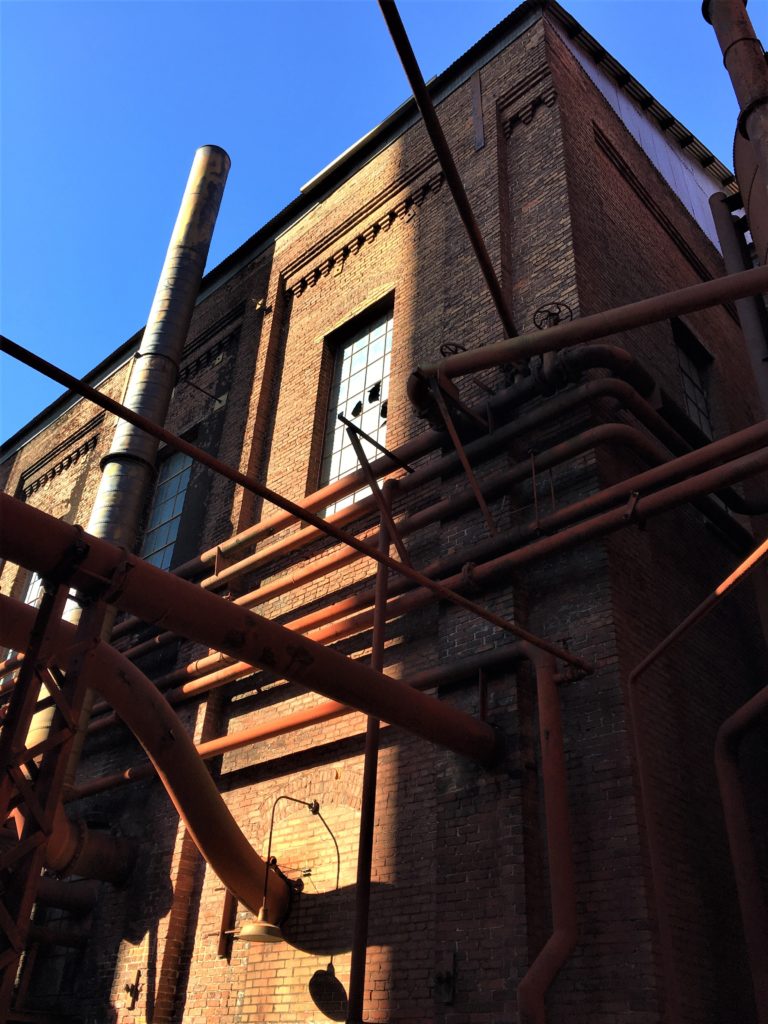
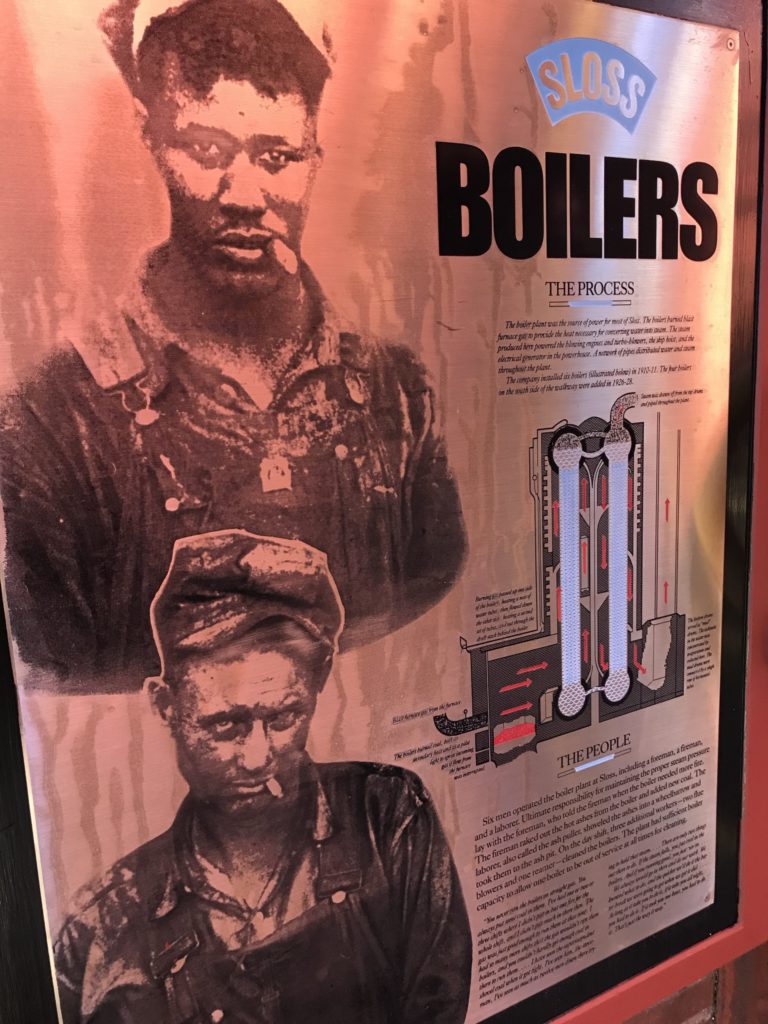
They were faded, or worn, or scratched, or just had the sun glaring off the metal.
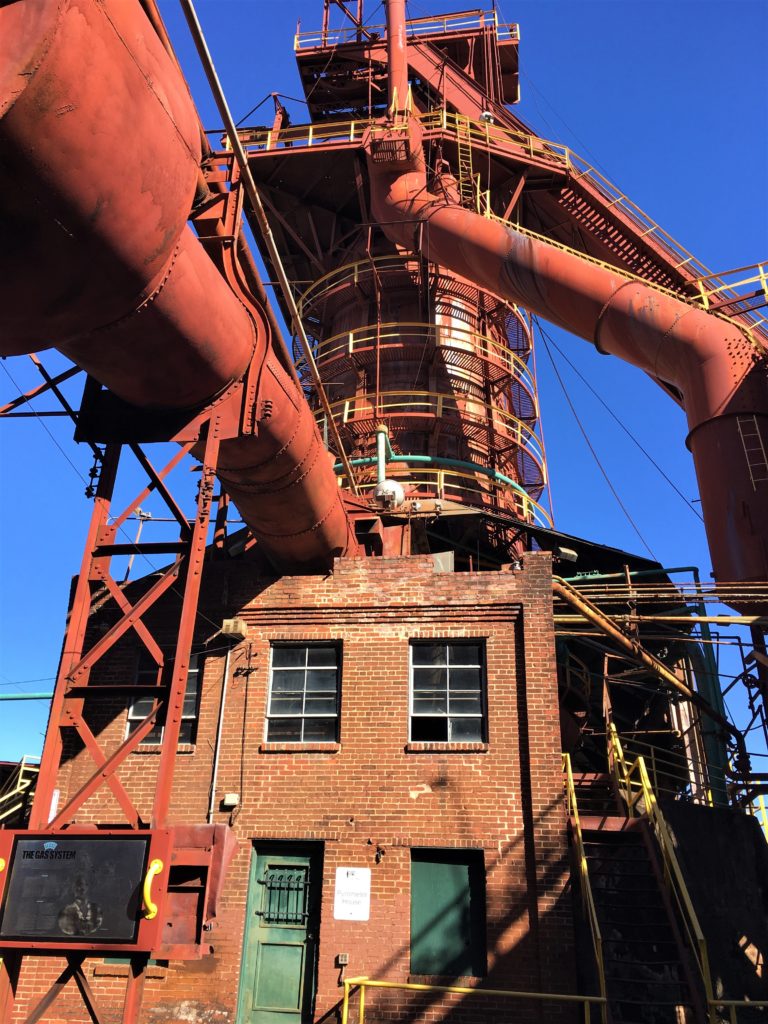
I don’t remember what it was for, other than
this was the place people were supposed to go in the event of a tornado.
I’m thinking only the upper-level workers were allowed in
because it sure wouldn’t hold more than a dozen or so people.

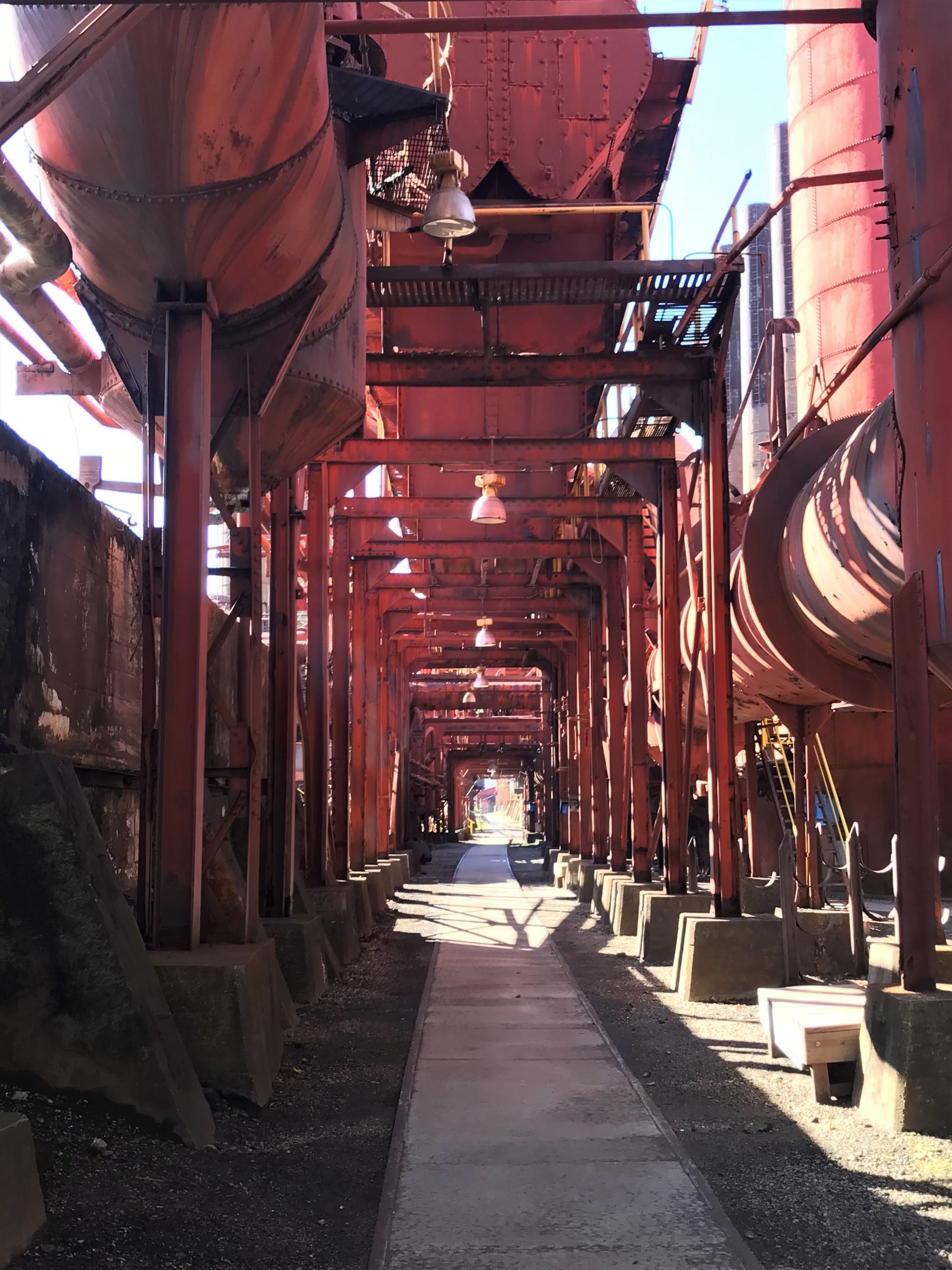
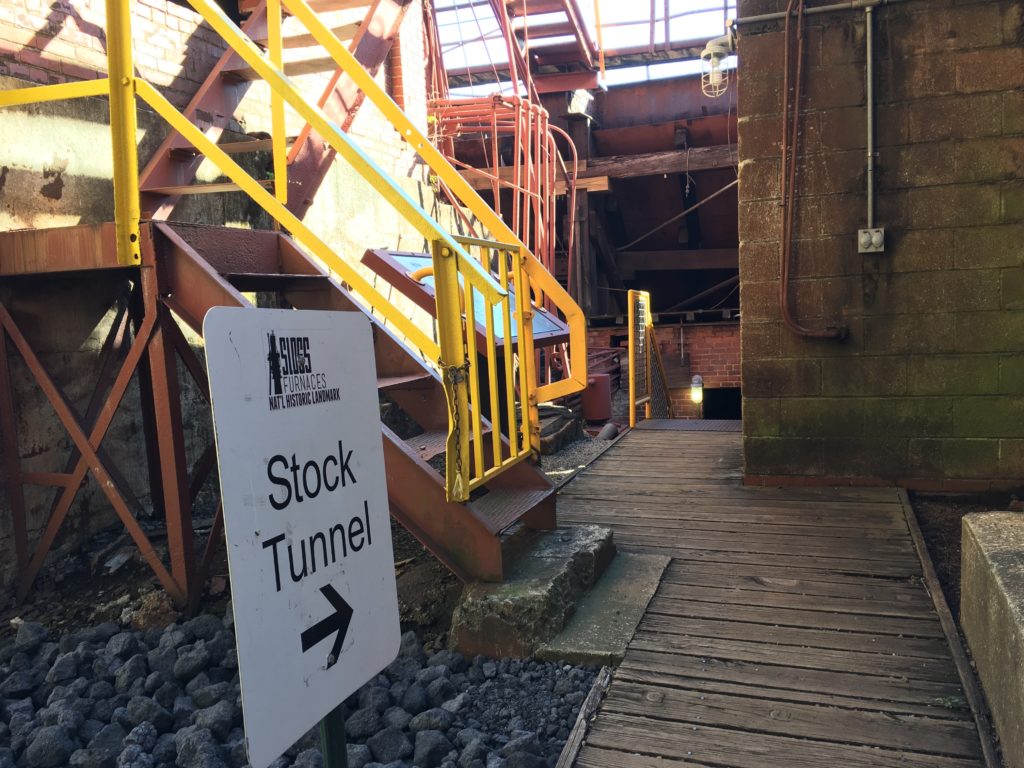
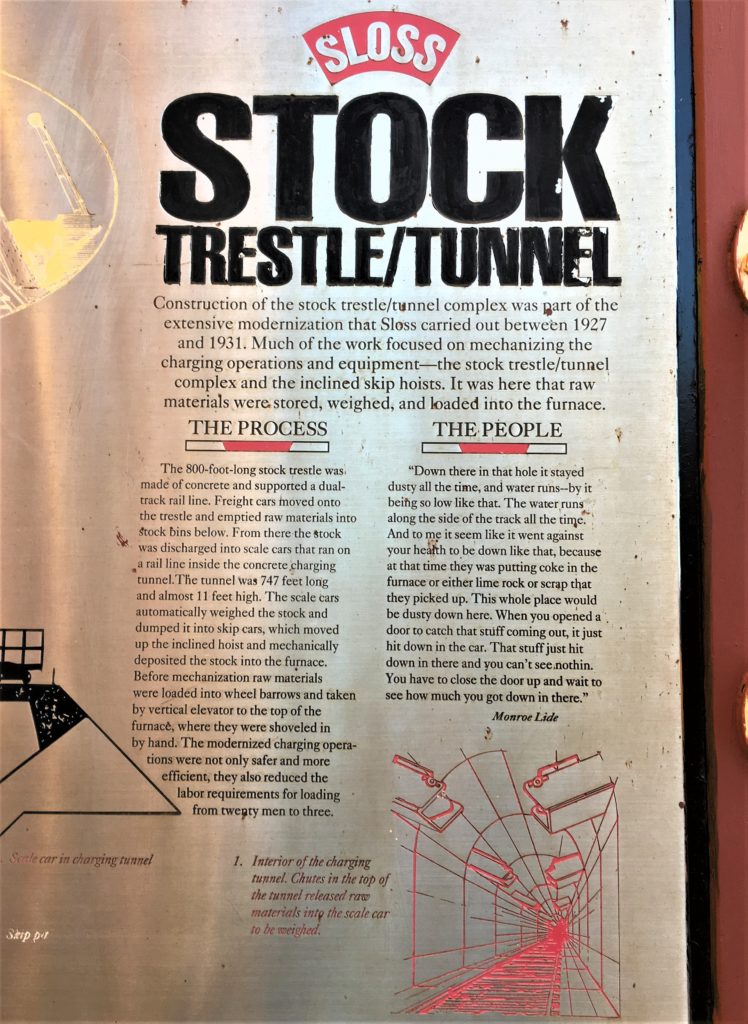
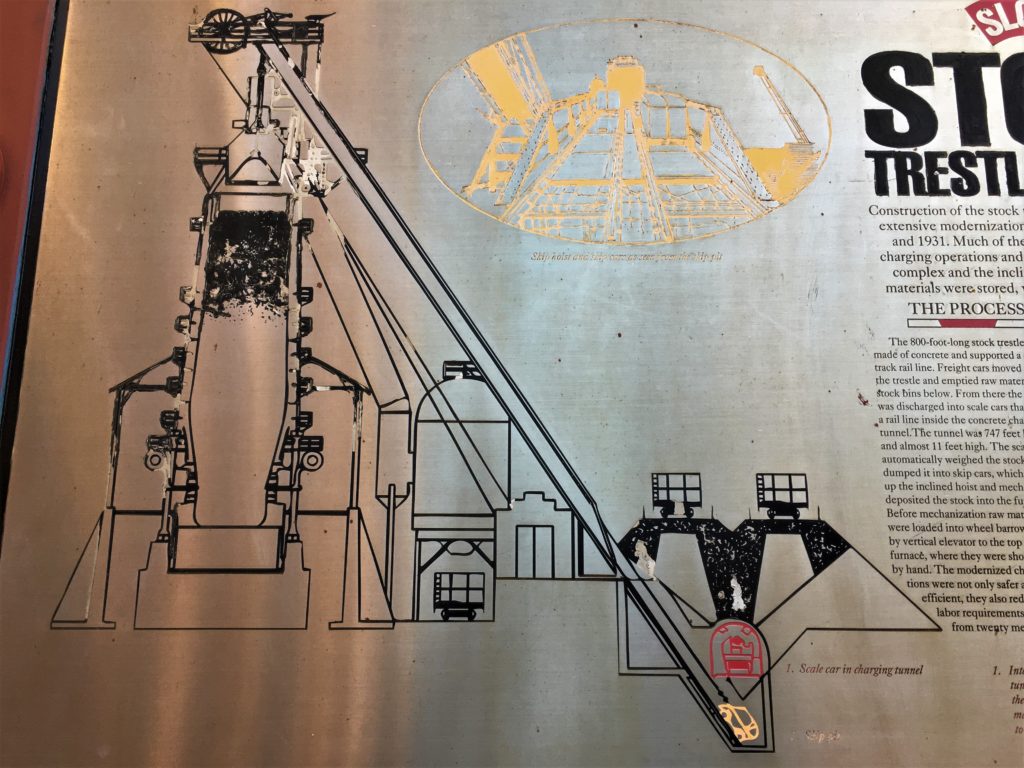
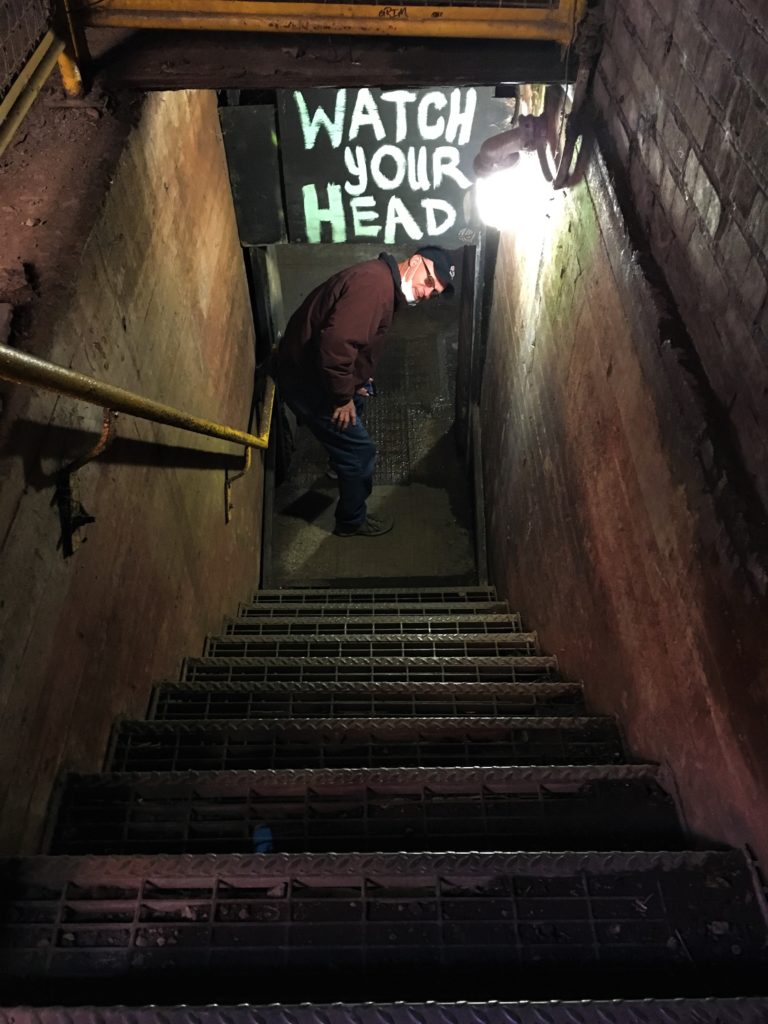
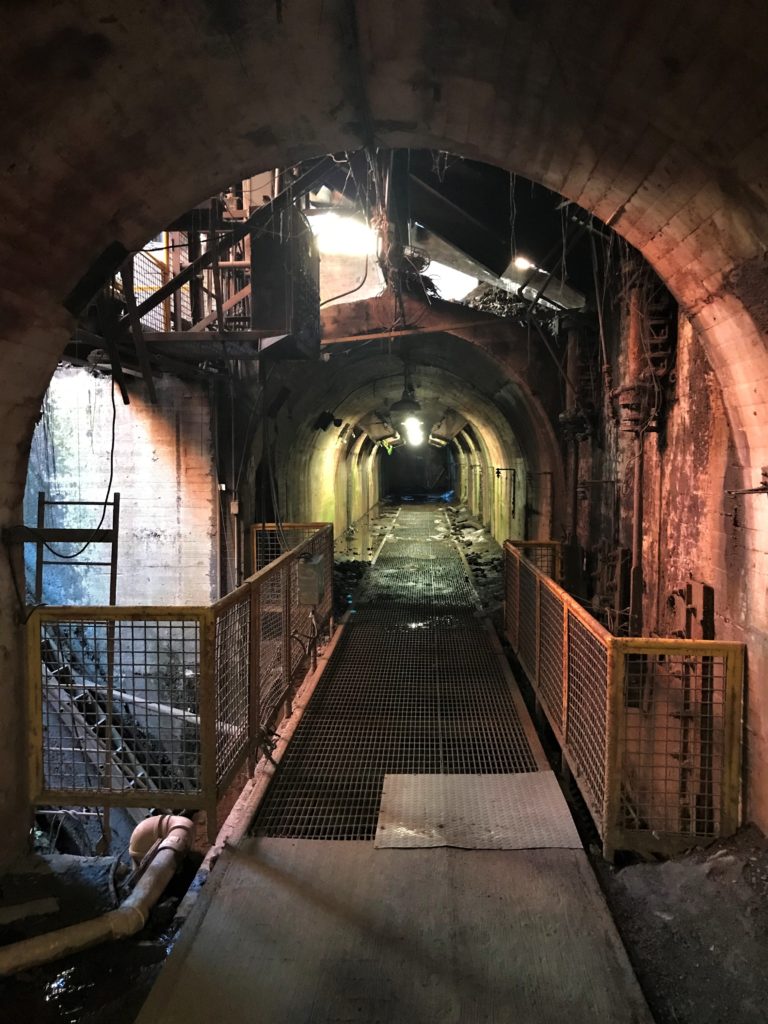
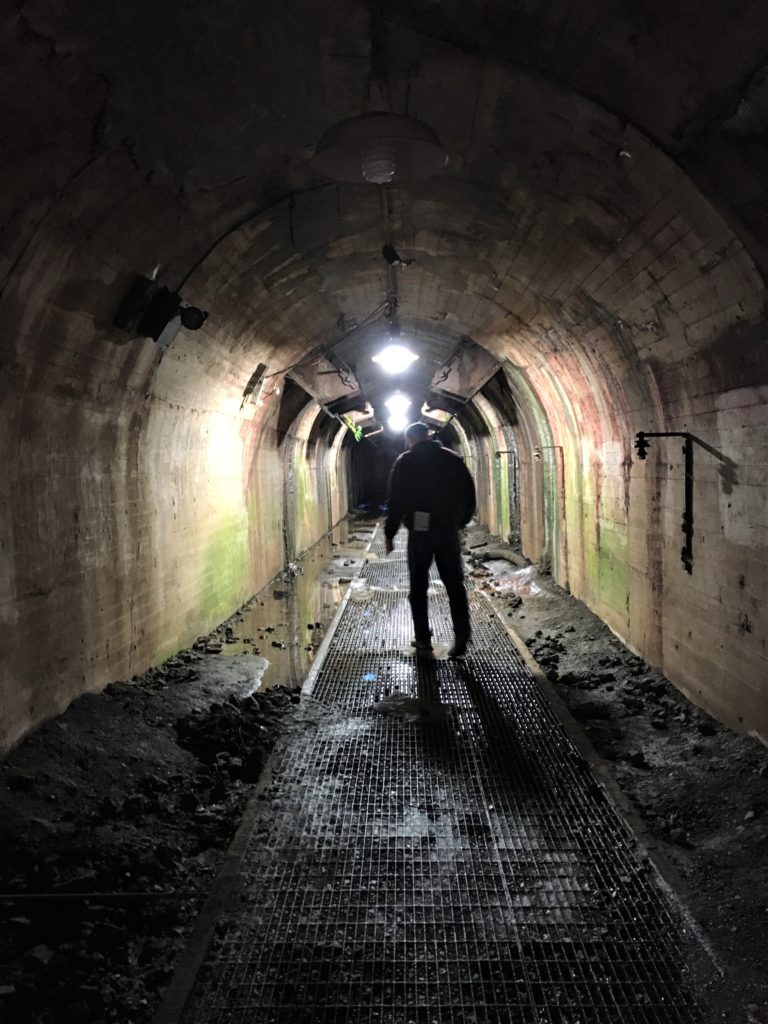
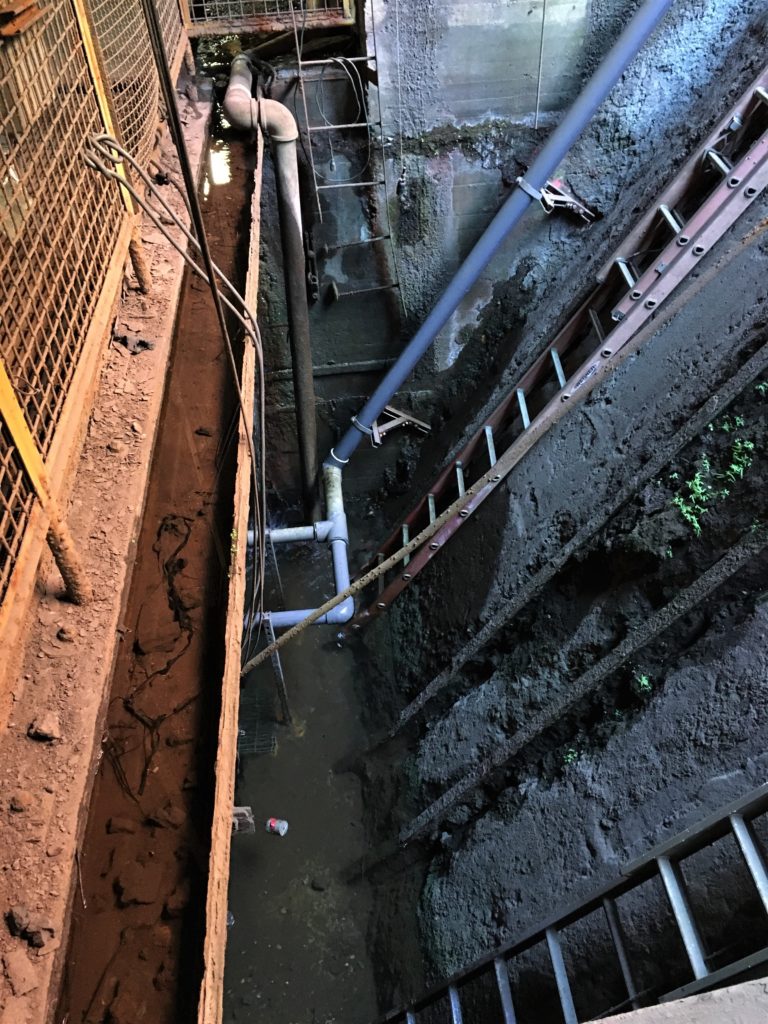
This is the area where the cars in the next picture were loaded with the ore.
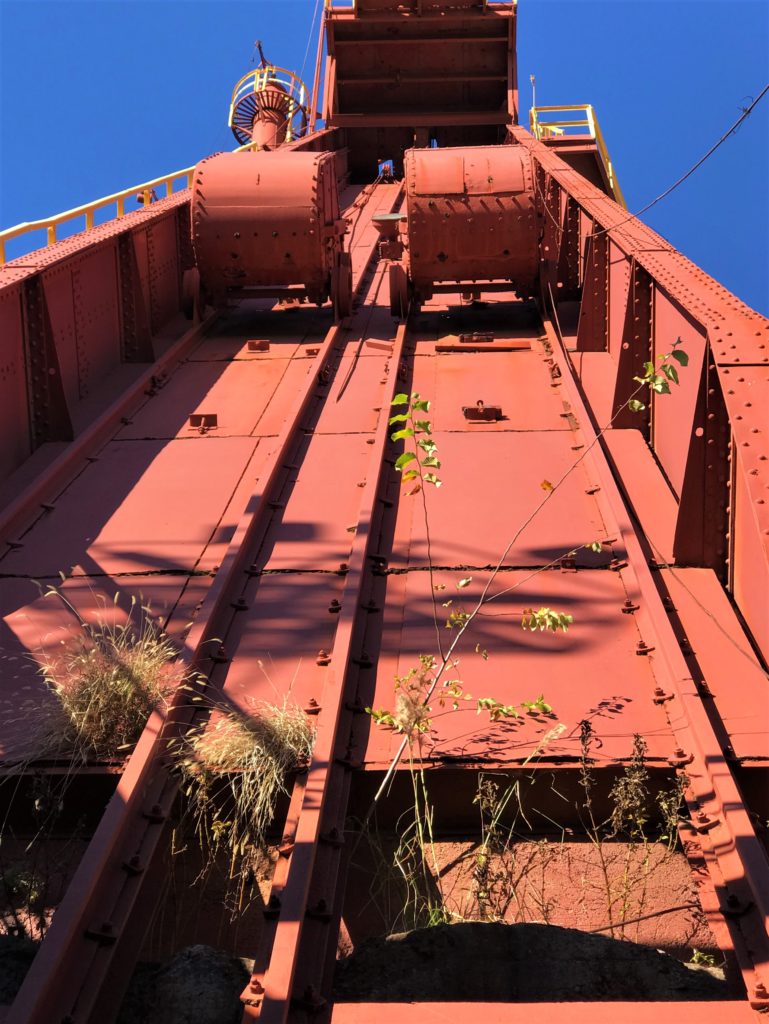
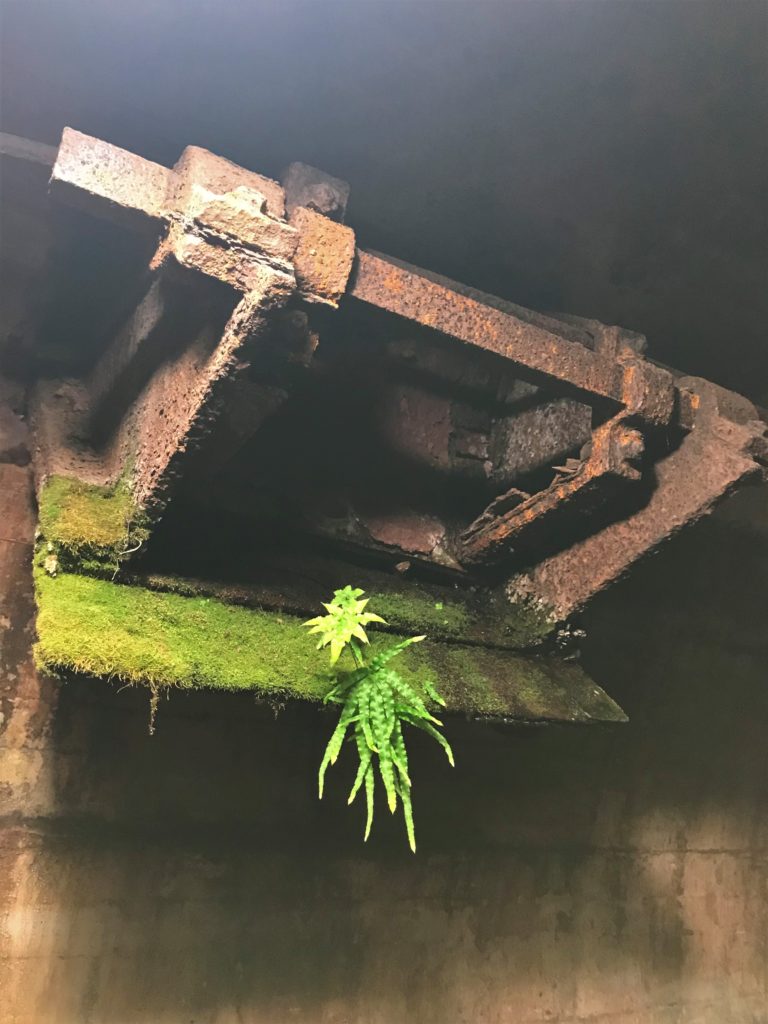
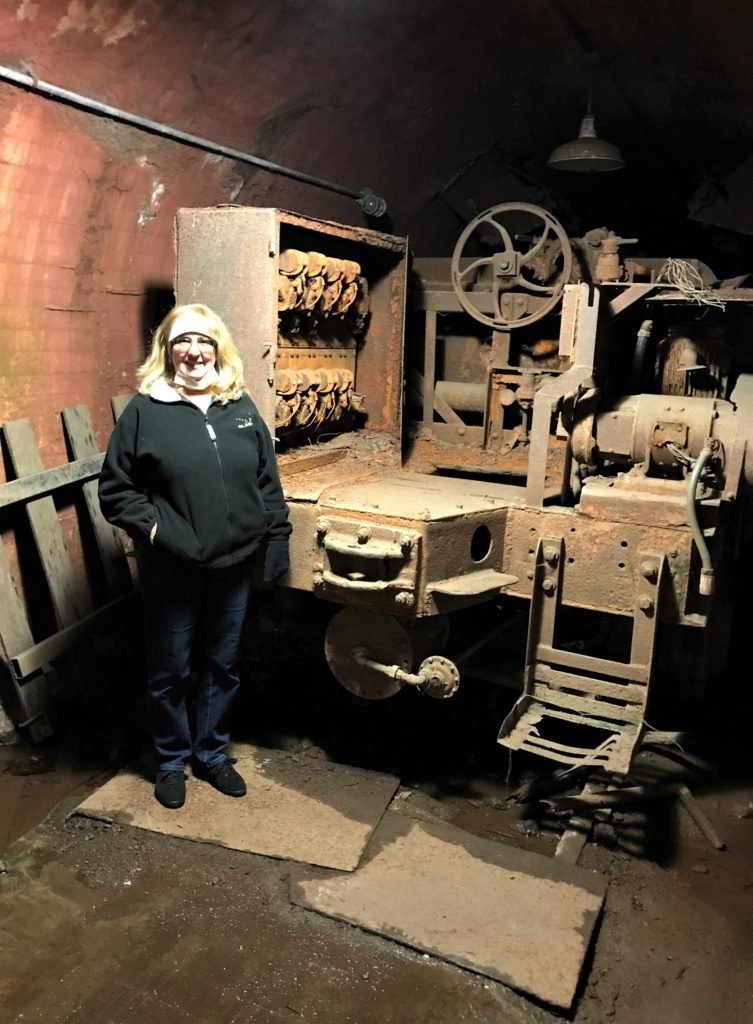
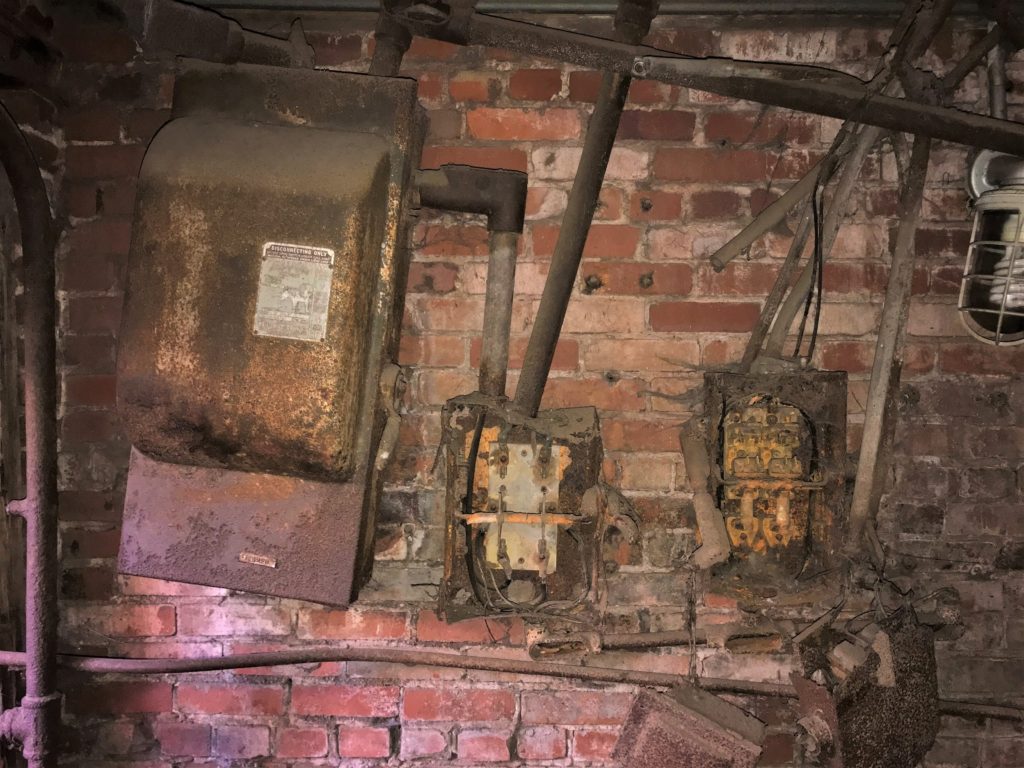
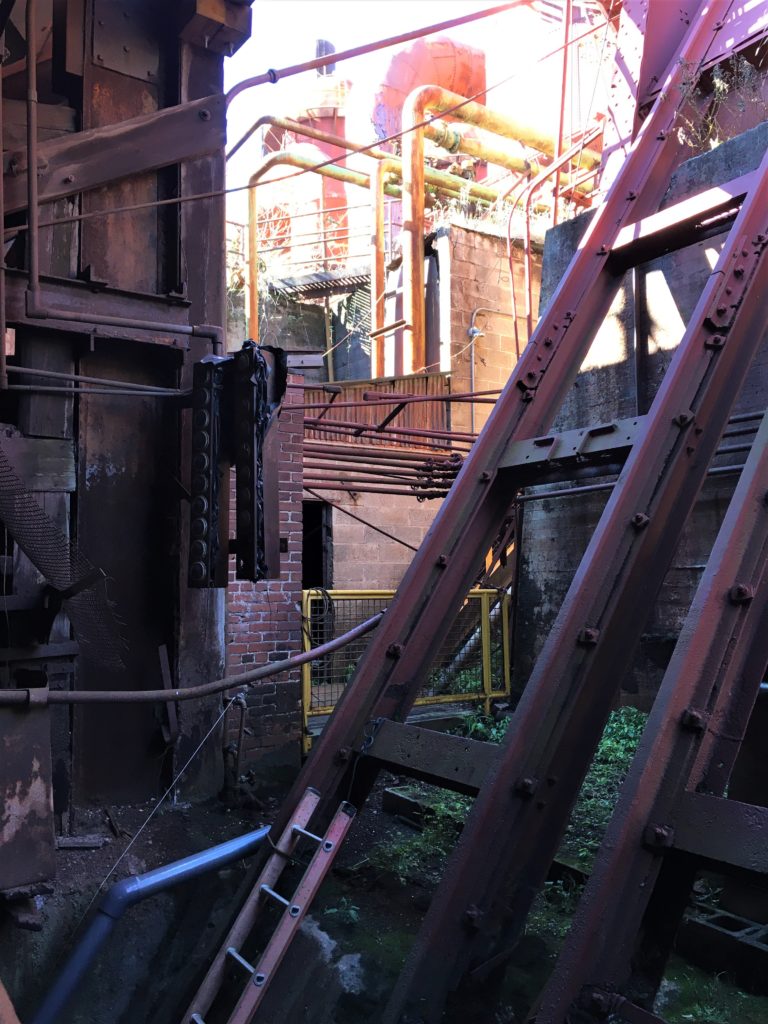
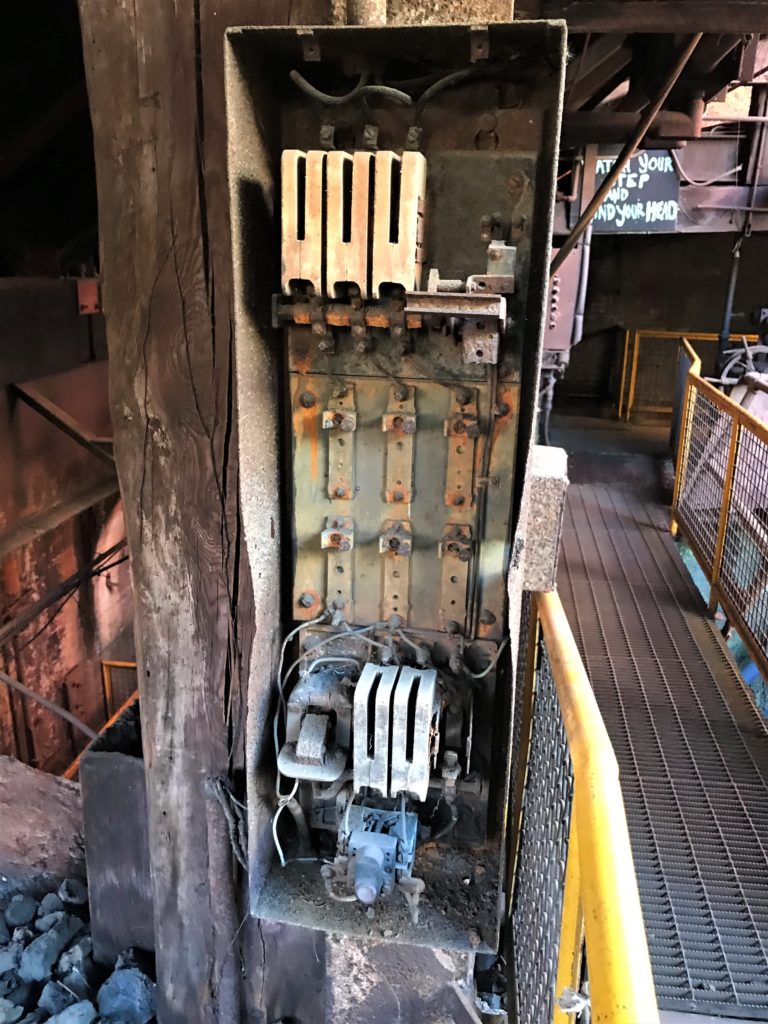
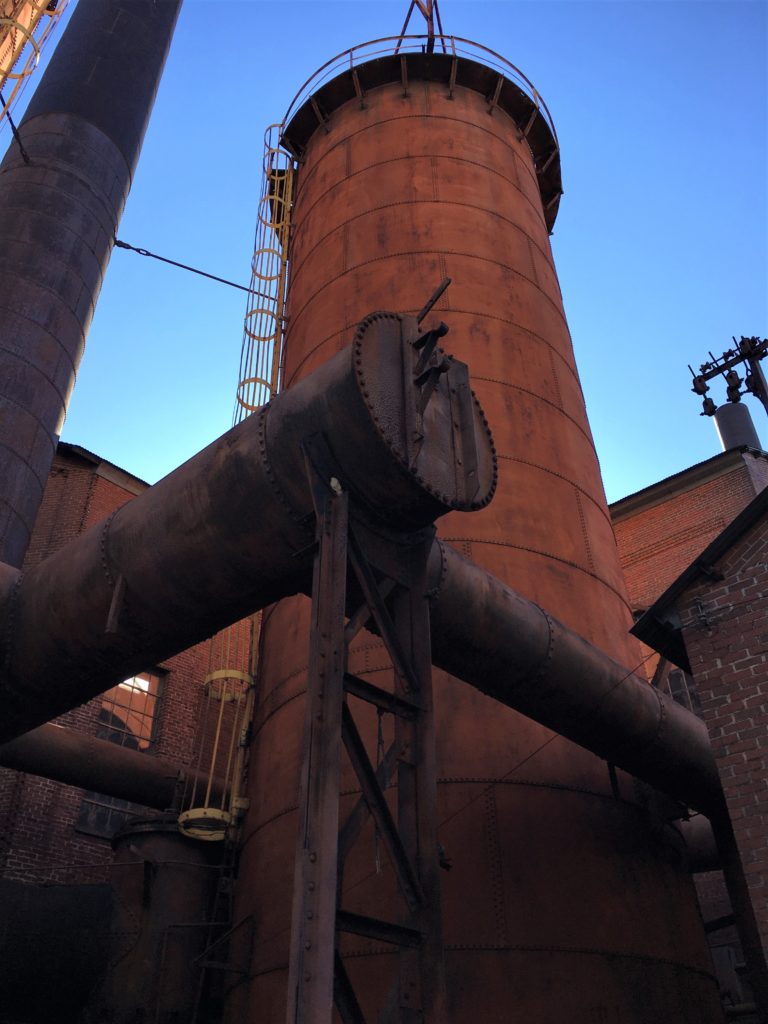
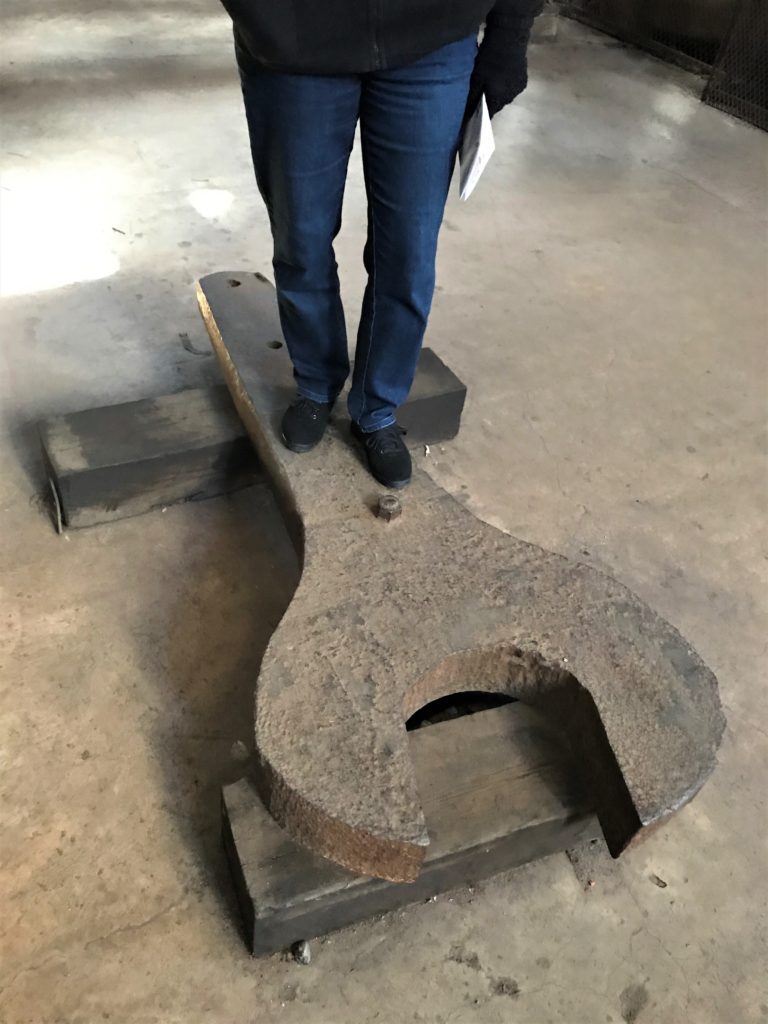
We think it’s more likely a piece of art, since no one could lift the thing
and we didn’t see any bolts large enough to need it.
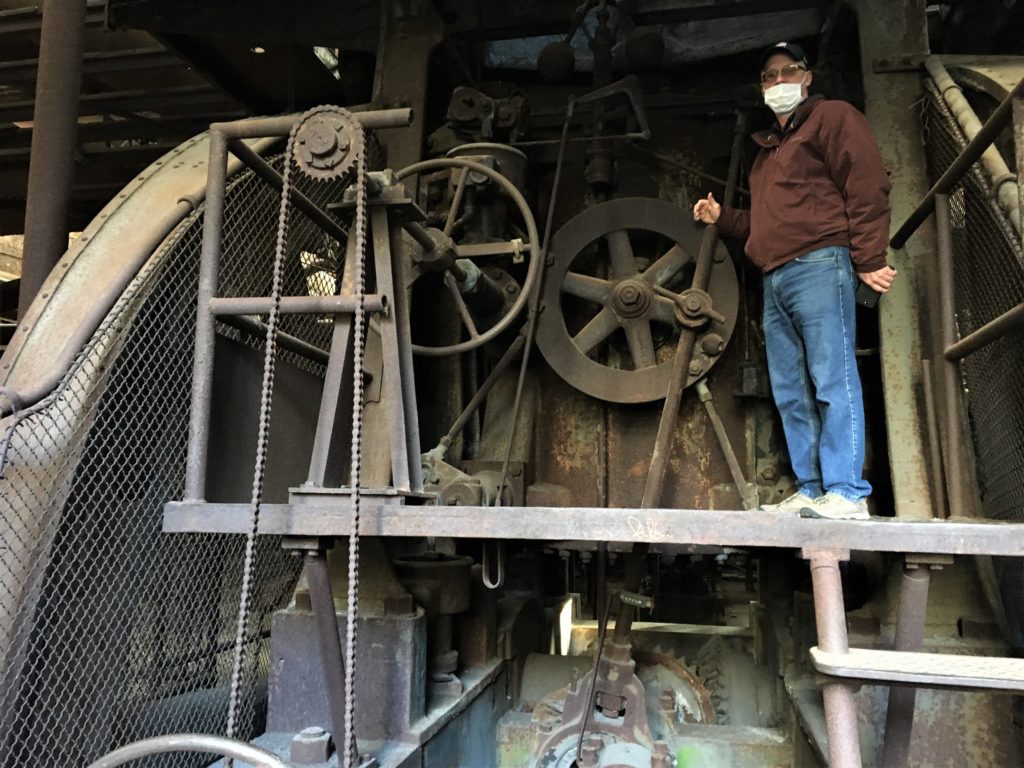
I say that because we encountered two colleg-age guys in here playing hide and seek!
They were even doing the counting, and “Ready or not, here I come!” LOL
It’s actually the Blowing Engine Room.
Some additional information about this building – It was built in the early 1900s and is the oldest building on the site. The Blowing Engines stand over 30′ tall and turned flywheels 20′ in diameter at a rate of about 30 revolutions per minute. Although built in the early twentieth century, the Blowing Engines represent the pinnacle of nineteenth century technology. Reciprocating steam engines such as these powered the Industrial Revolution. Each engine had a steam cylinder (on bottom) and an air cylinder on top). Steam drove the piston in the steam cylinder up and down, in turn driving the piston in the air cylinder. The moving piston pulled in air, compressed it, and pushed it out. These generated a large amount of noise. The decible level would compare to that of standing front row at a rock concert.
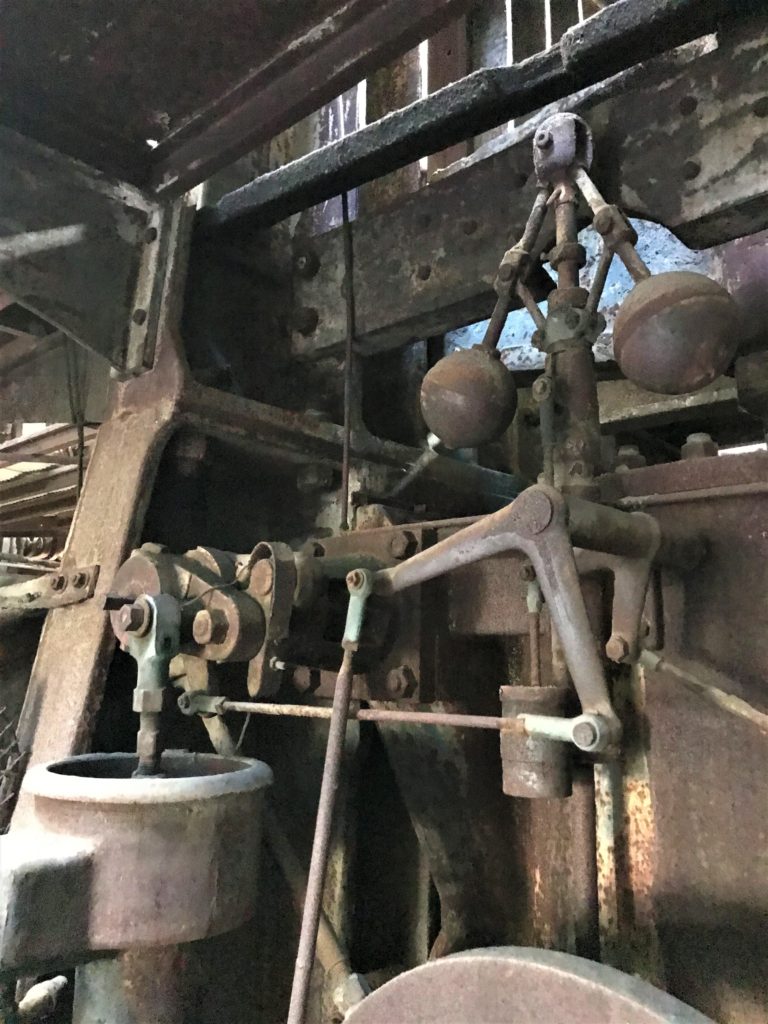
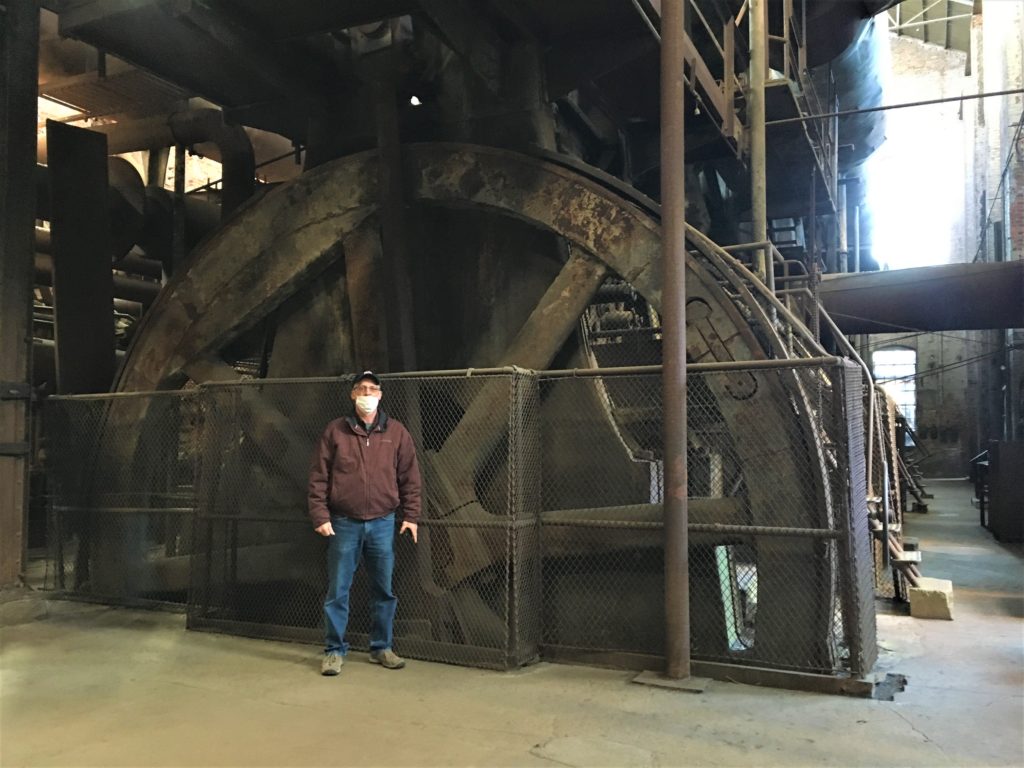
Half of it goes below the floor!
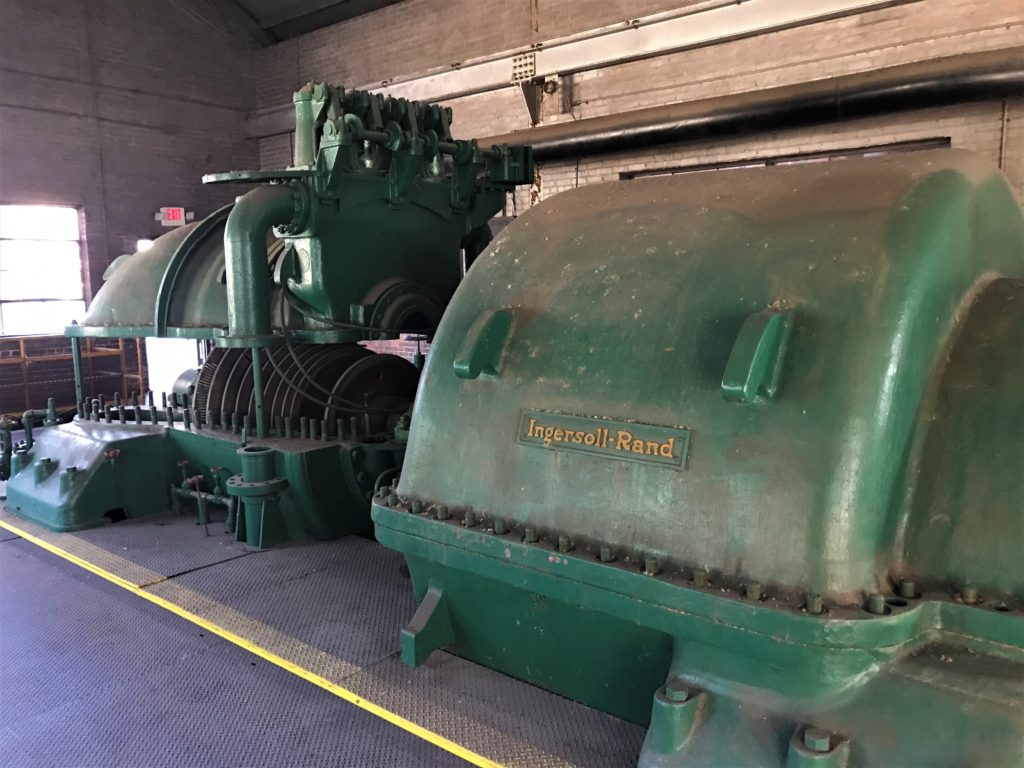
They are centifugal compressors driven by steam turbines.
These compact, efficient Turbo-Blowers did the work of all eight of the original Blowing Engines.
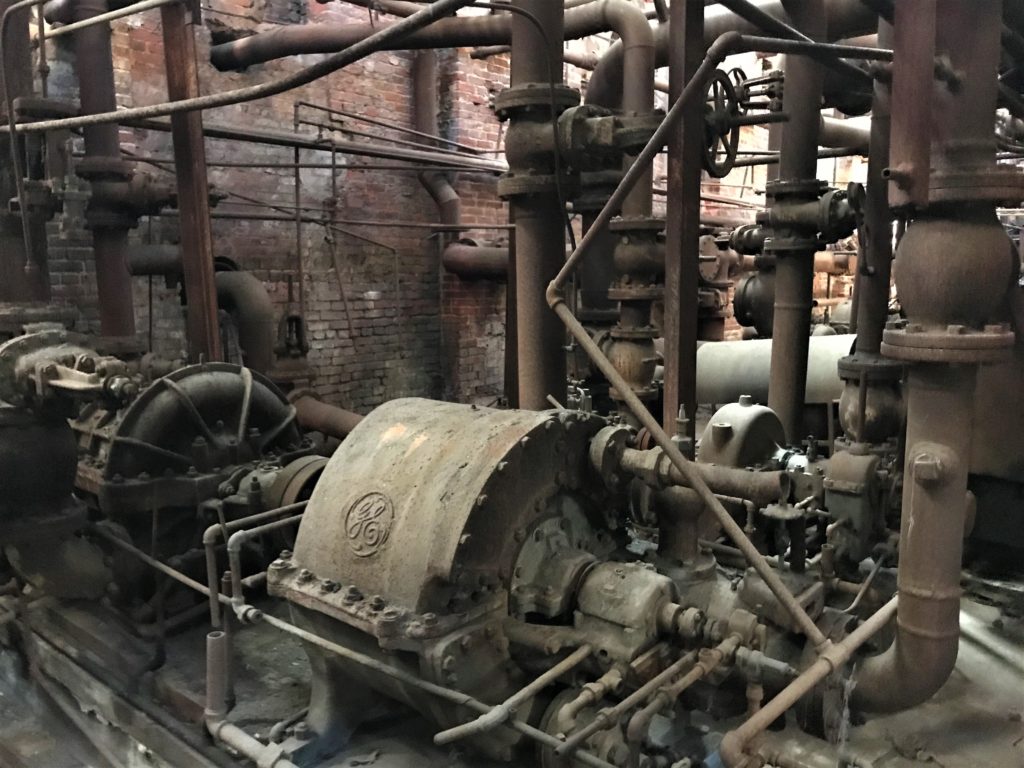
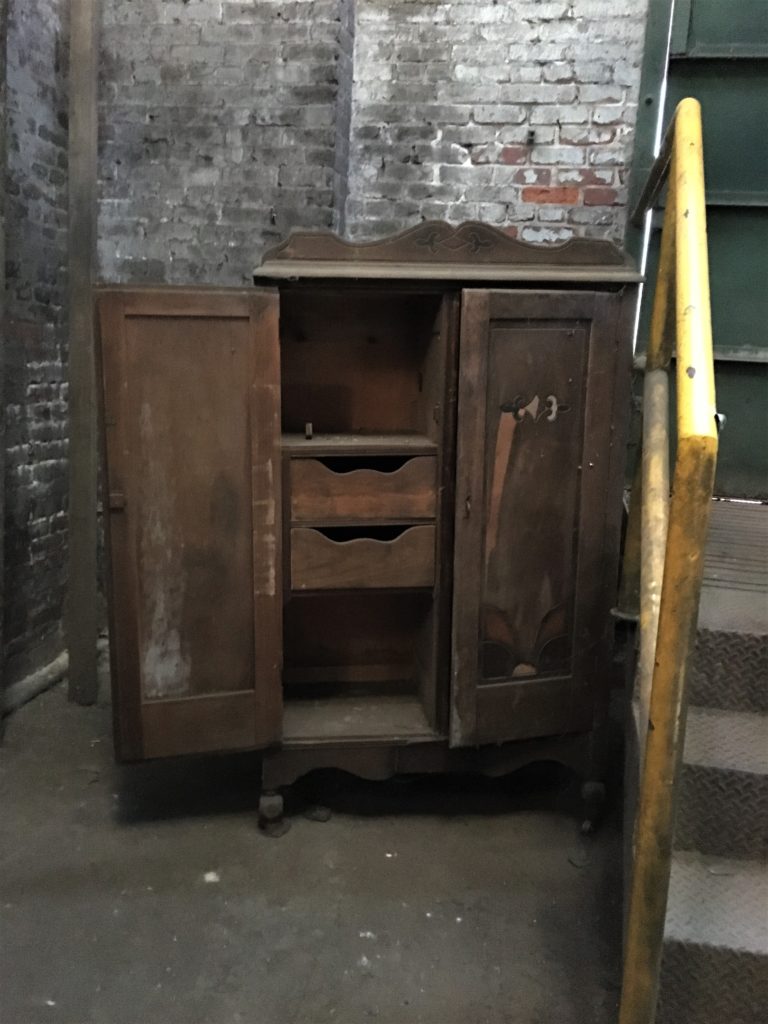
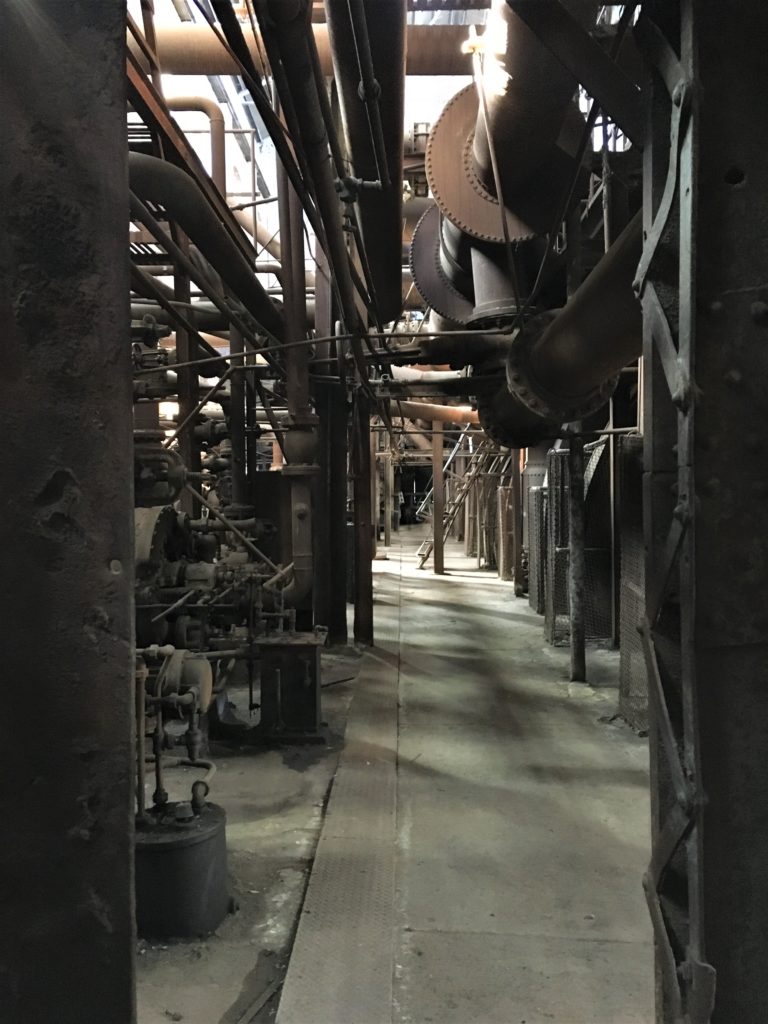
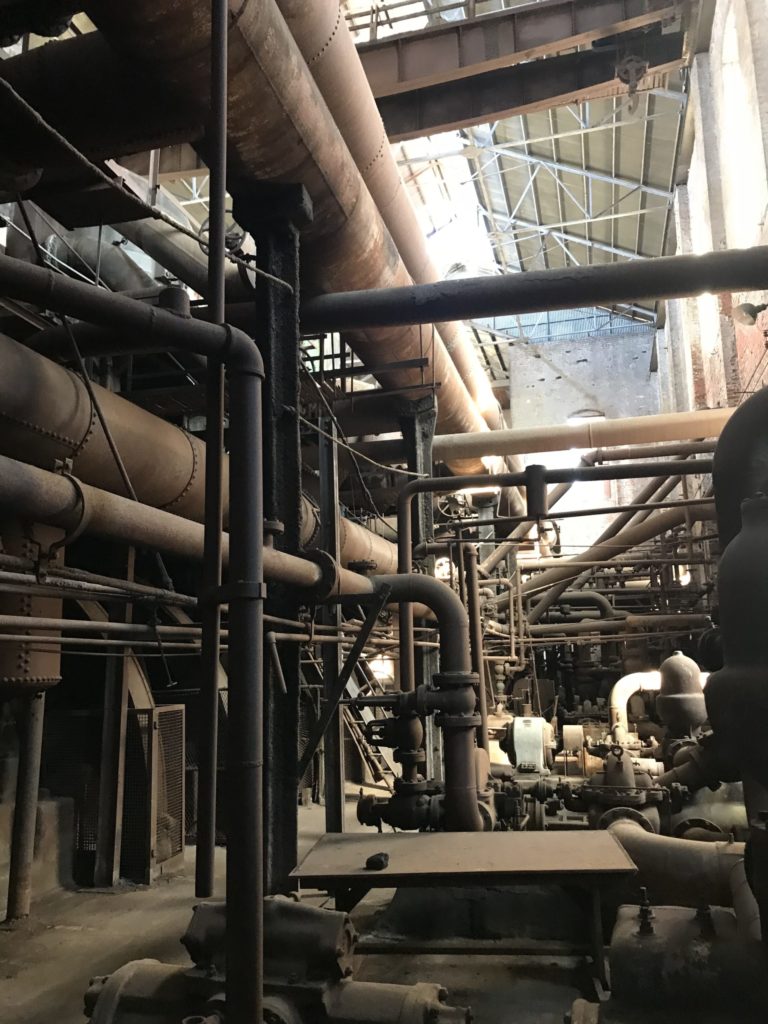
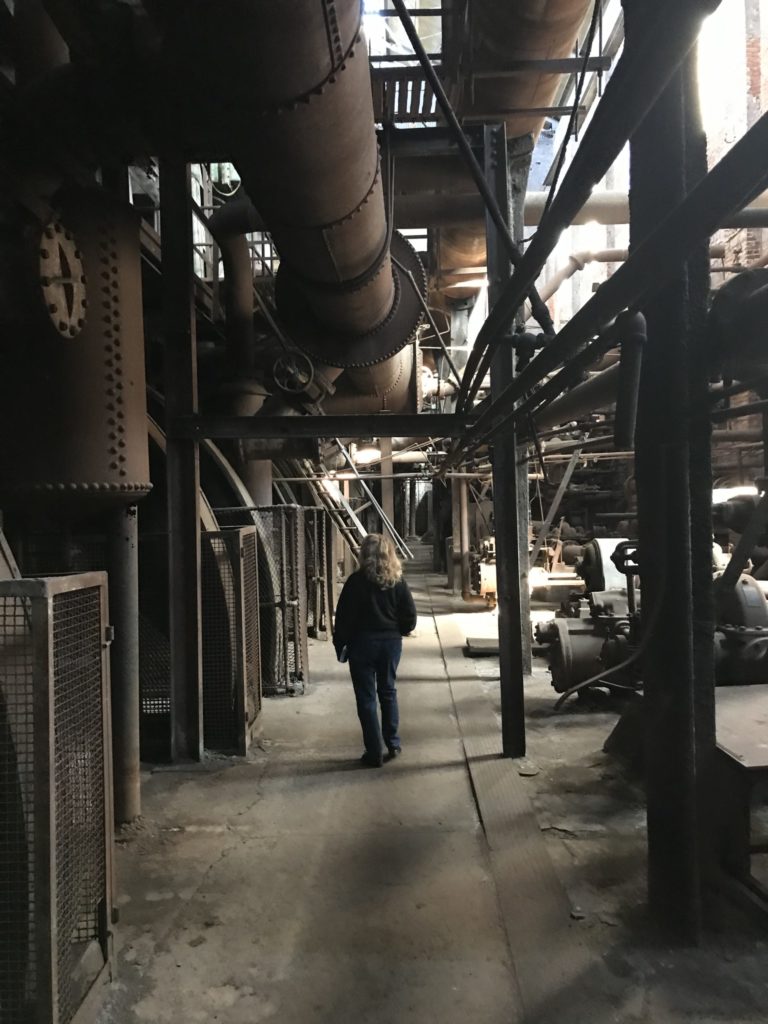
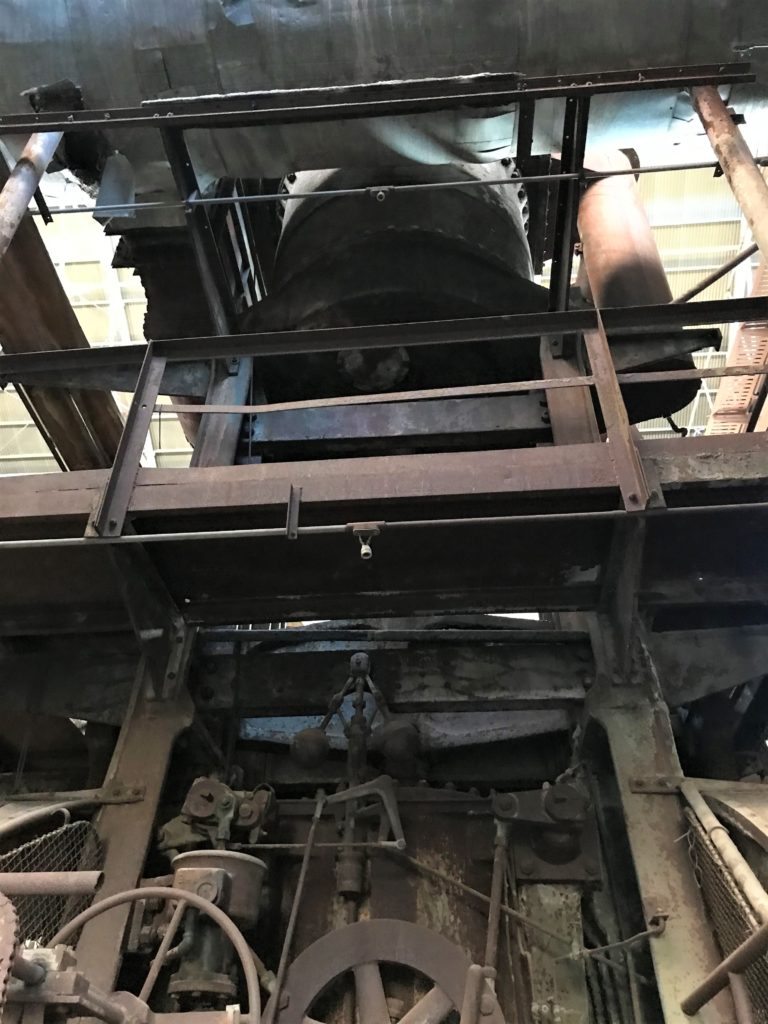
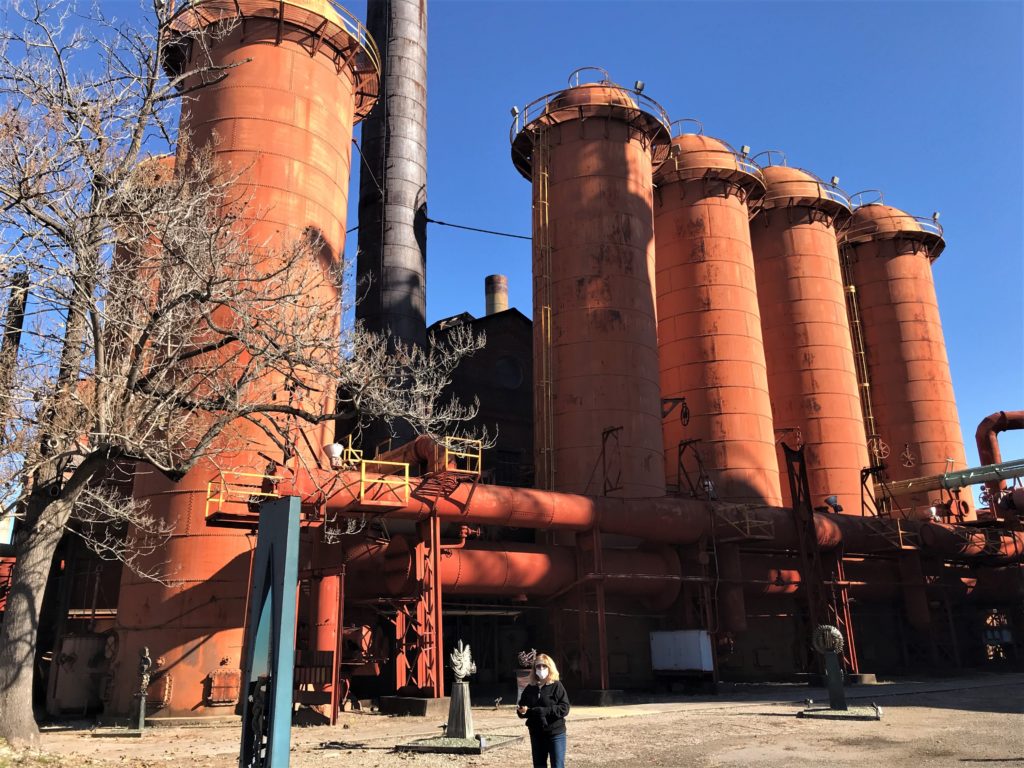
Some had titles, some did not. I only took pictures of two. : )
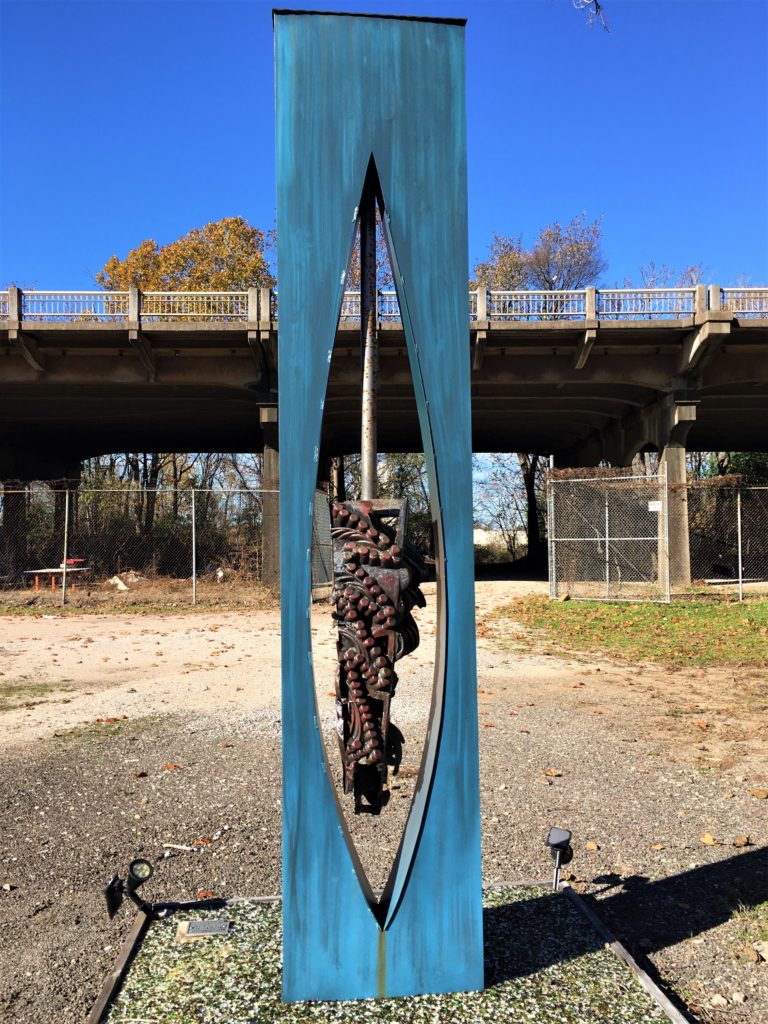
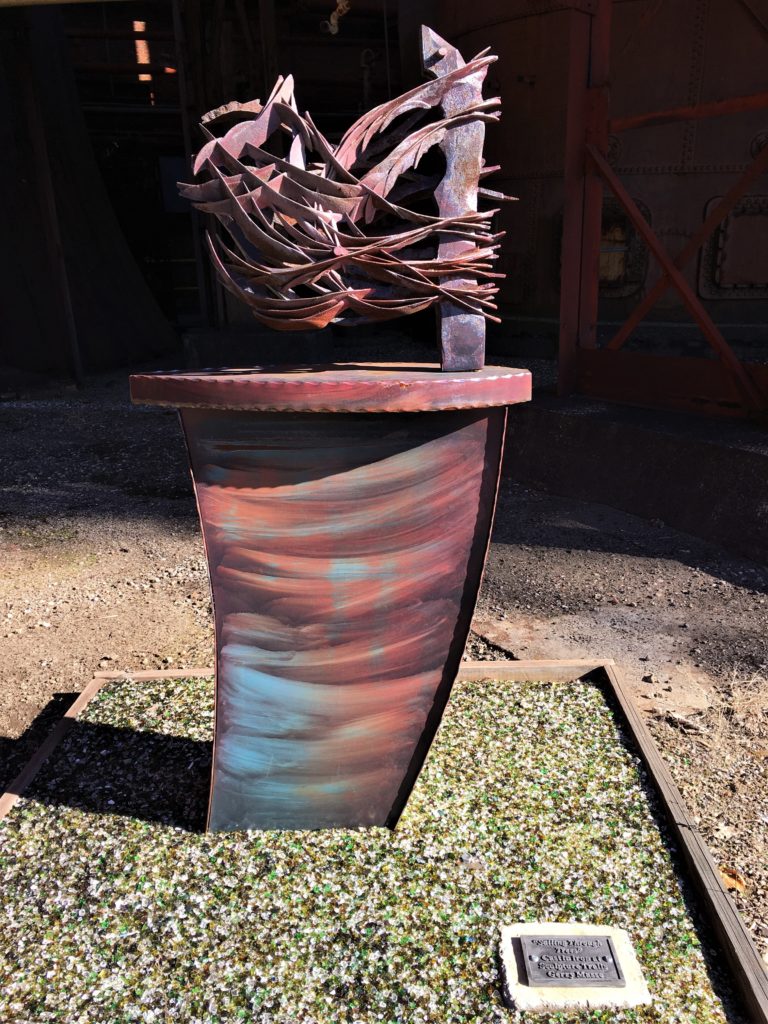
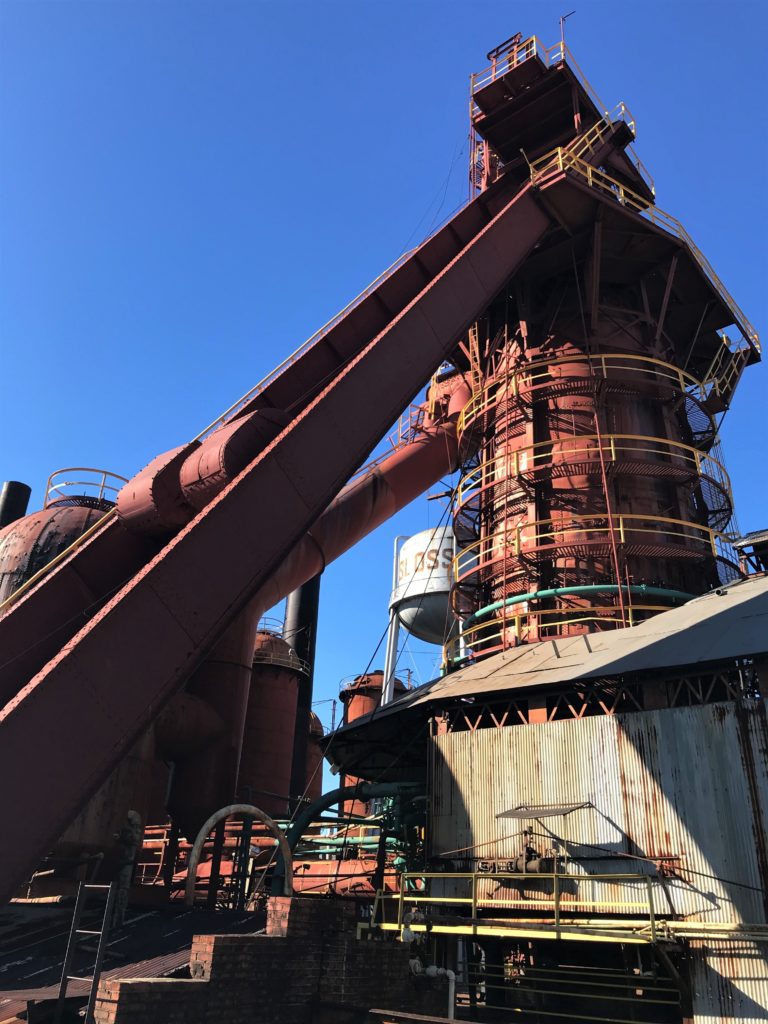
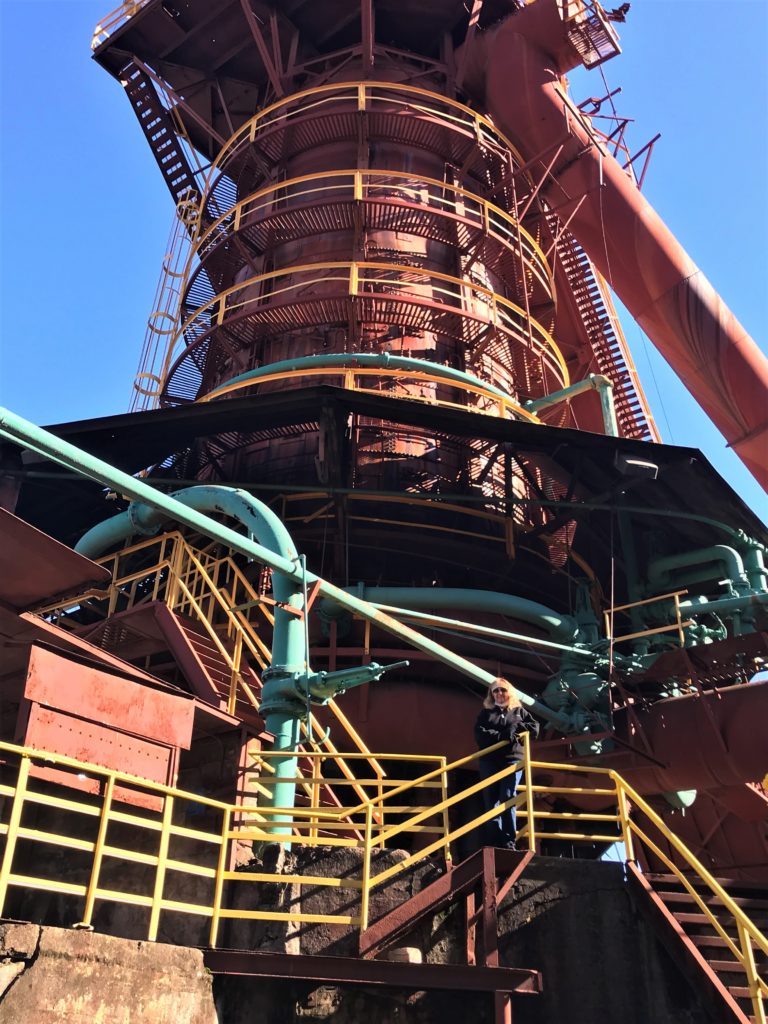
This is one of the two remaining furnaces.
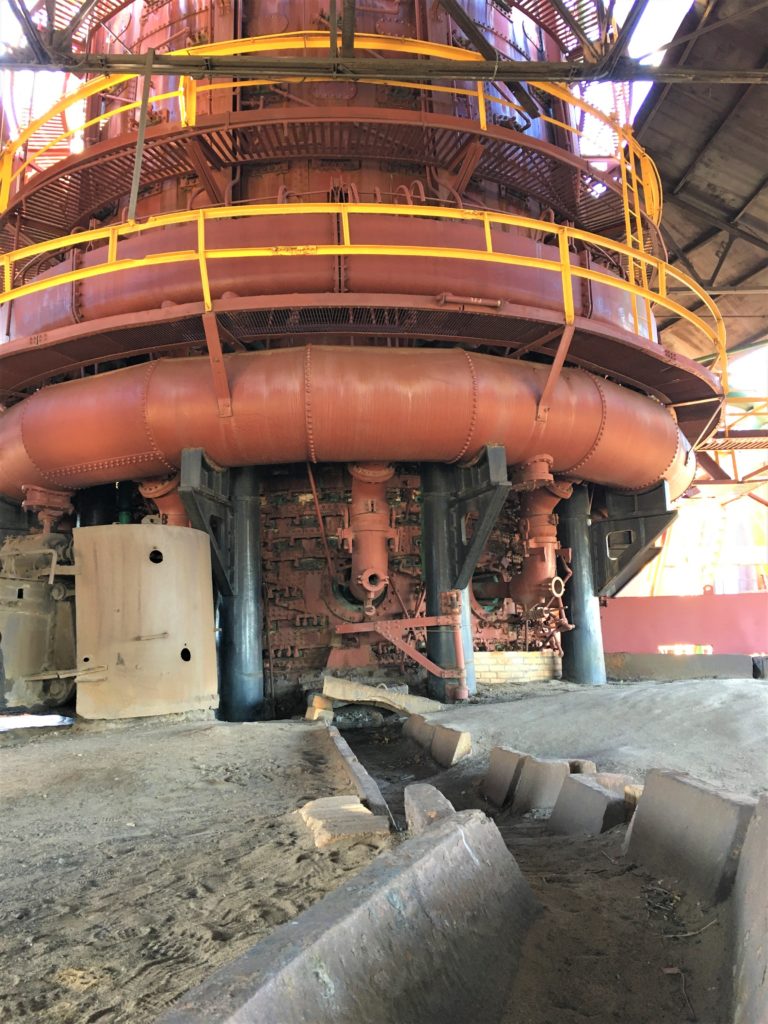
(you’ll see in the next pictures)
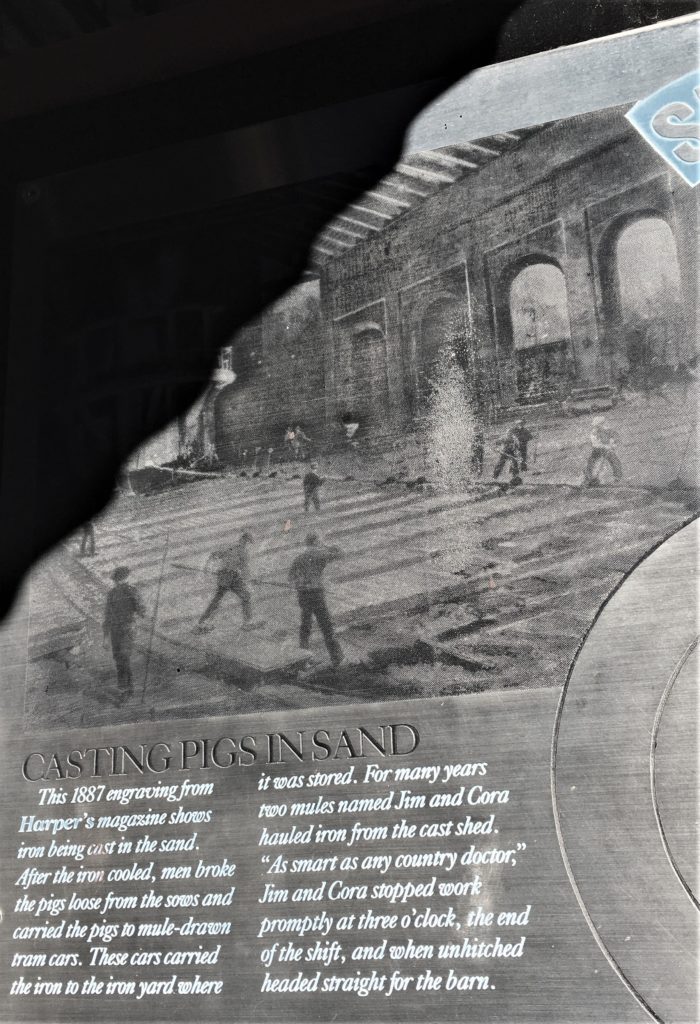
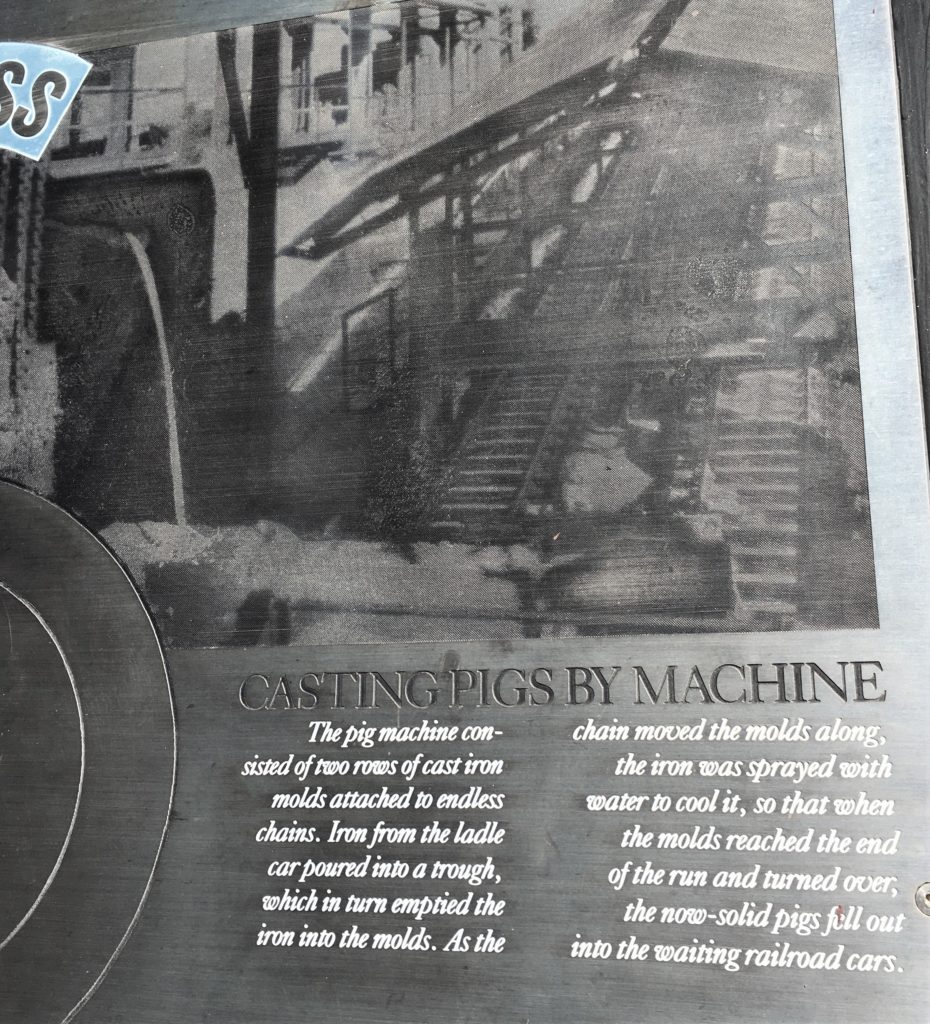
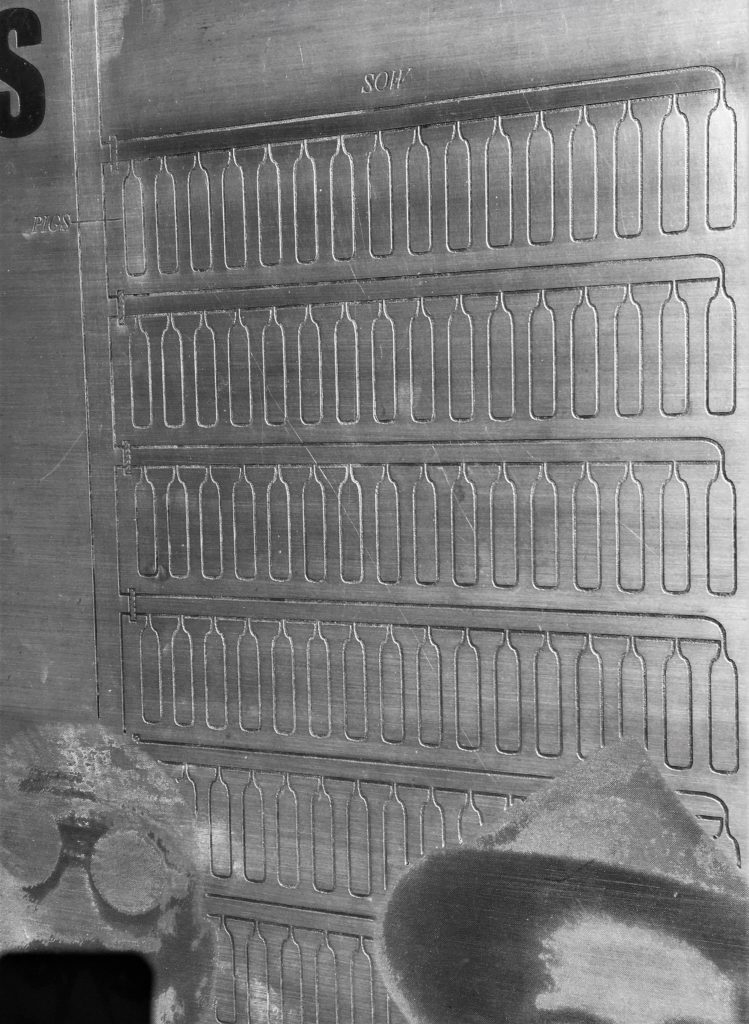
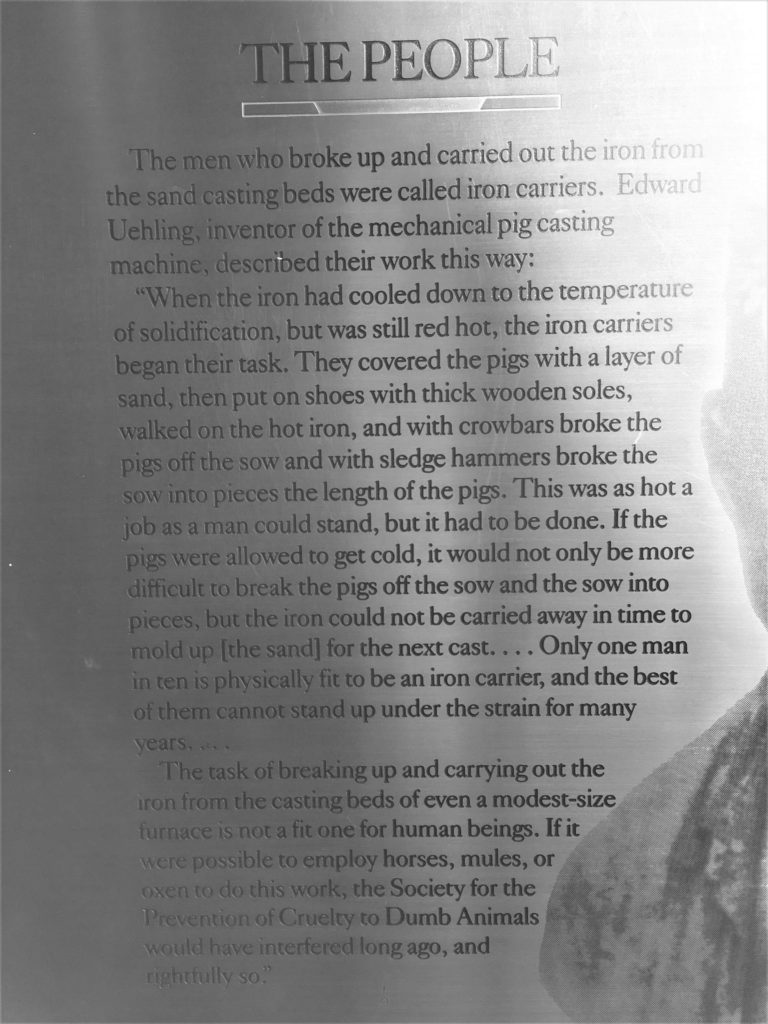
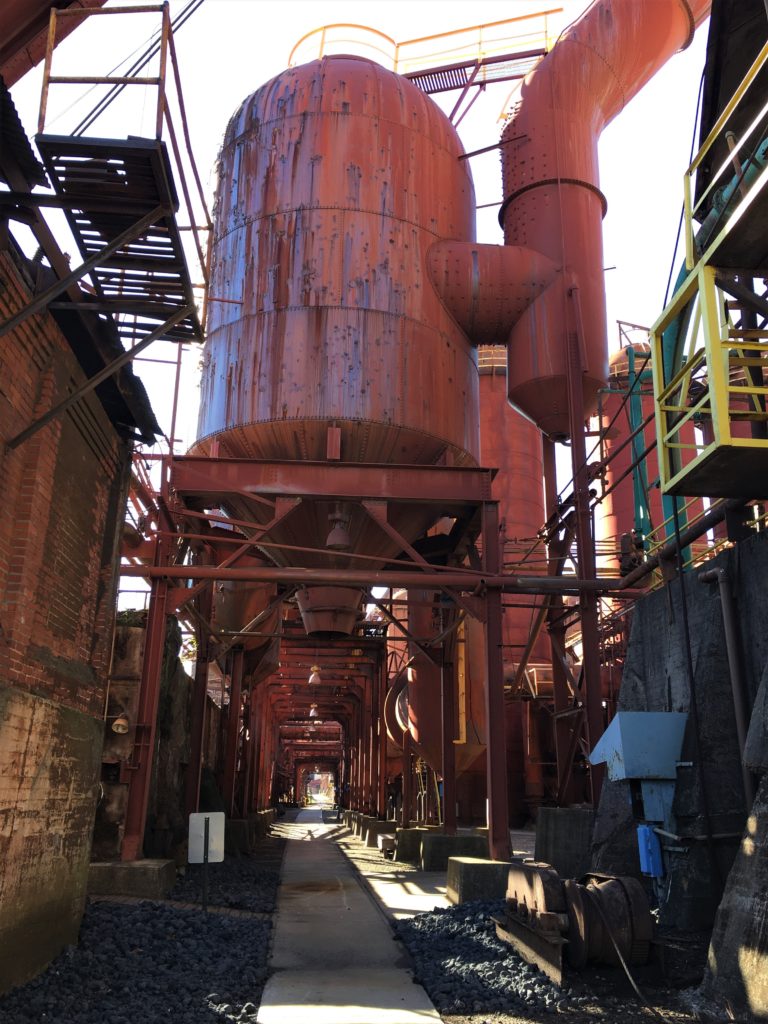
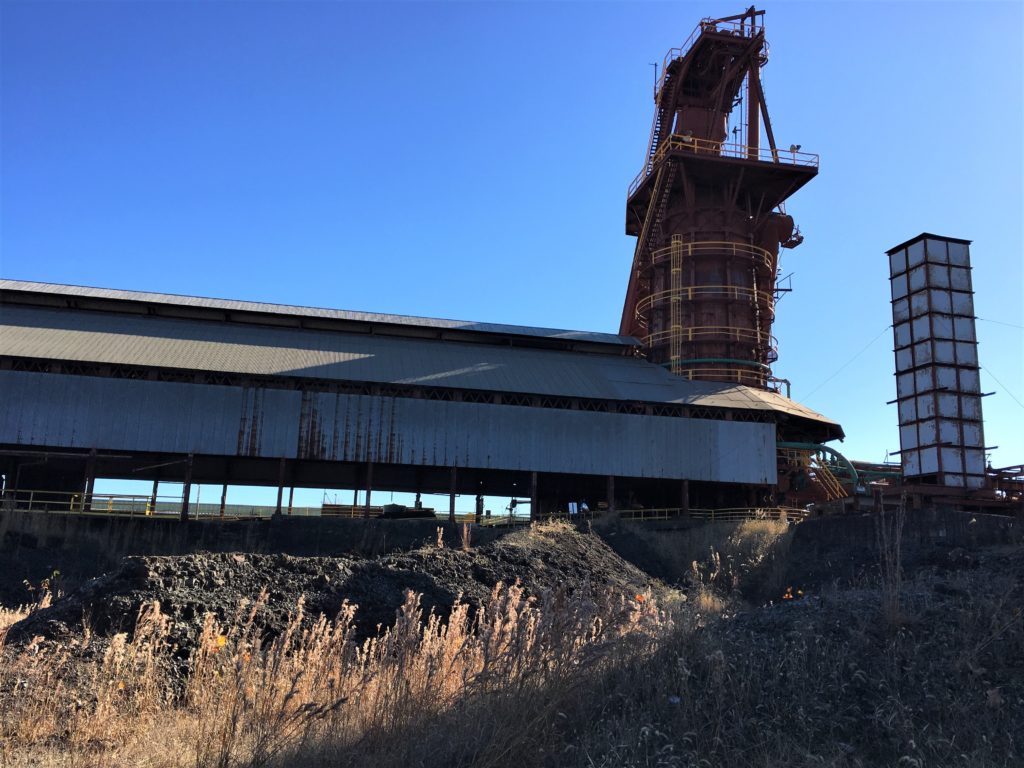
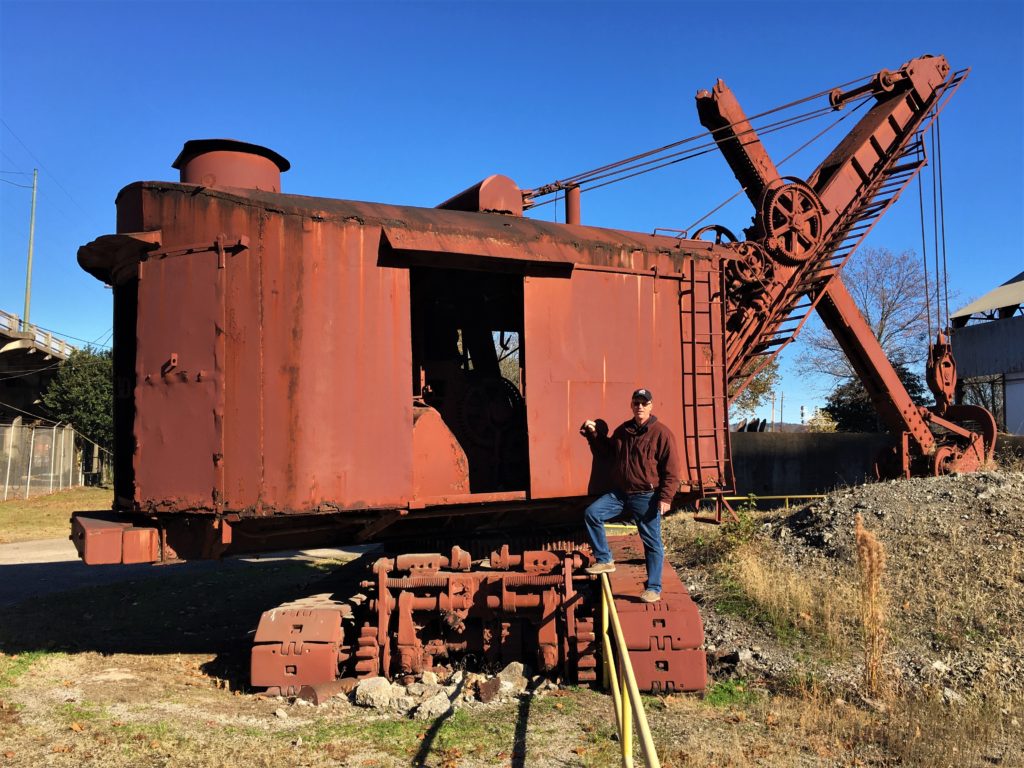
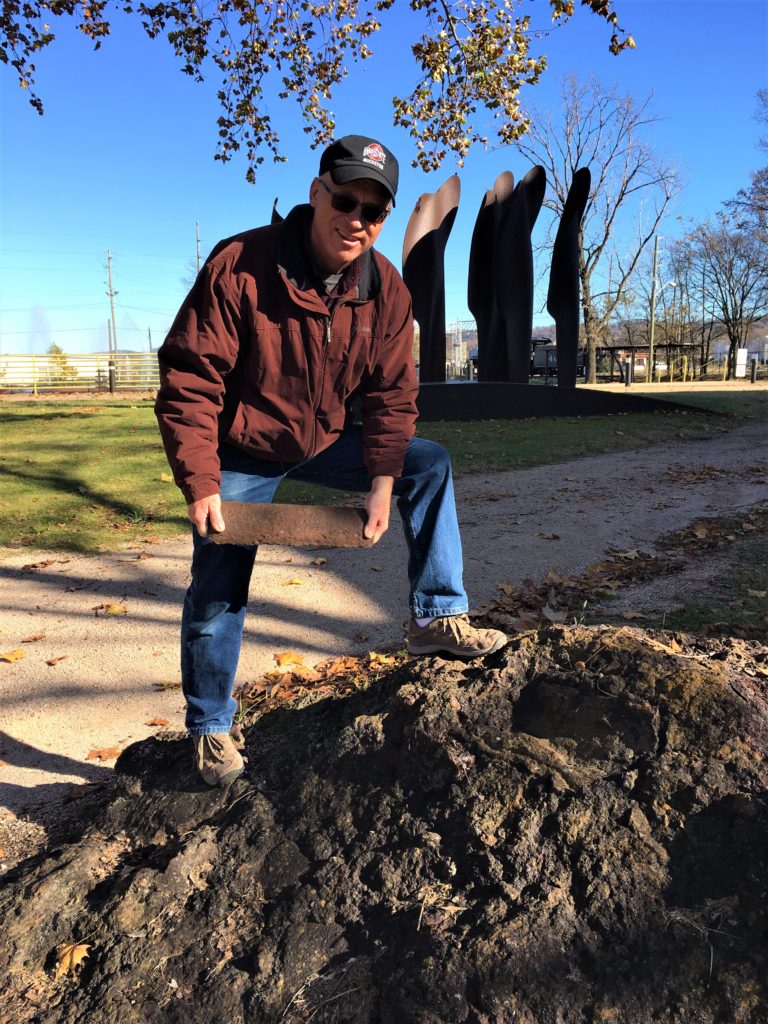
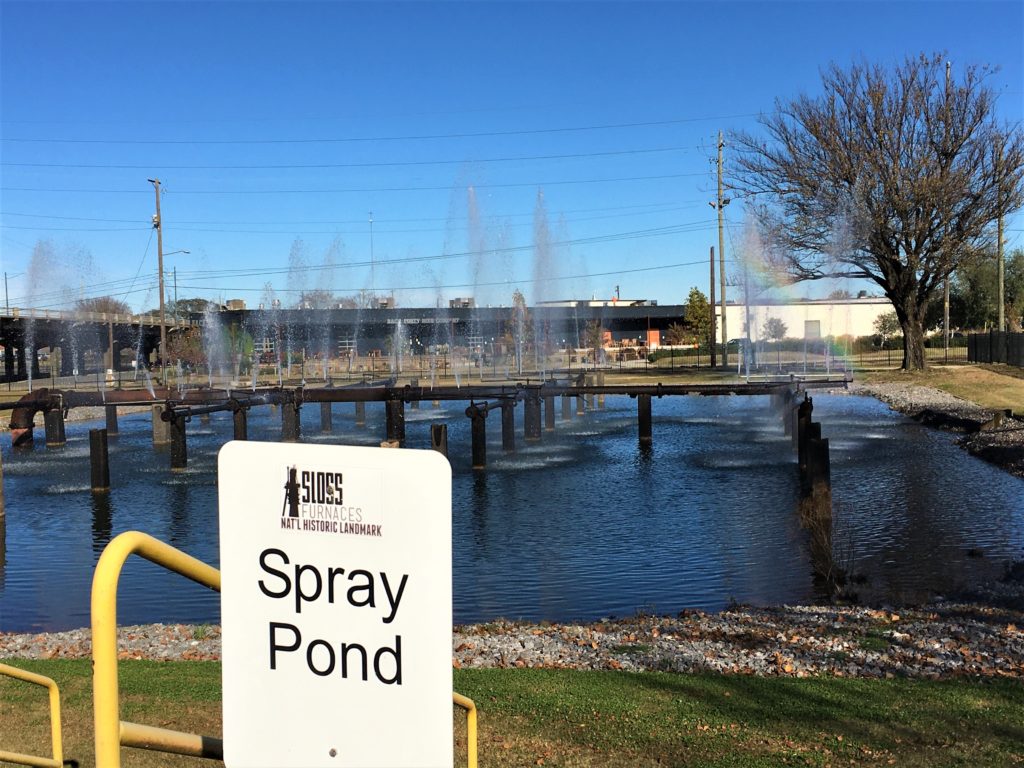
See if you can spot any in the pictures!
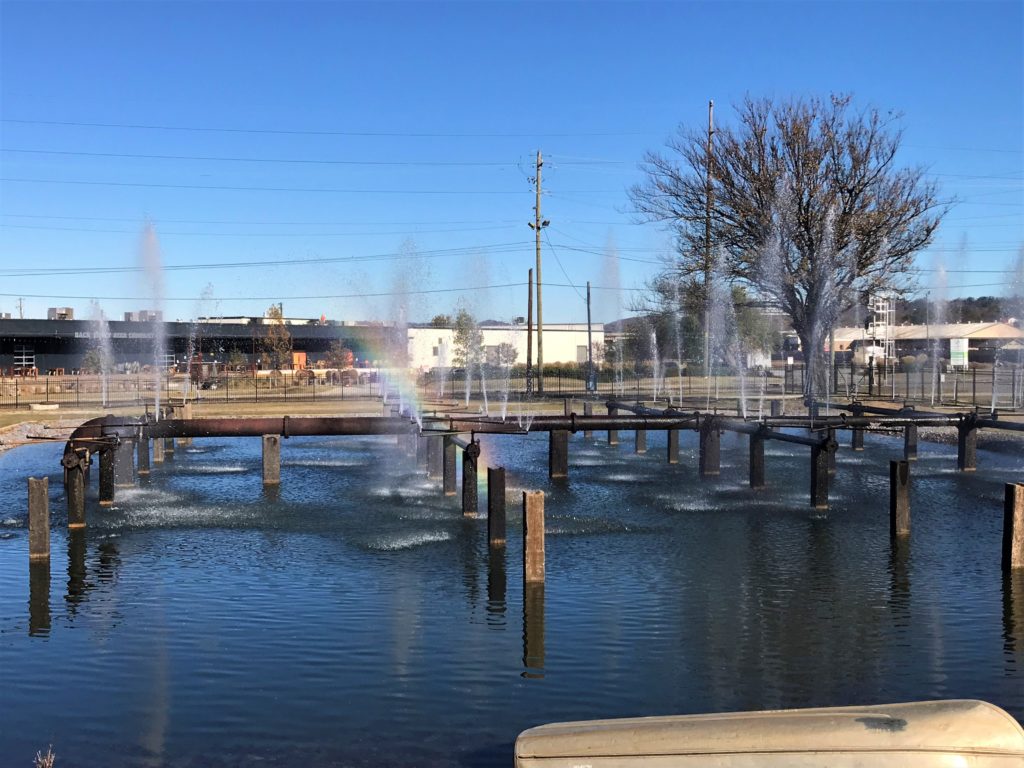
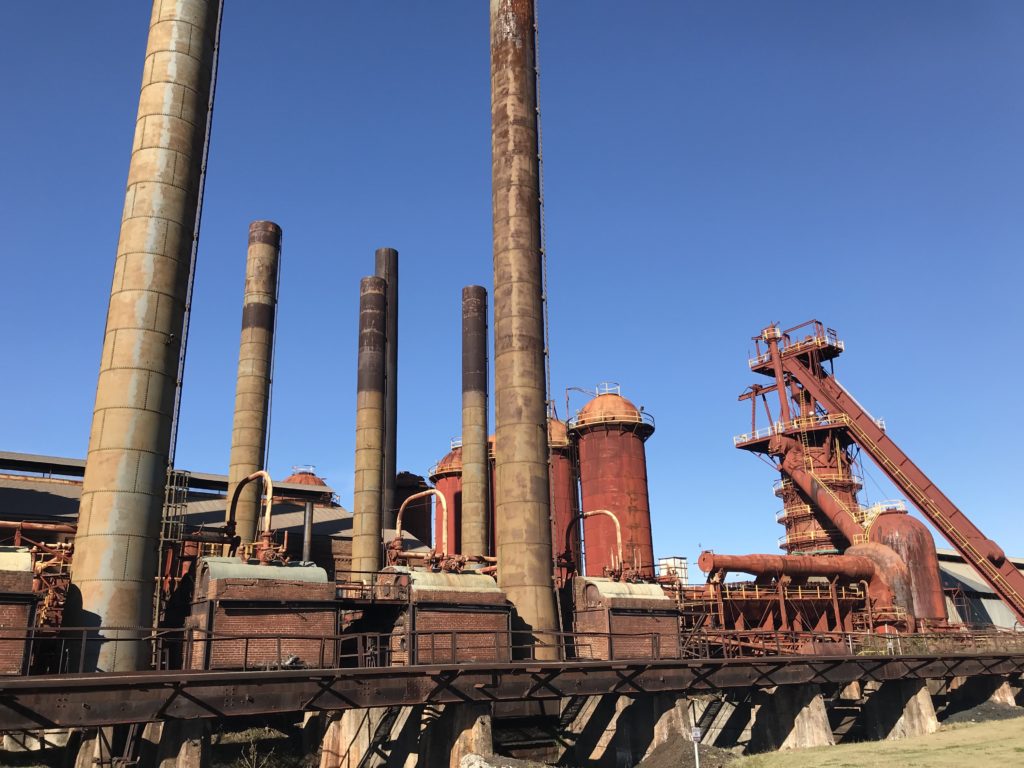
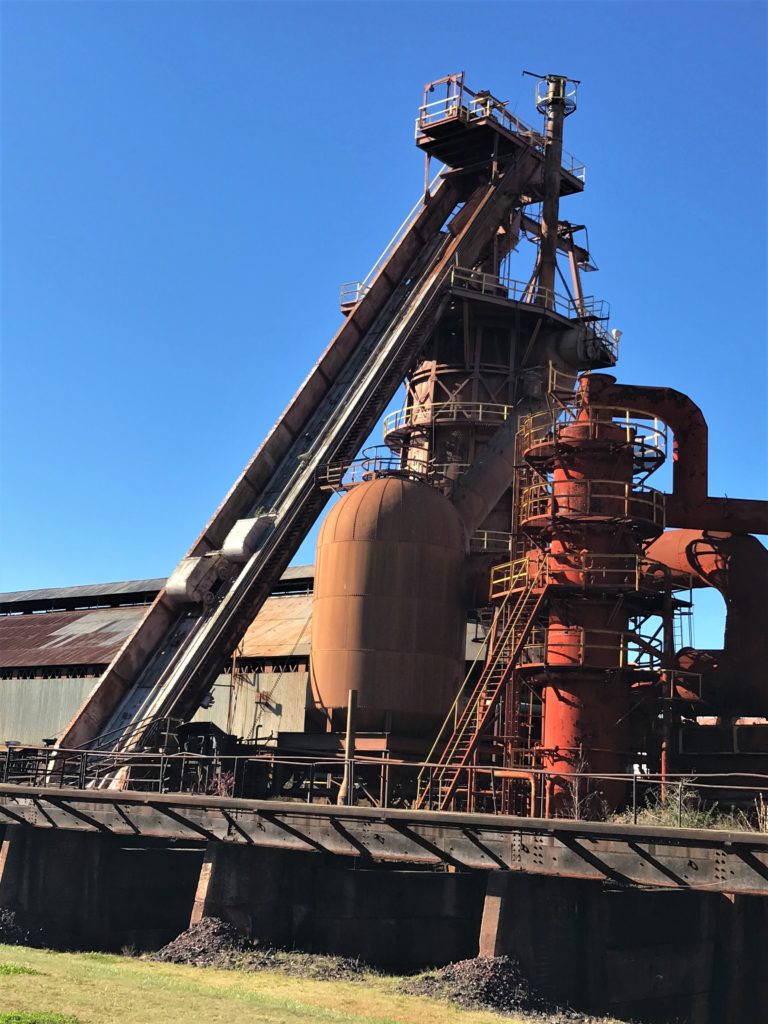
Once we finished up here, we drove over to Vulcan Park and Museum. We didn’t go in the museum because it promised to be much of the same information we read at Sloss, but it was interesting to see this unusual monument.
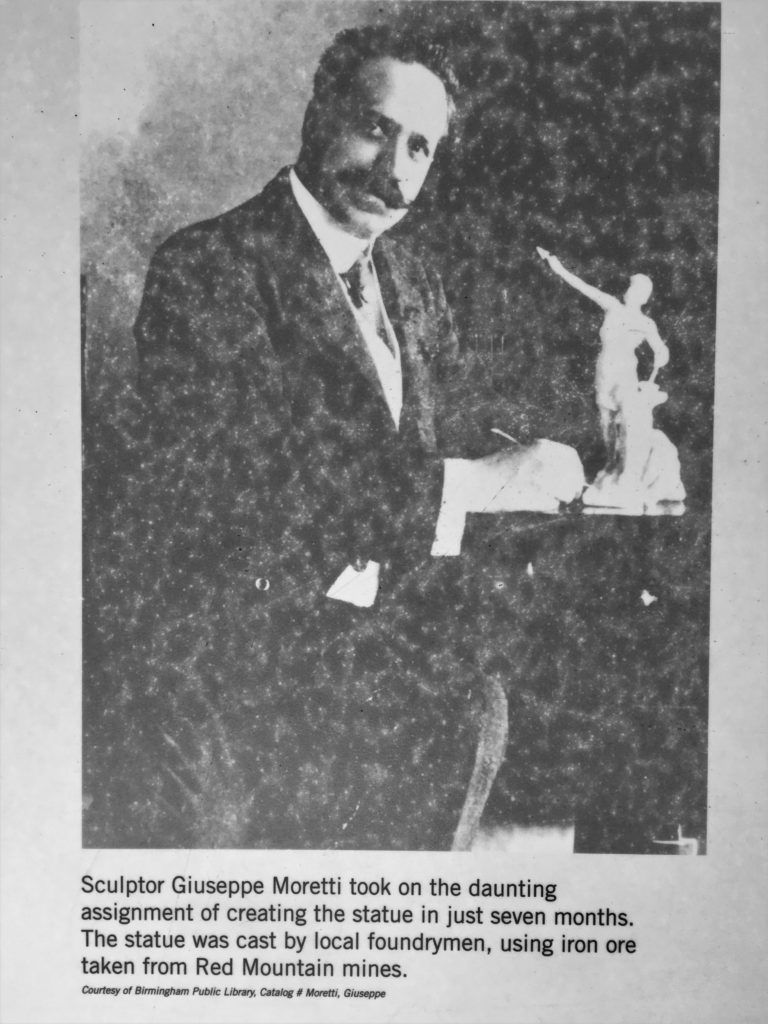

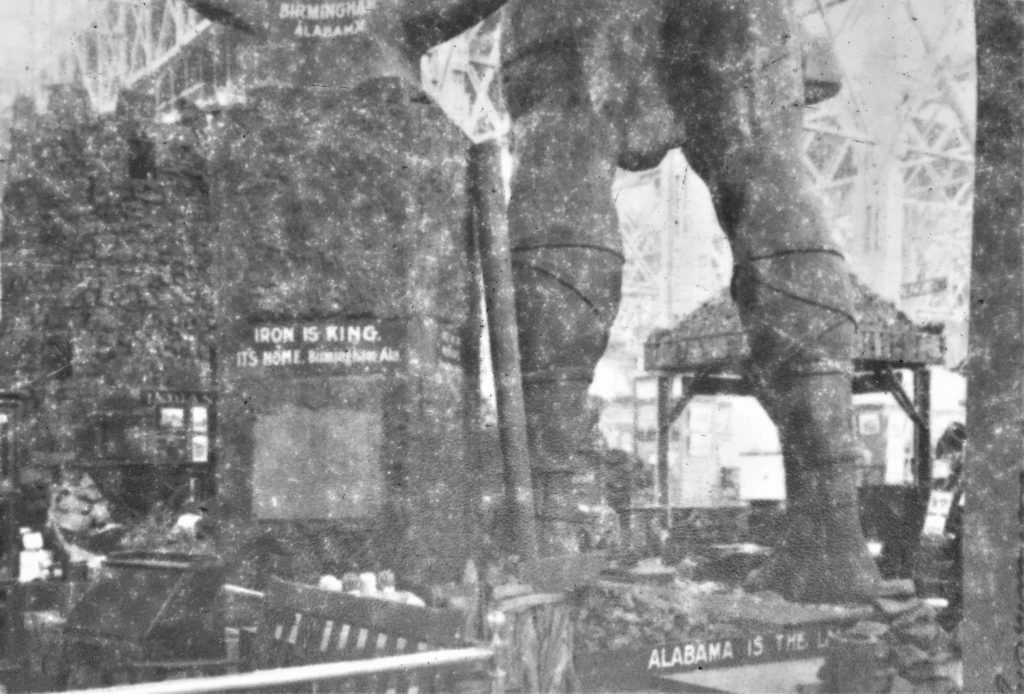
It’s an old picture (from the above picture) that shows the statues legs! Lends some perspective!
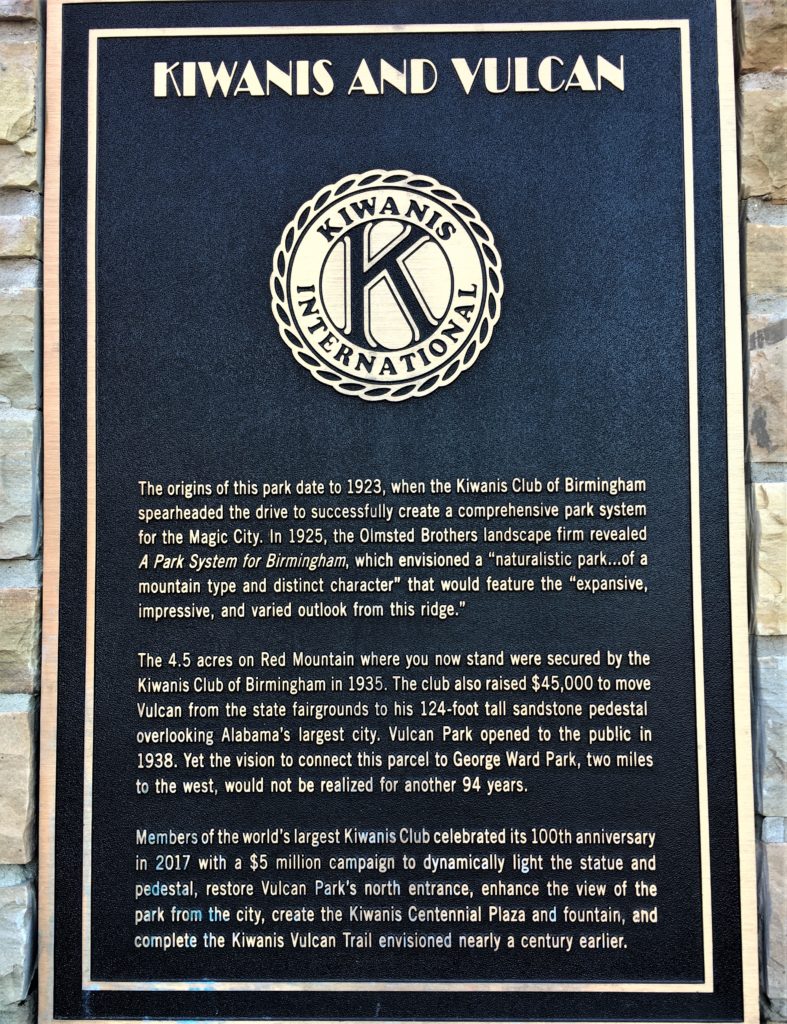
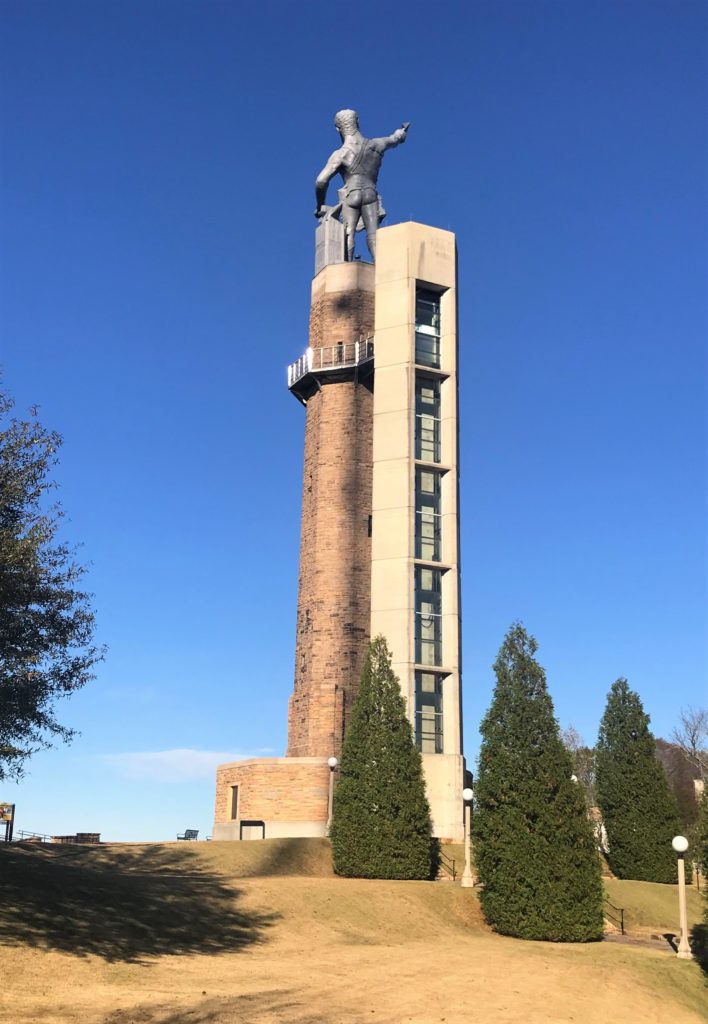
Your entrance fee grants you an elevator ride to the observation area.
We didn’t go there.
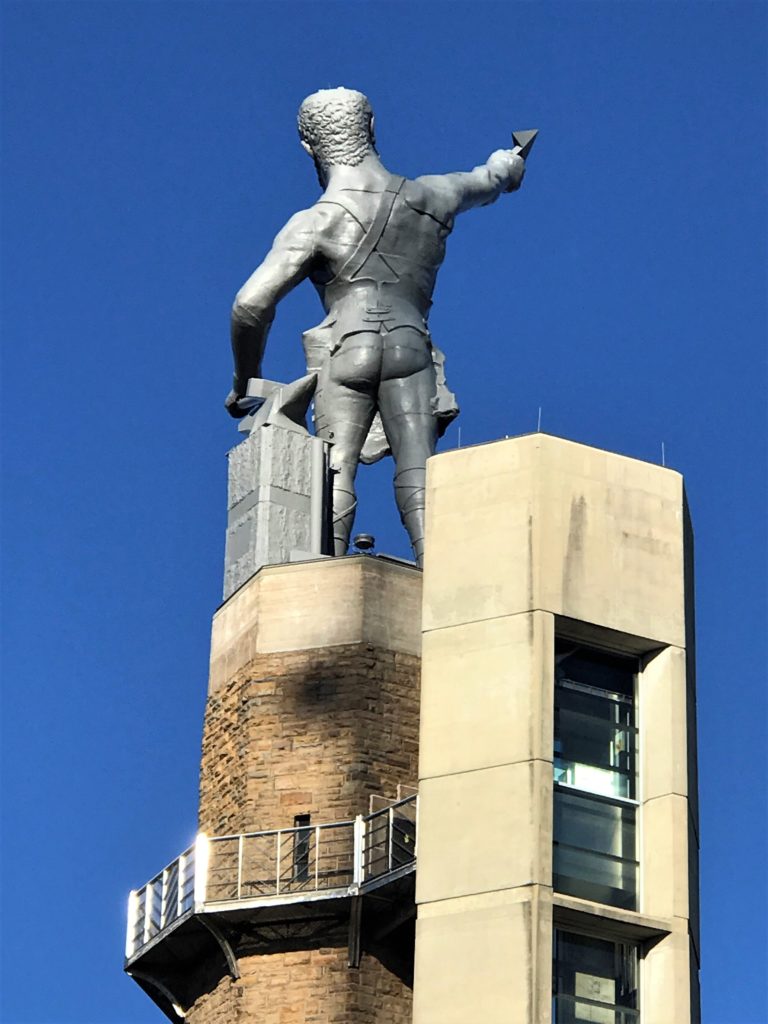
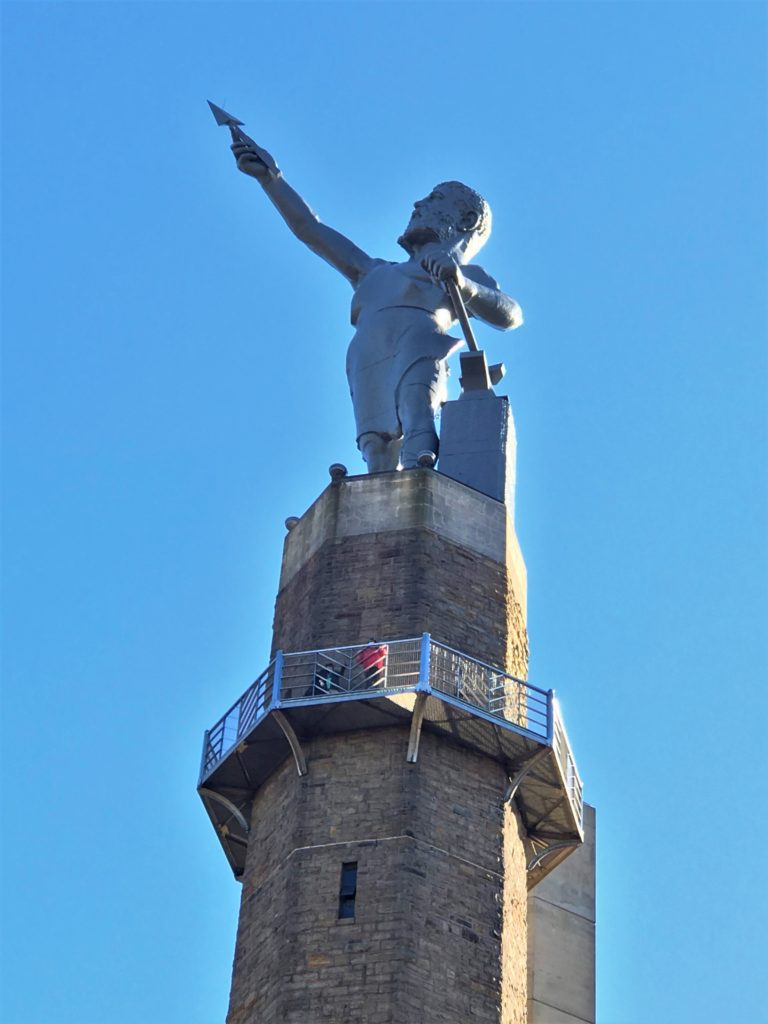
Maybe if we’d paid the $6/person entrance fee, we’d learn why he has no pants on. Curious, but we figured we’d find out on line. Apparently, no one’s telling. Some say it’s because he’s representing a Roman god and they were often portrayed in some form of nudity. Whatever the reason, he’s the butt of many jokes. 😊
Here’s some information –
What kind of city builds a huge statue of a burly, bearded, bare-bottomed man to tower over its entire population? One that never forgets its roots. Vulcan, the Roman god of fire and forge, watches over all of Birmingham as a symbol of the city’s iron origins – and the ever-present spark of its indomitable spirit.
So says the Park’s website.
It’s the world’s largest cast iron statue; made of 100,000 pounds of iron and 56 feet tall on a 124-foot pedestal, it stands on the top of Red Mountain and overlooks the city of Birmingham. It was originally created in 1904 from local iron as Birmingham’s exhibit to the St. Louis World’s Fair to showcase the city’s booming iron industry, where it took home the grand prize.
By 1999 the statue was in a great state of disrepair, so the city founded a non-profit organization who began a $15.5 million dollar fund-raising campaign to restore the statue. The statue and the 10-acre park that surrounds it were closed. It re-opened five years later, with additional upgrades and the new museum.
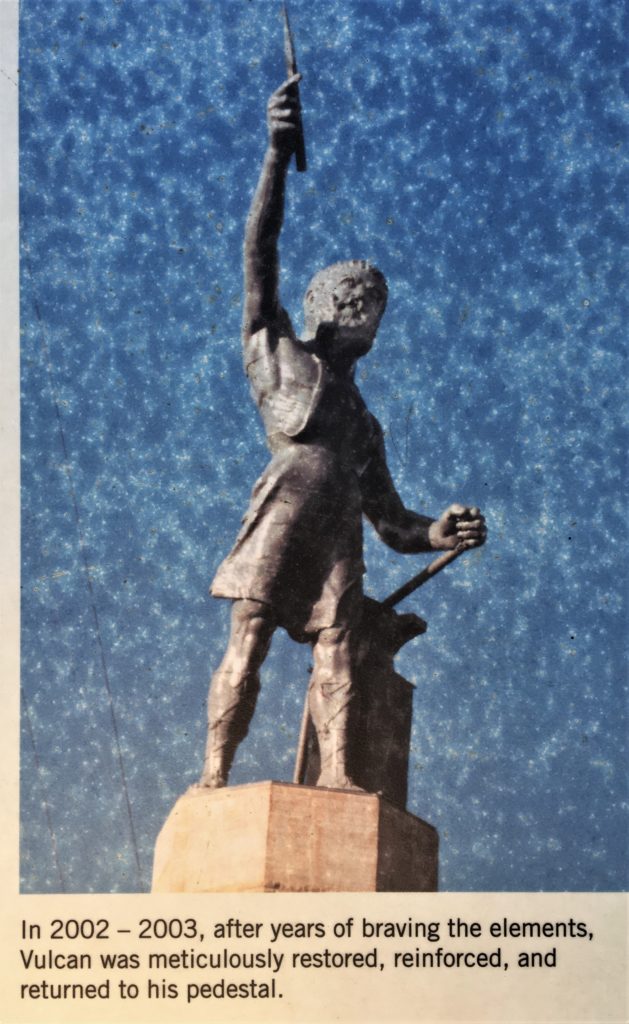
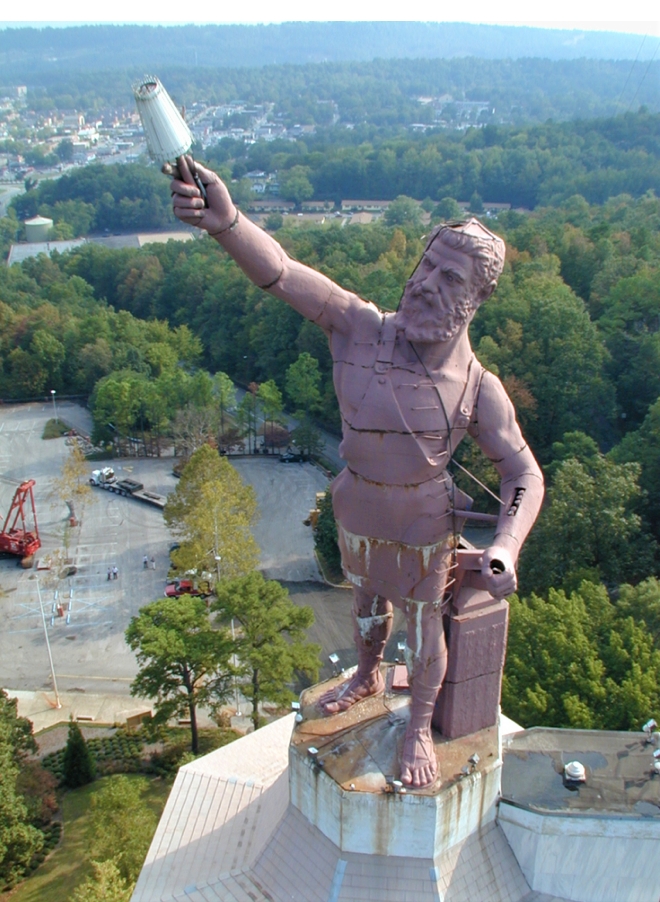
He’s also lost his spear and it was replaced with a torch for a while.
Not sure when that happened.
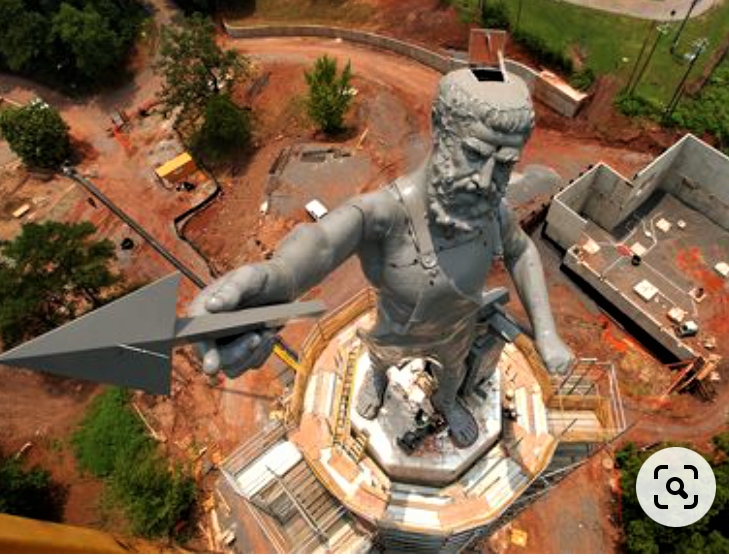
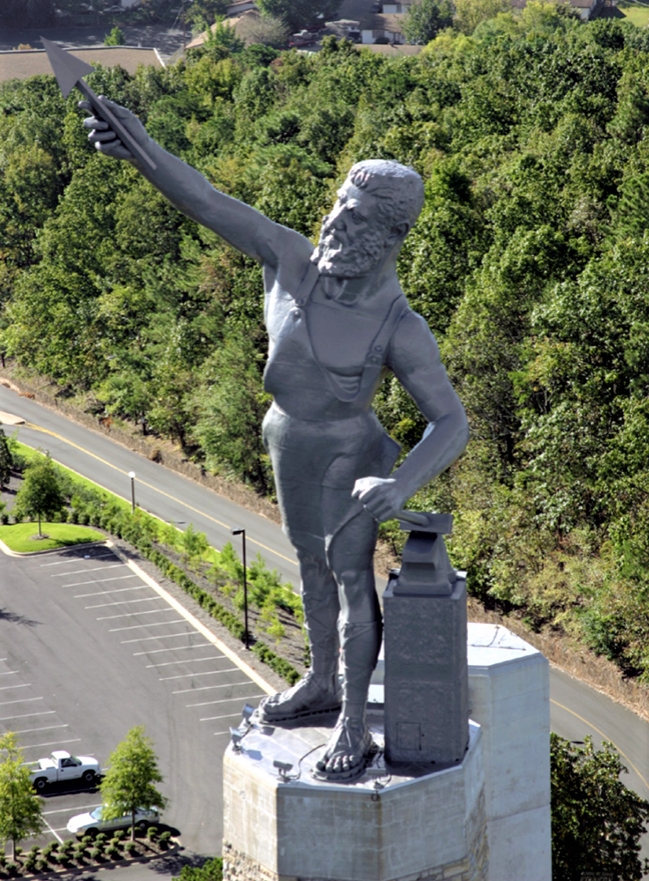
Did you notice? He’s lost the steps to his head.
We did some walking and exploring around the park before we left.
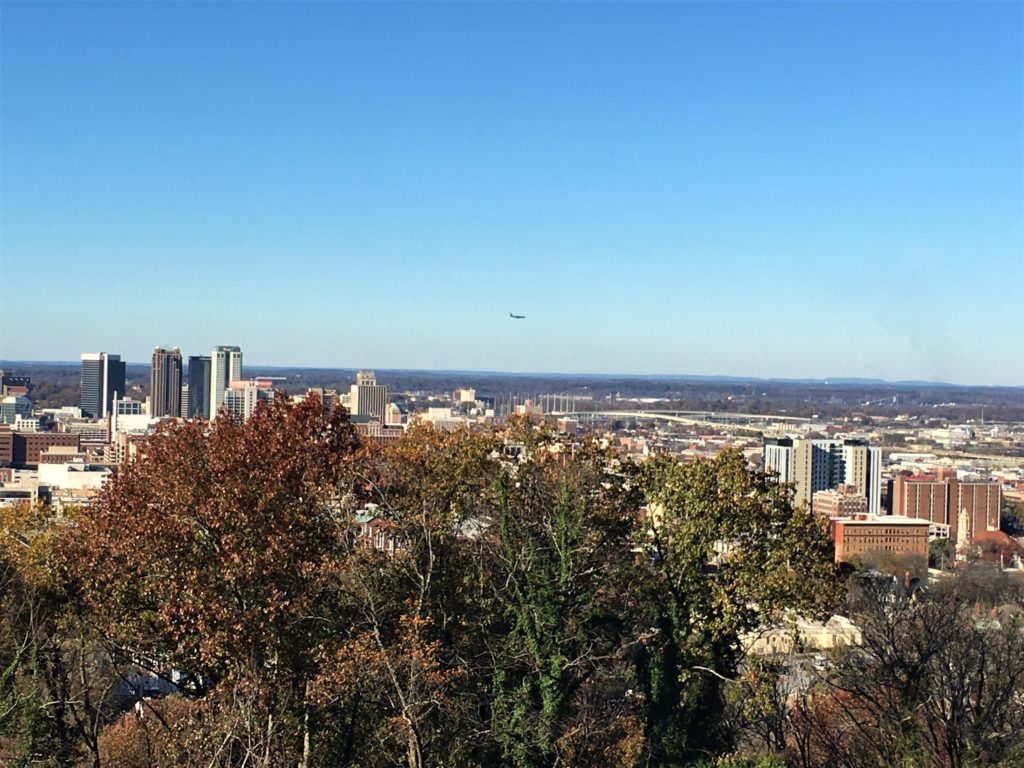
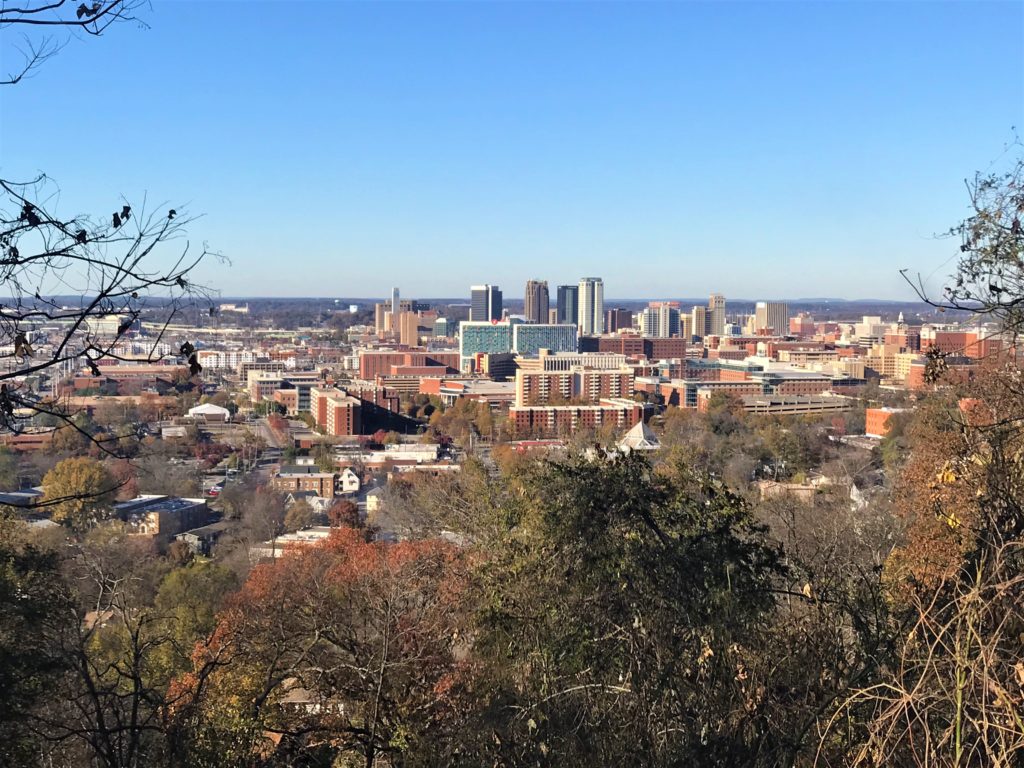
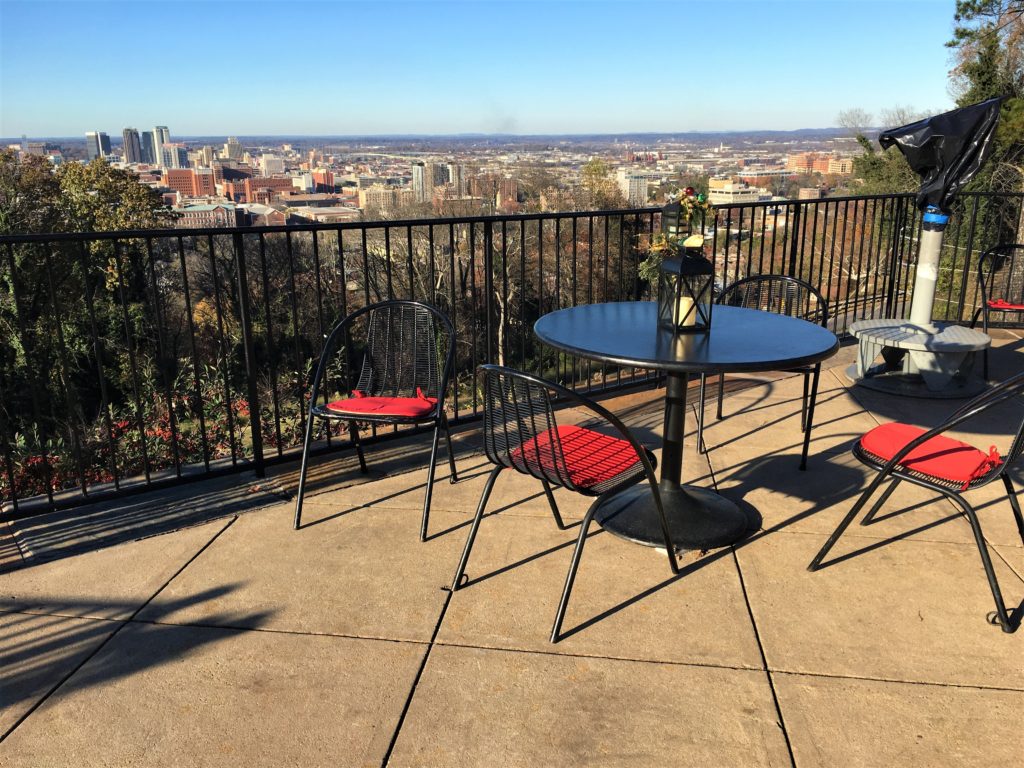
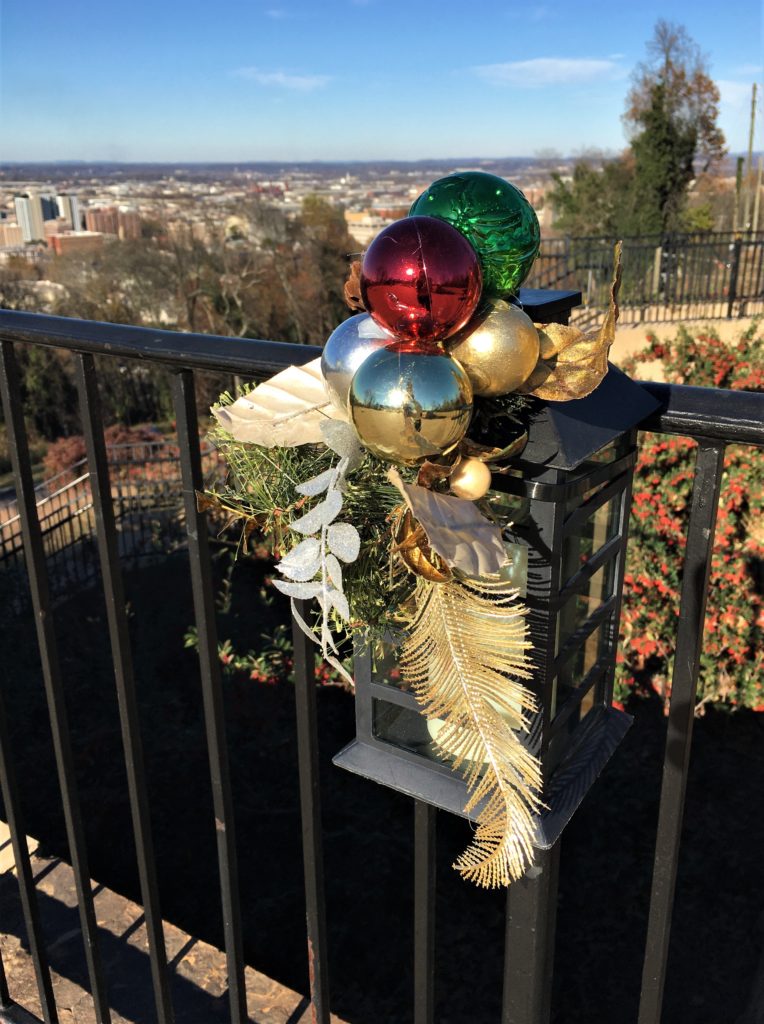

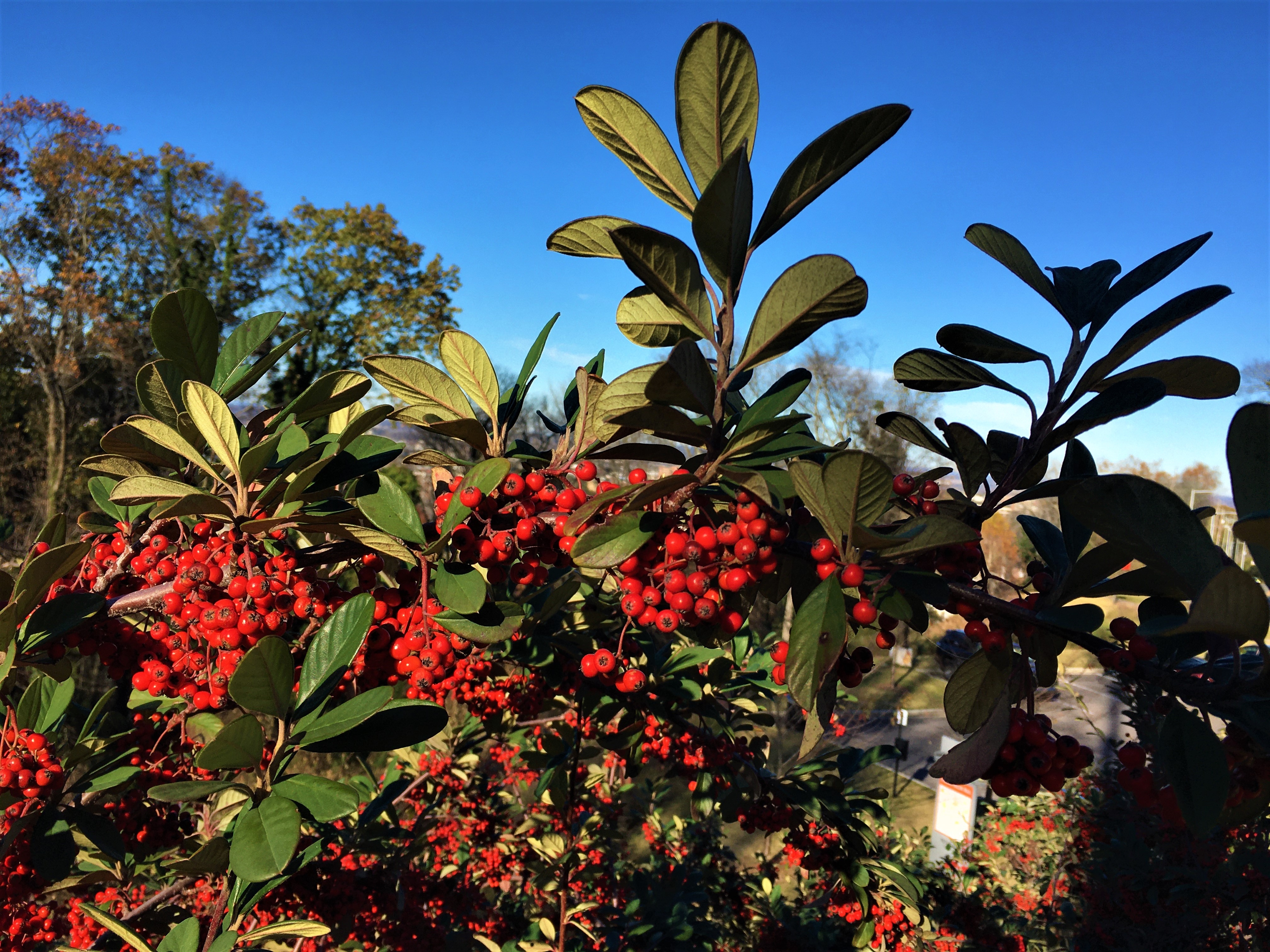
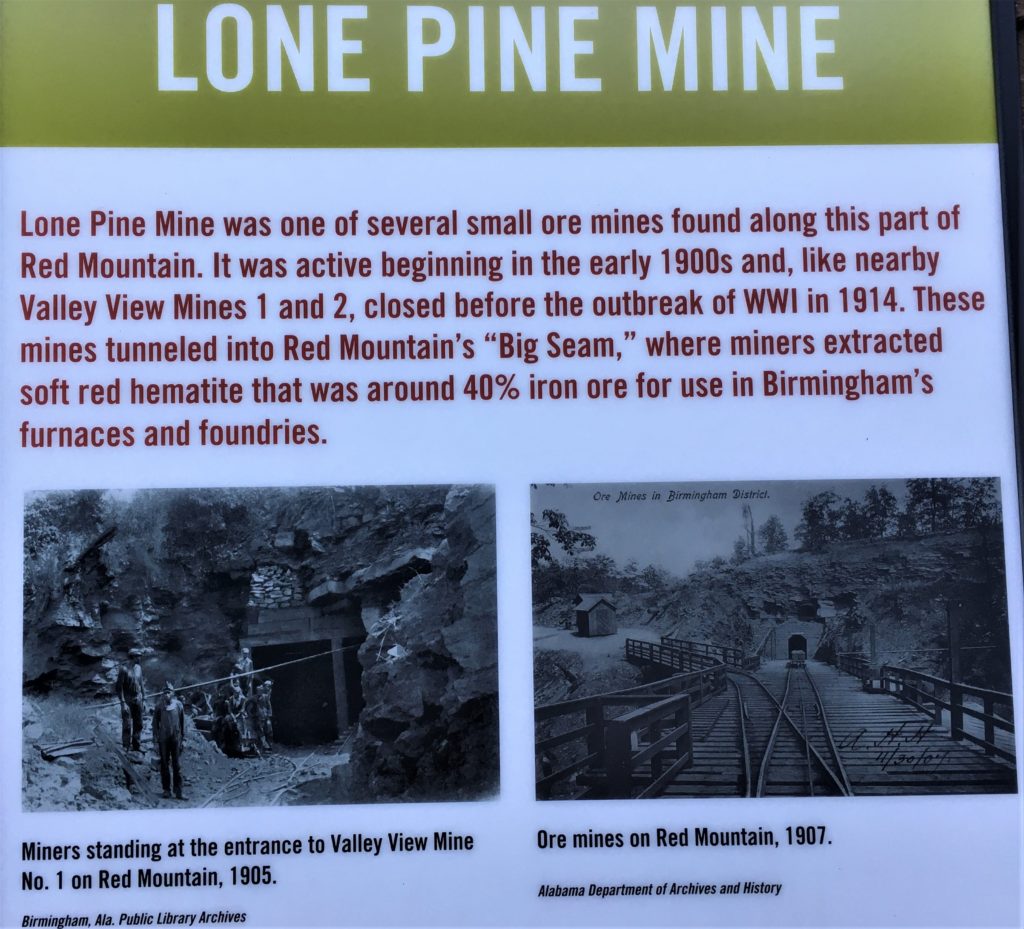
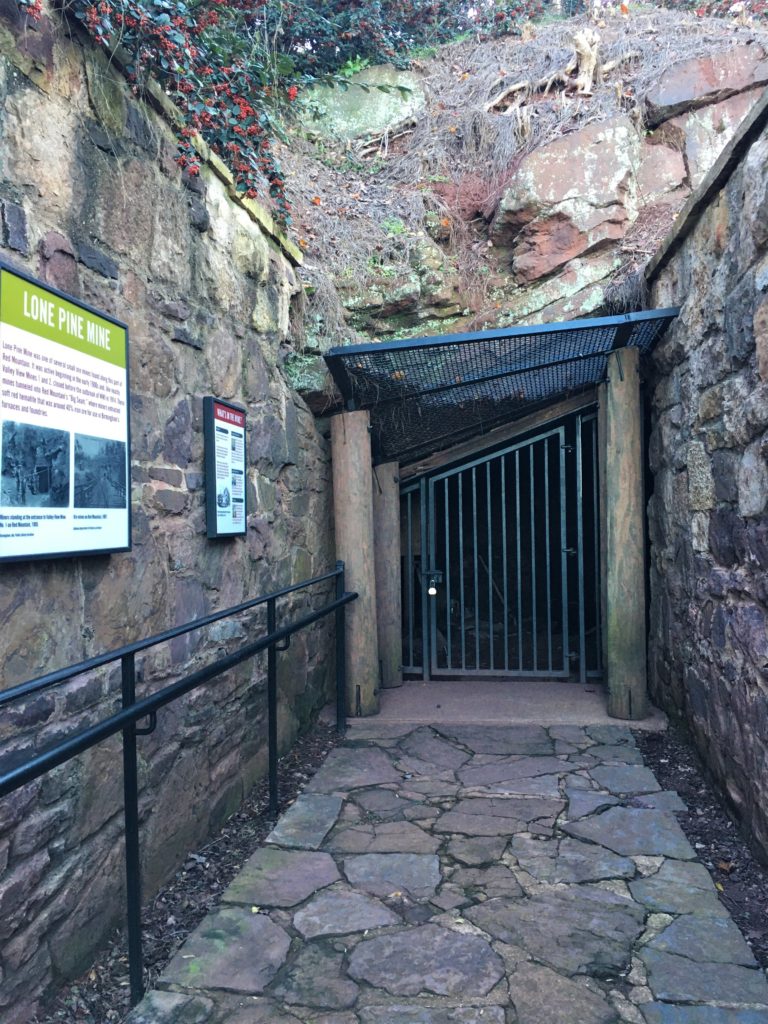
As we drove home, the Jeep signaled low tire pressure, so when we got home, Blaine checked it out. He discovered a large metal staple of some kind imbedded in the right front tire! Fortunately, we travel with a repair kit and after much tugging with all his might, he was able to remove the object and make the repair.
Tomorrow, we bake!
